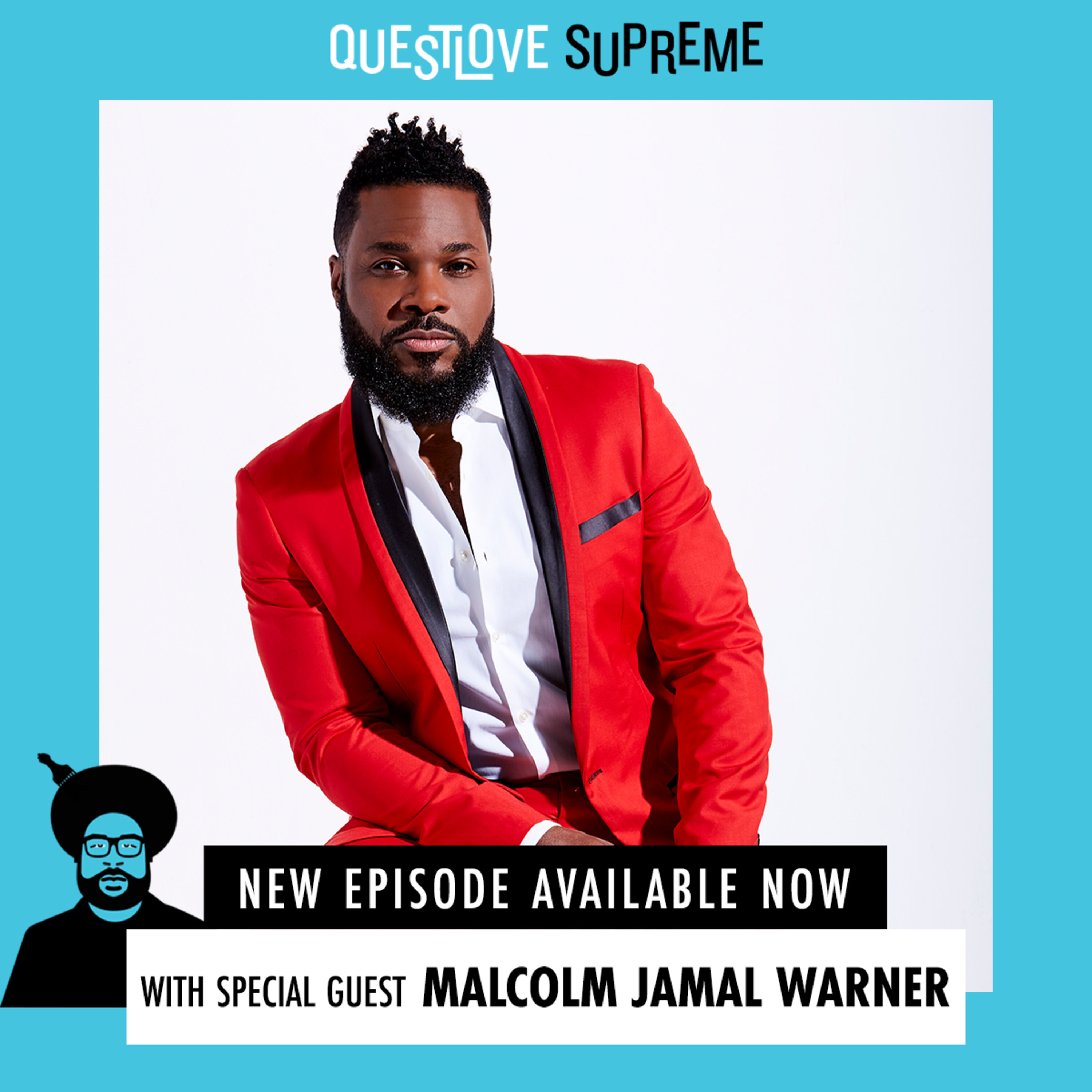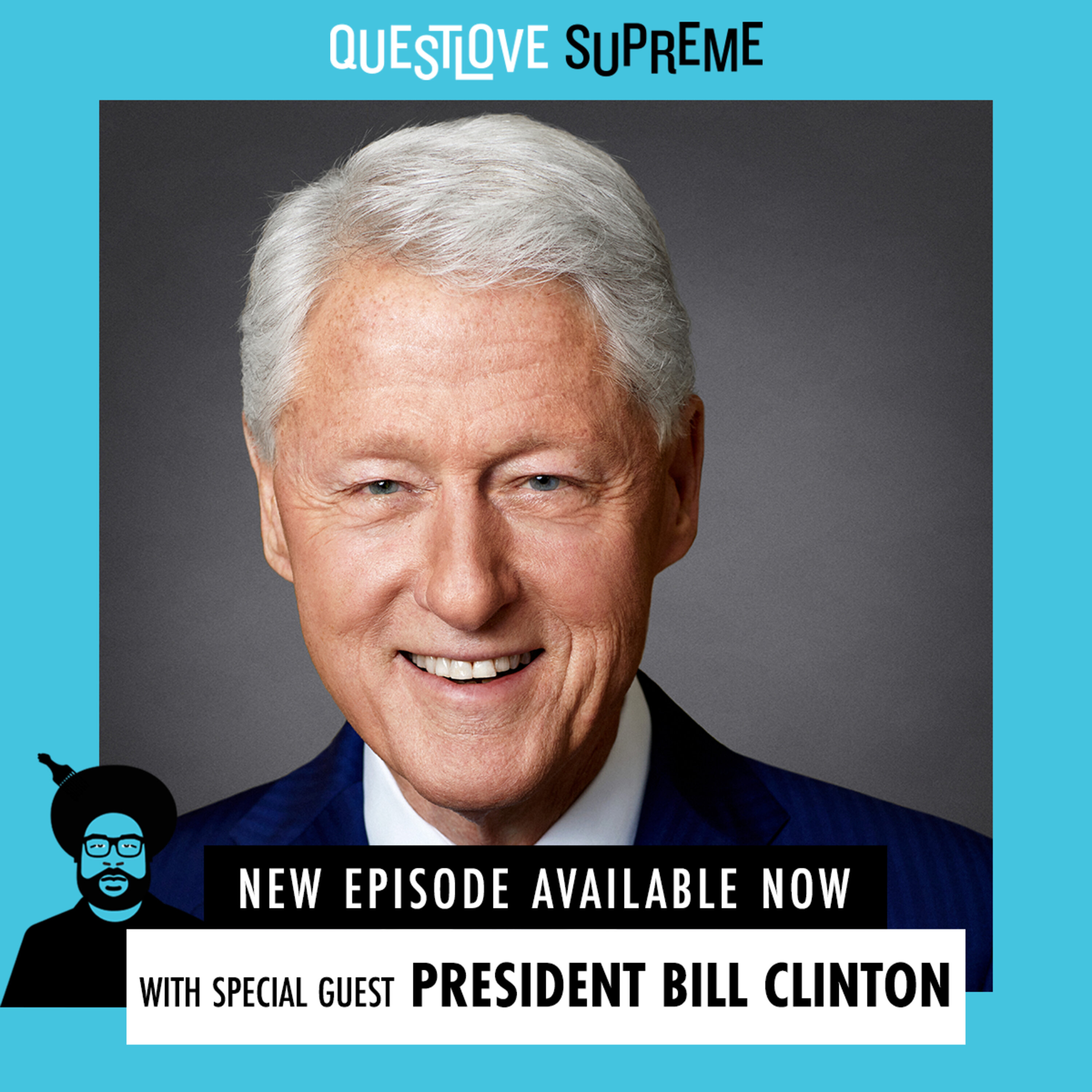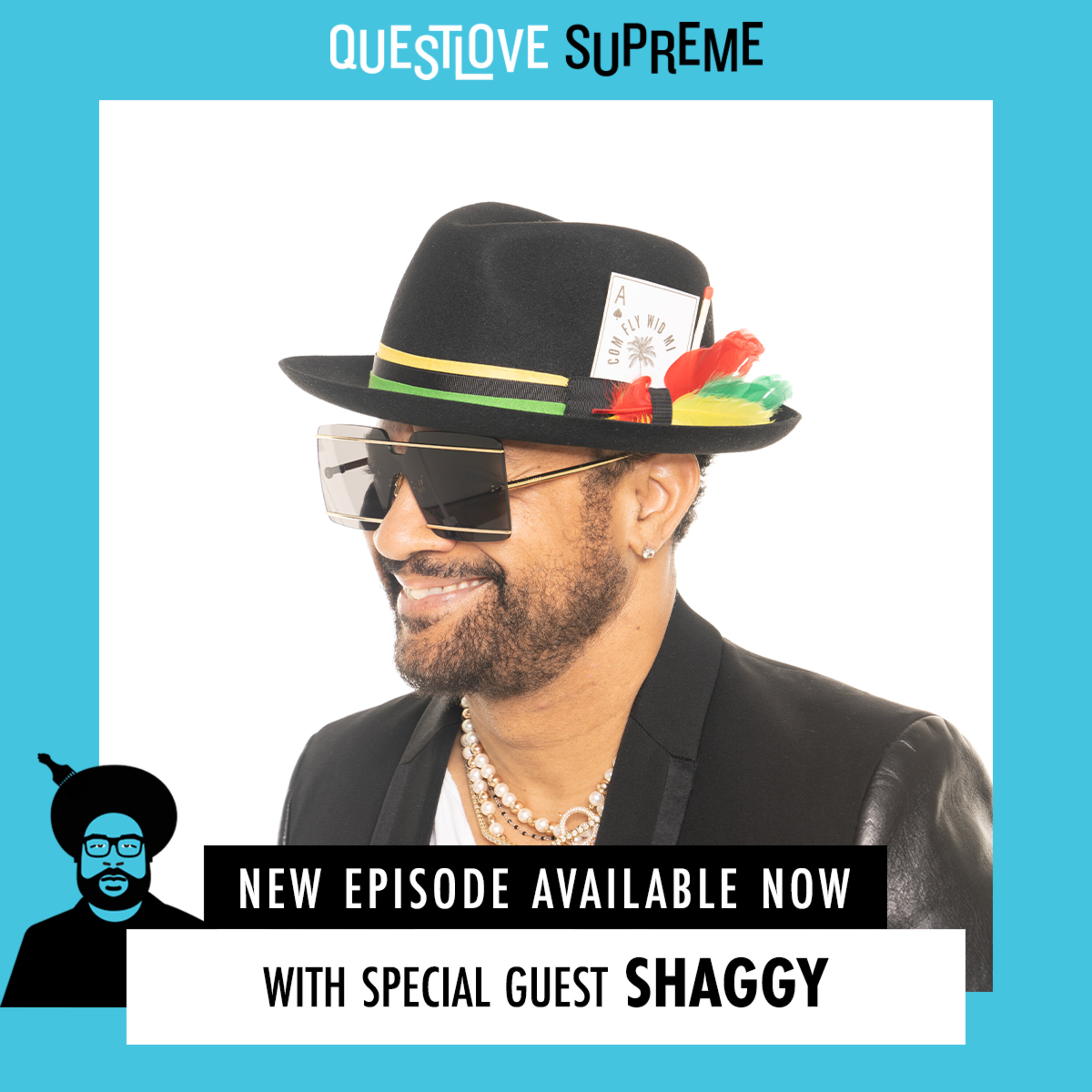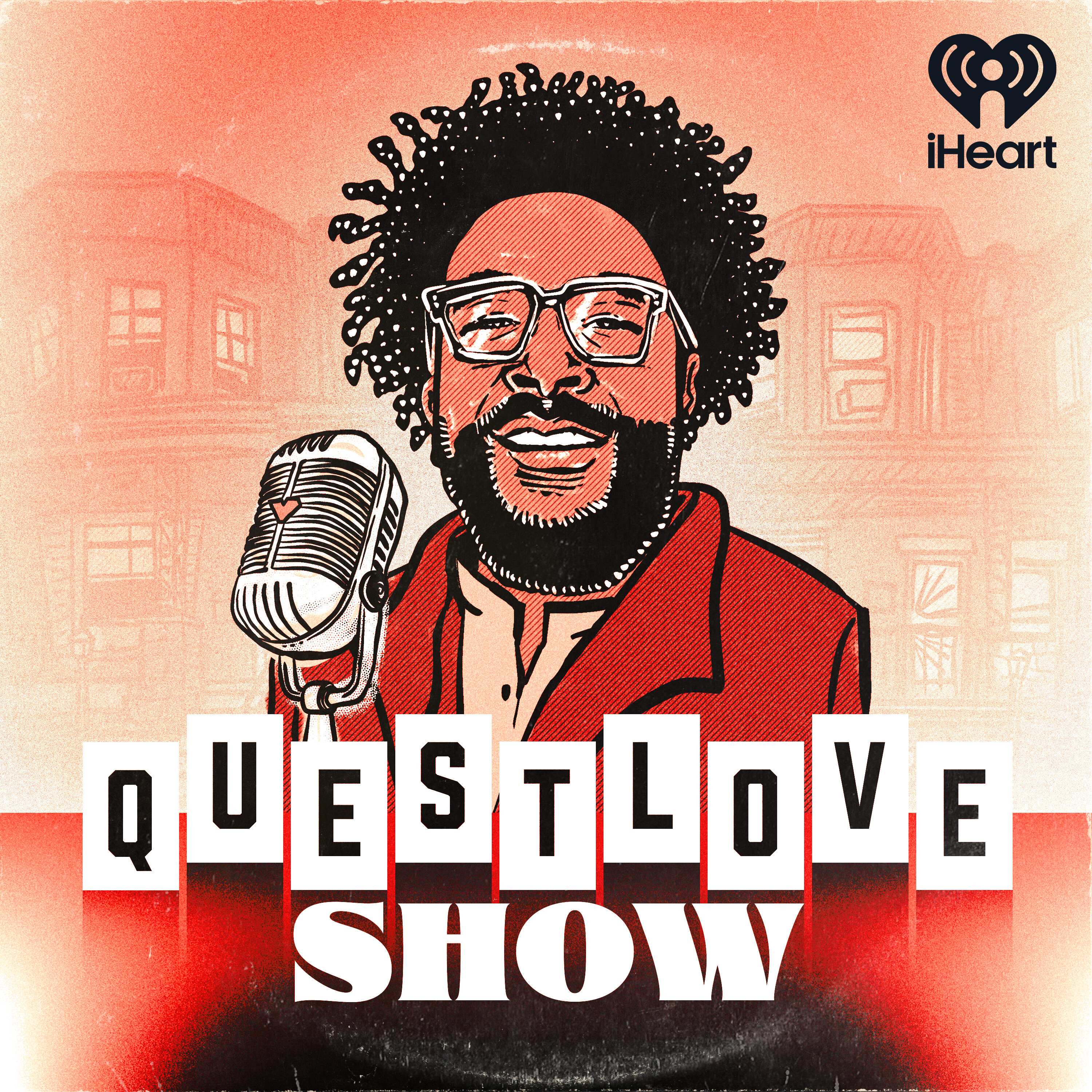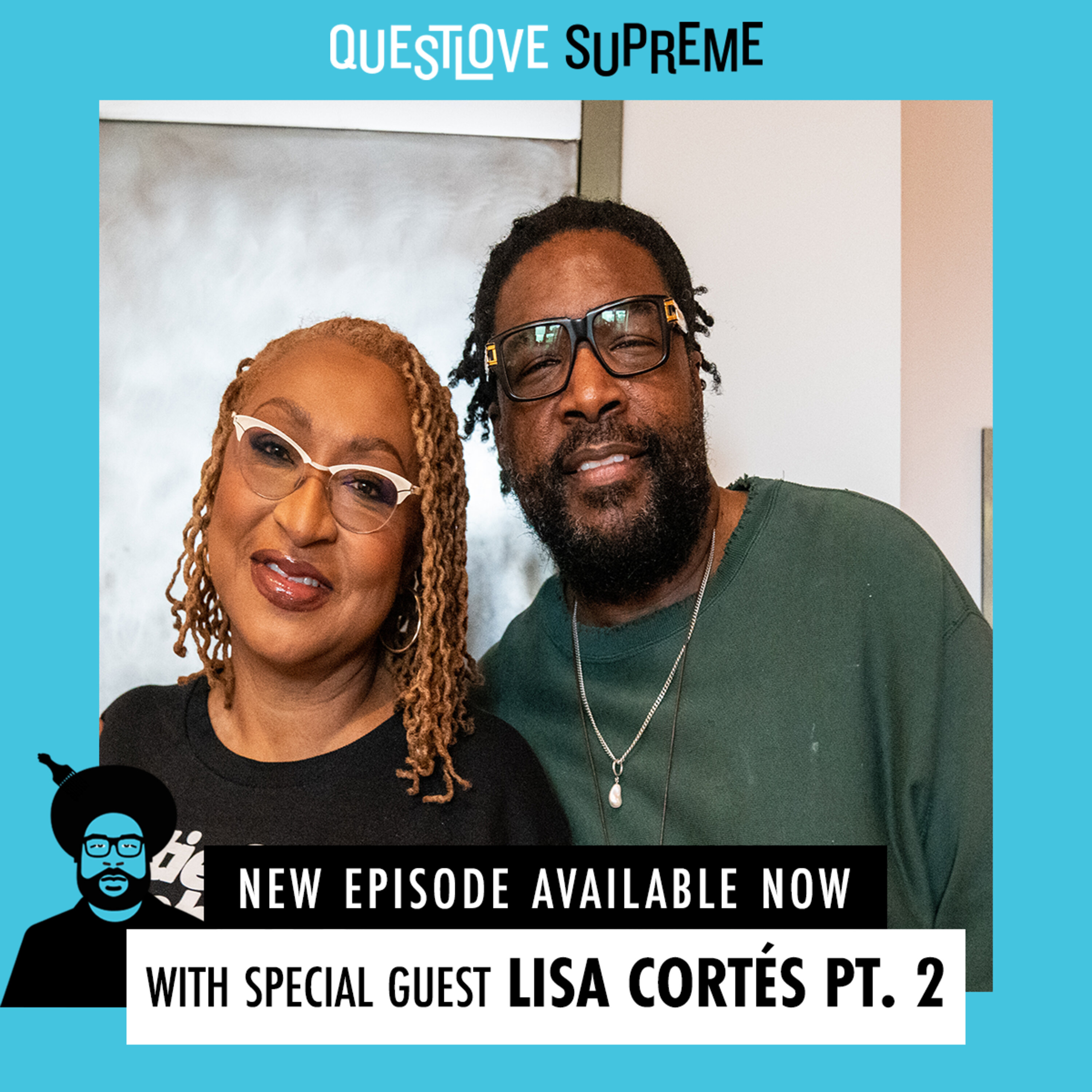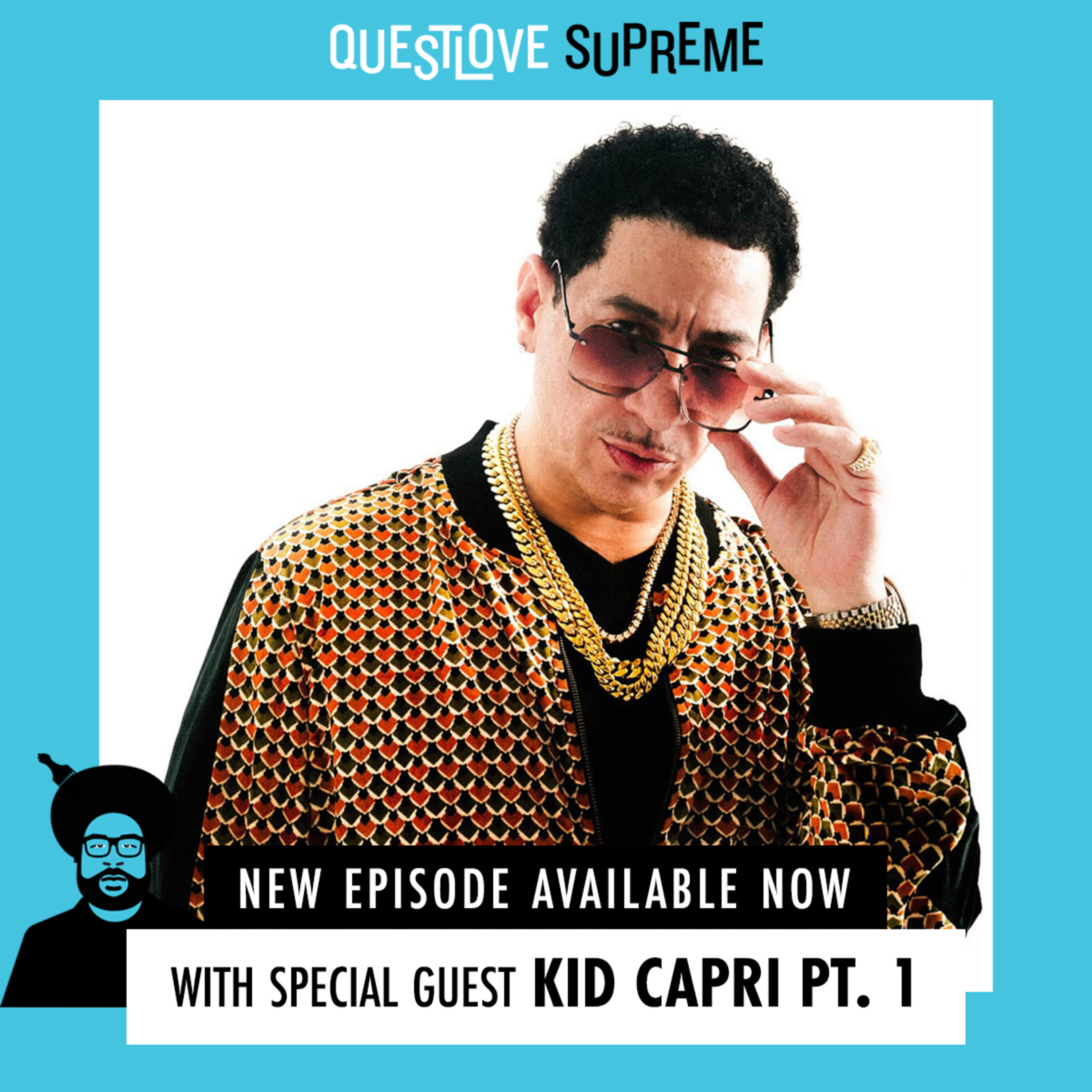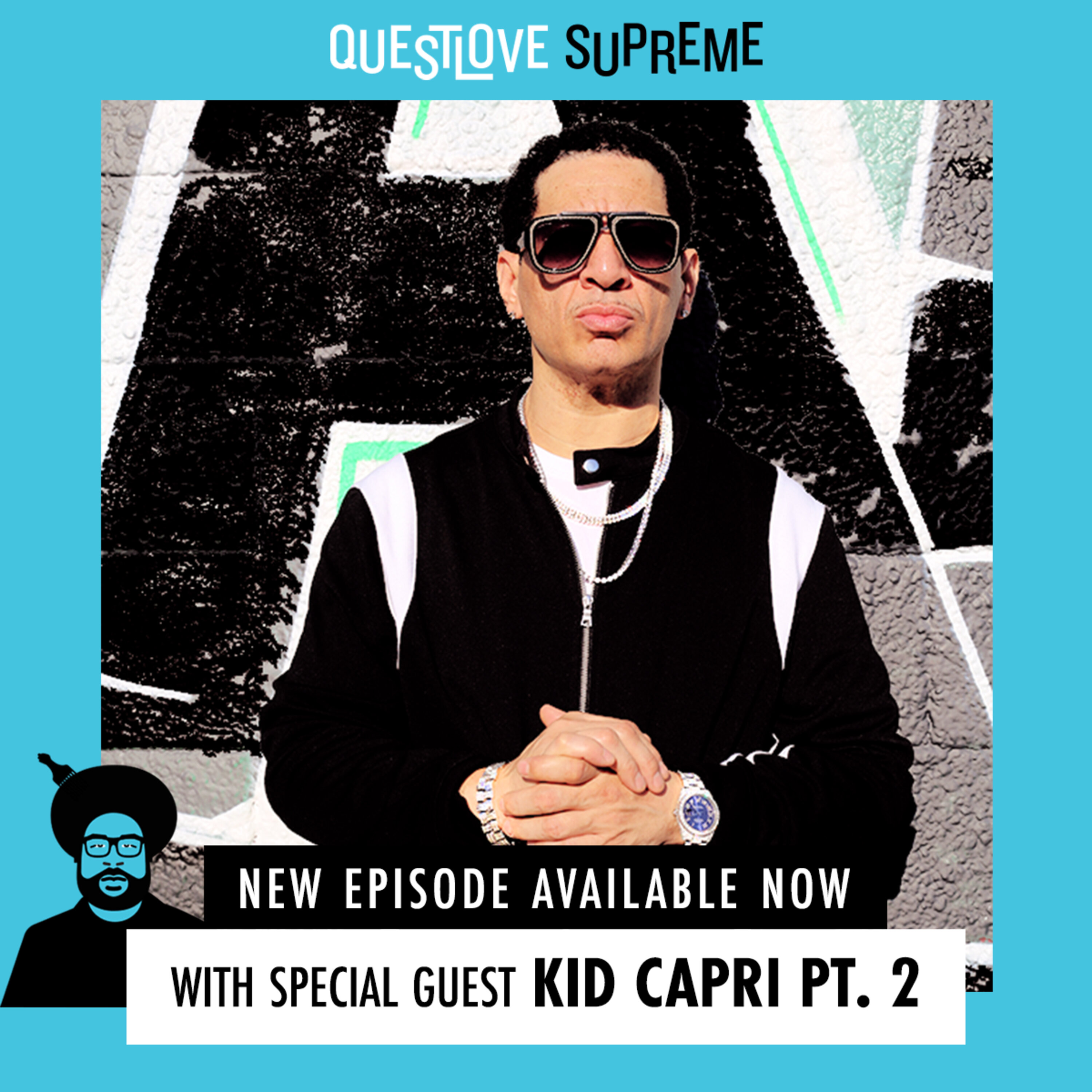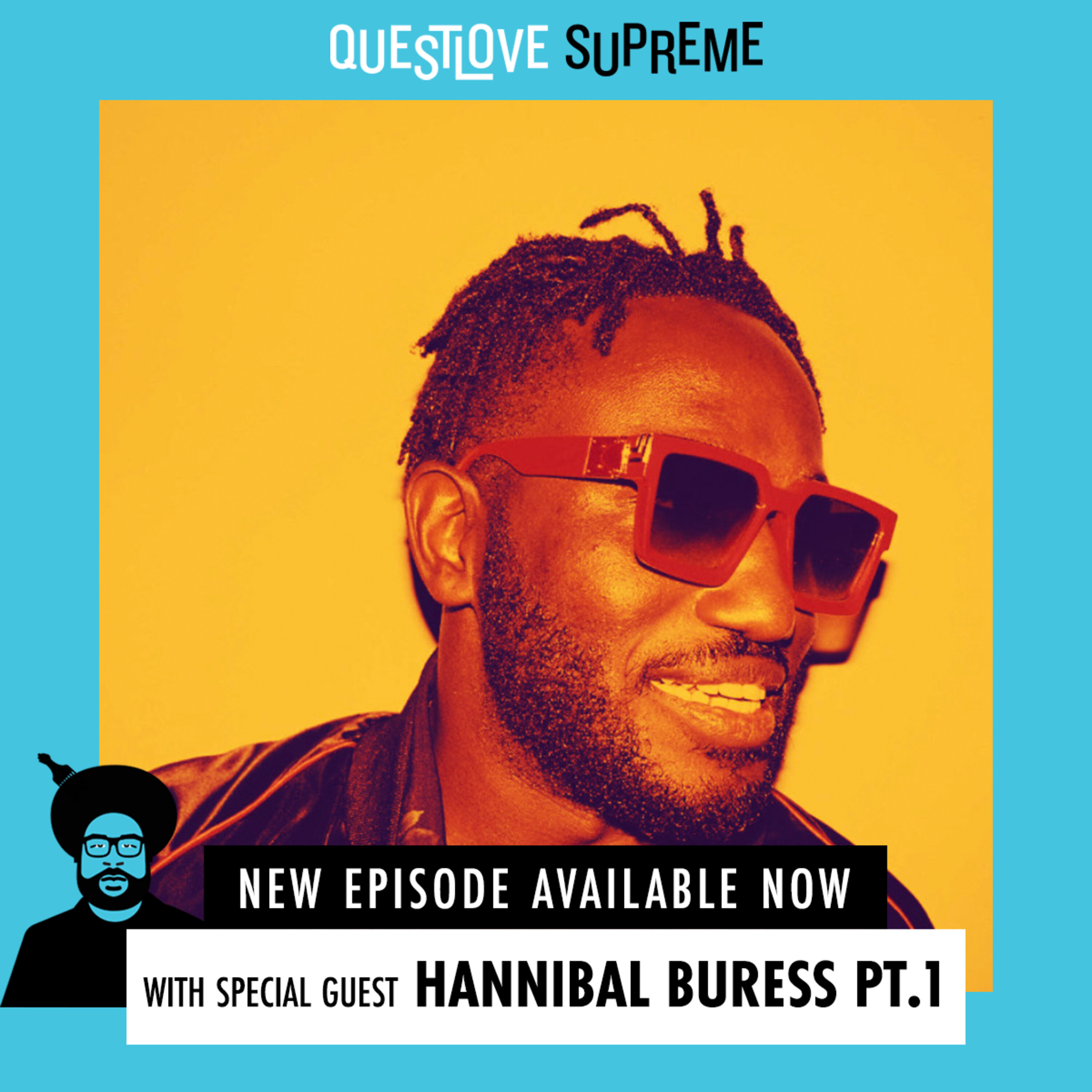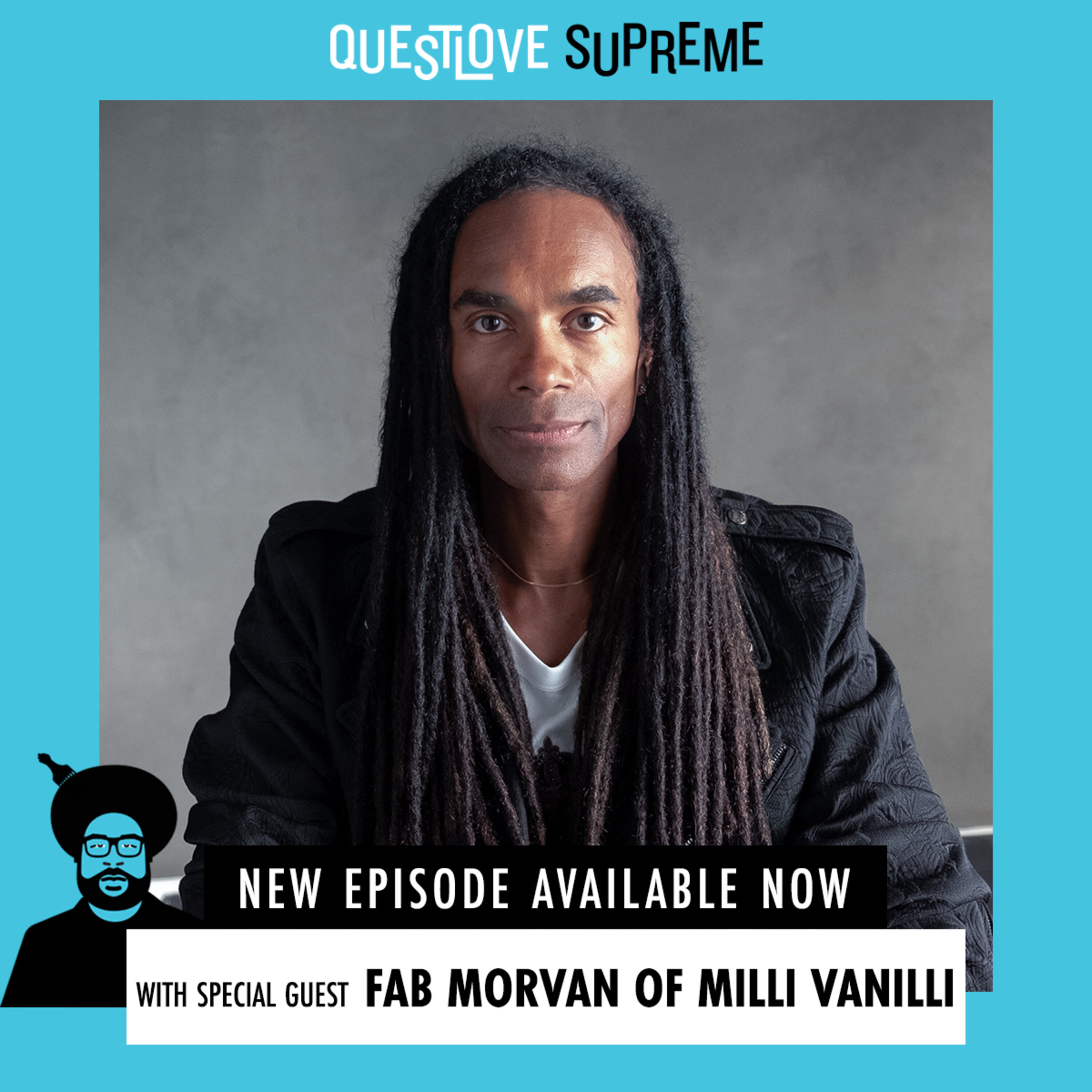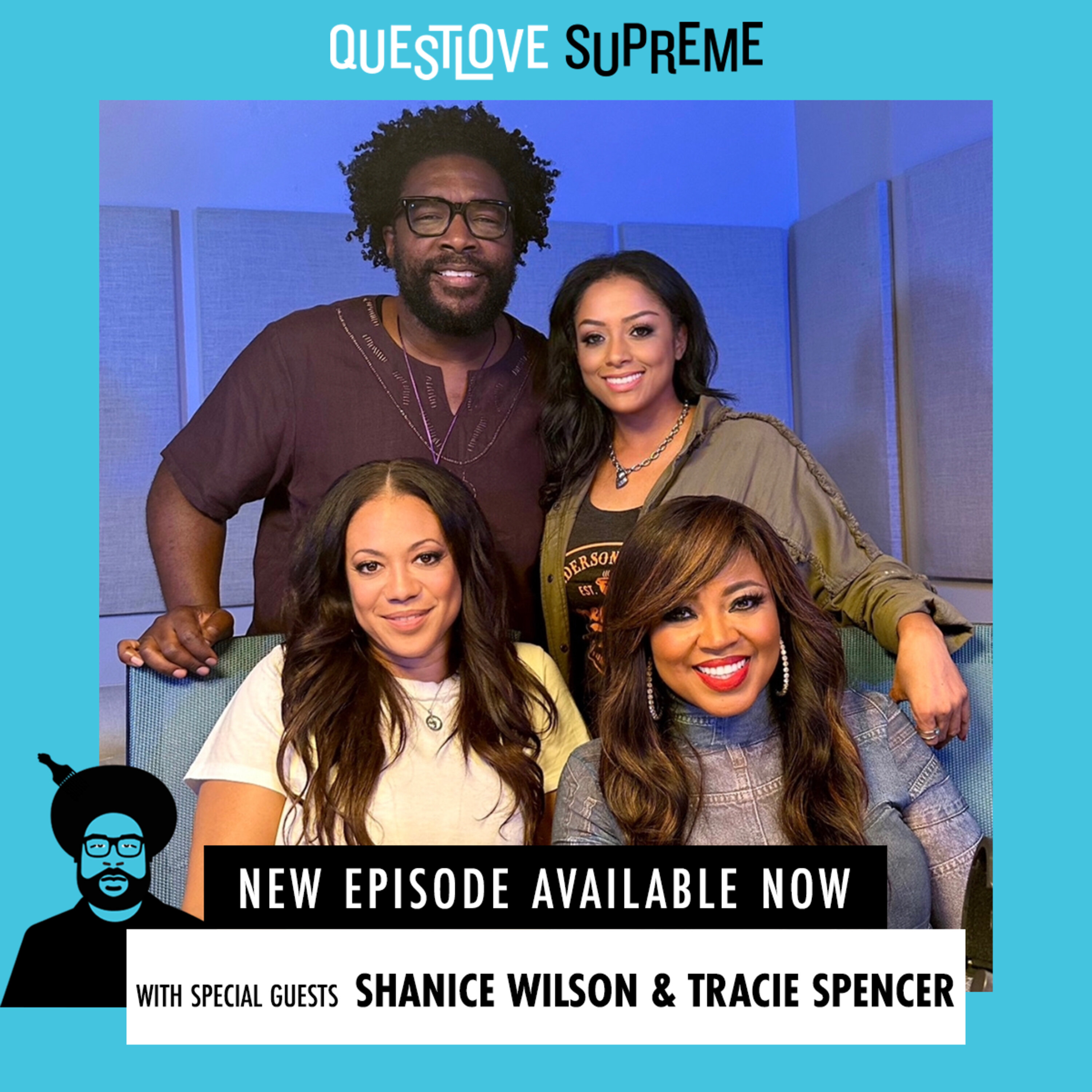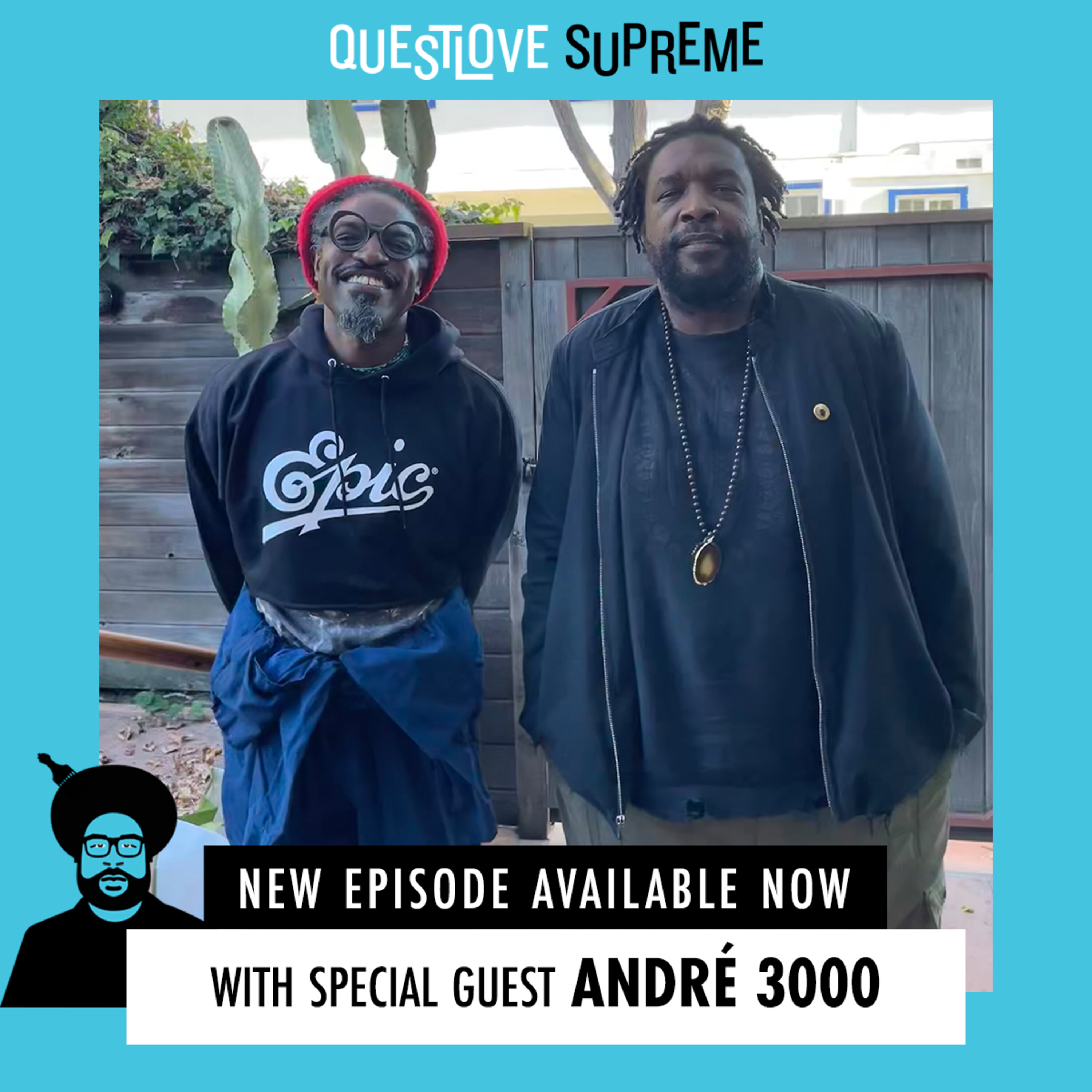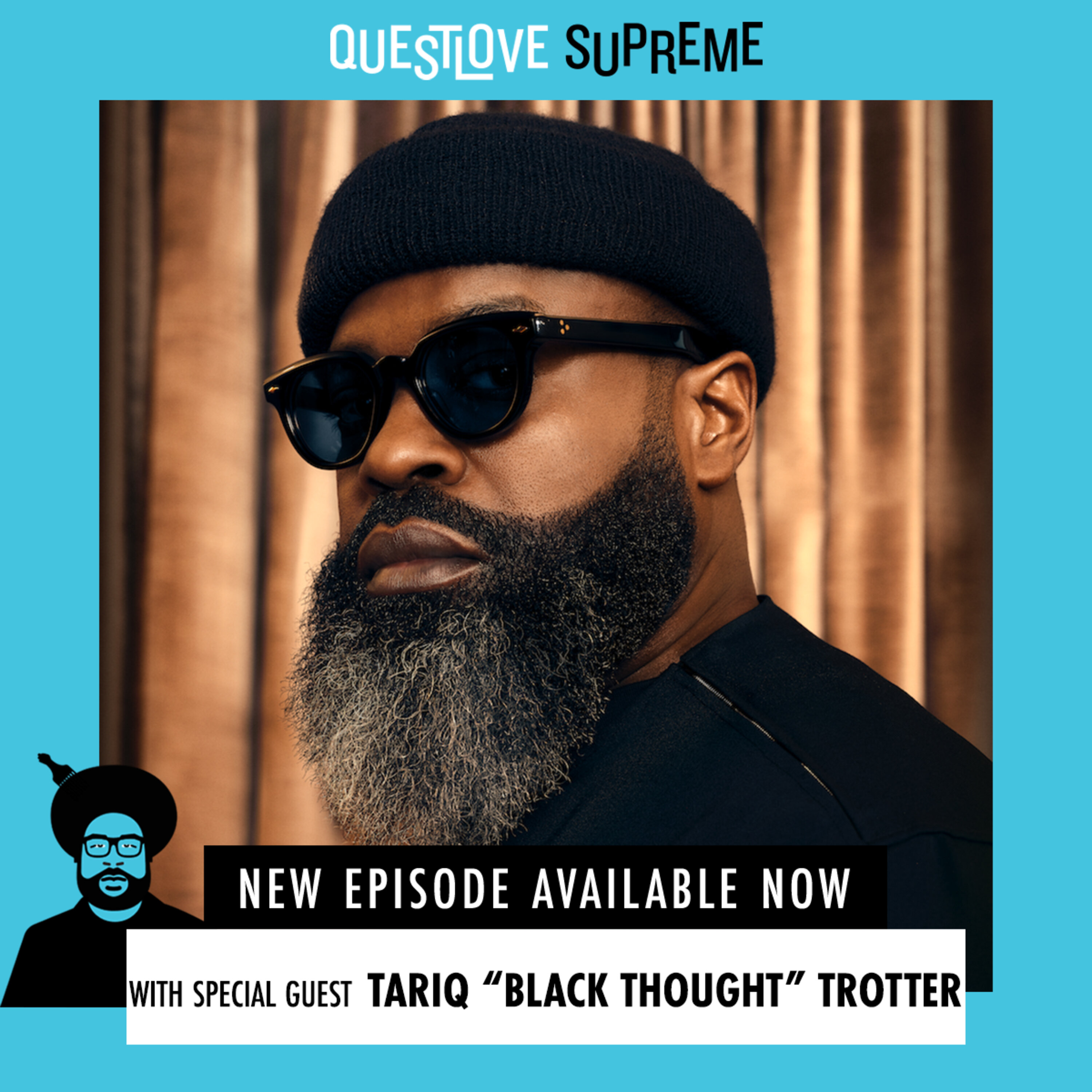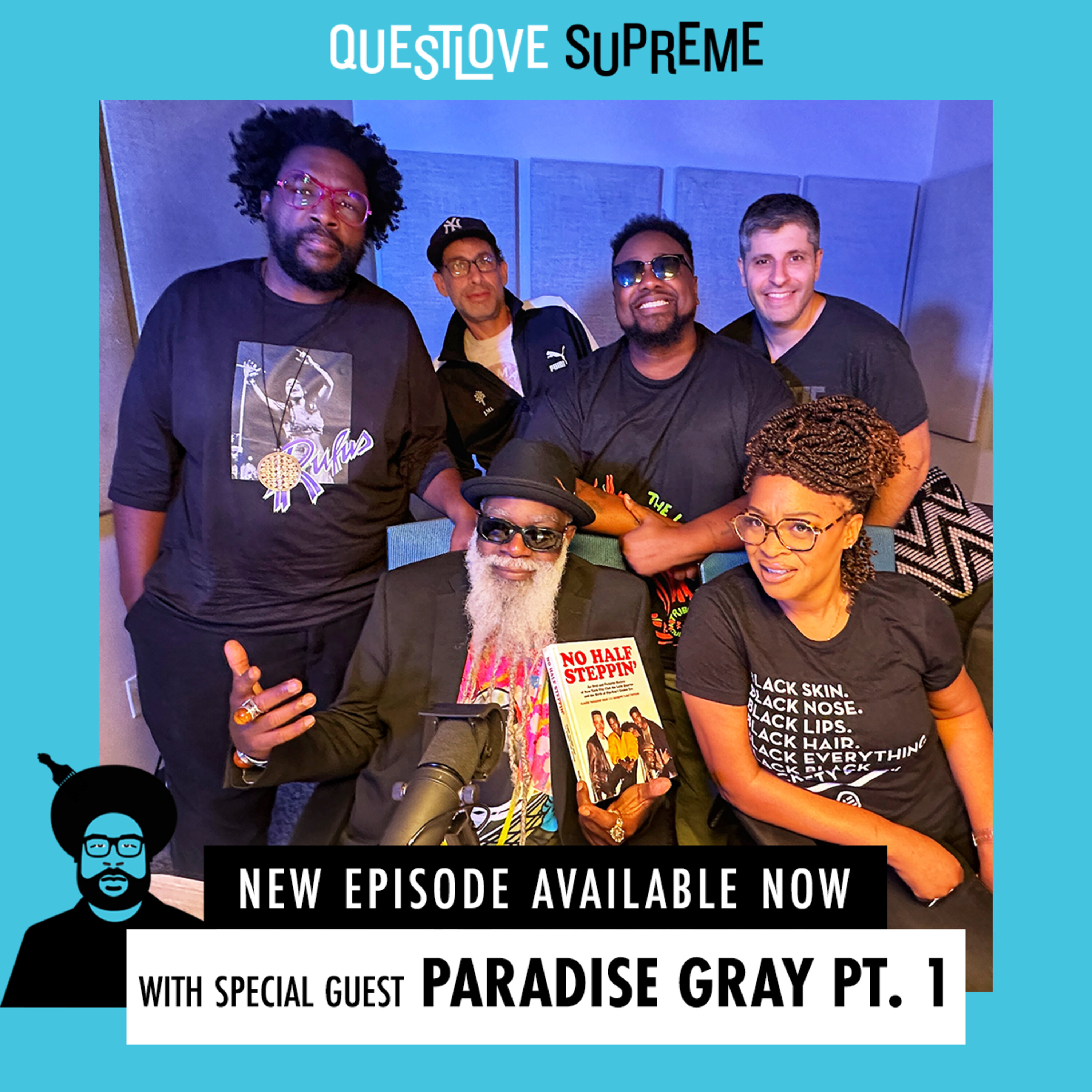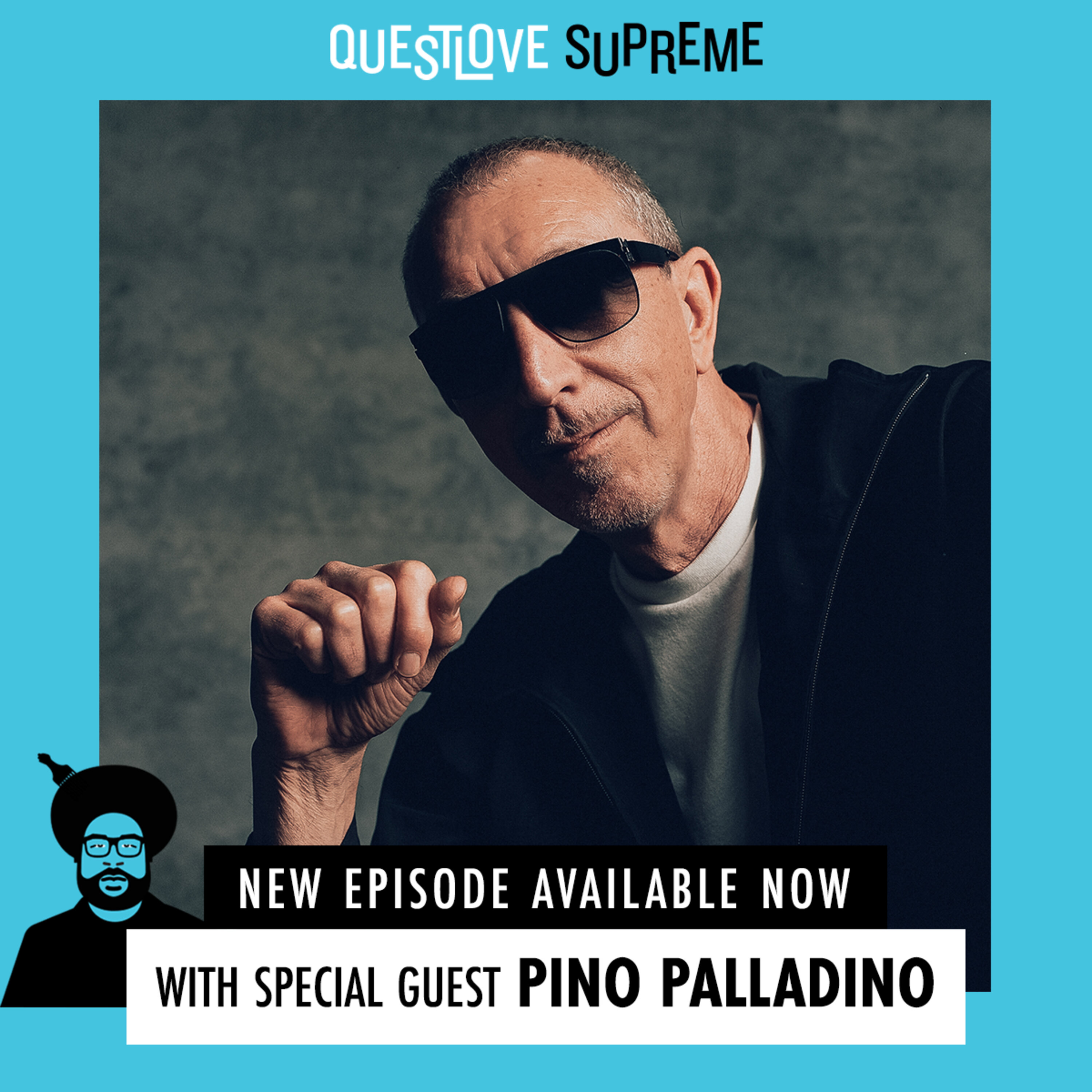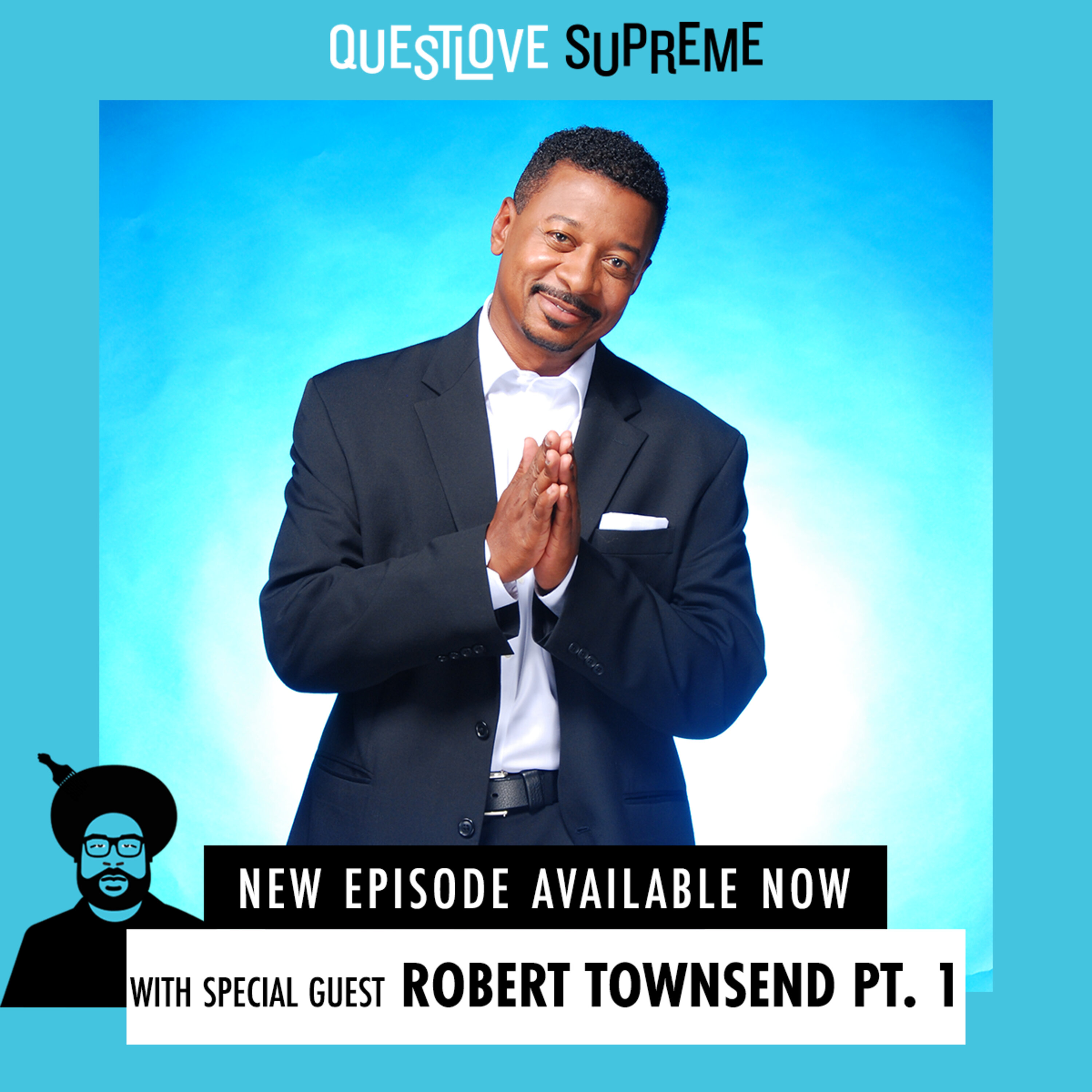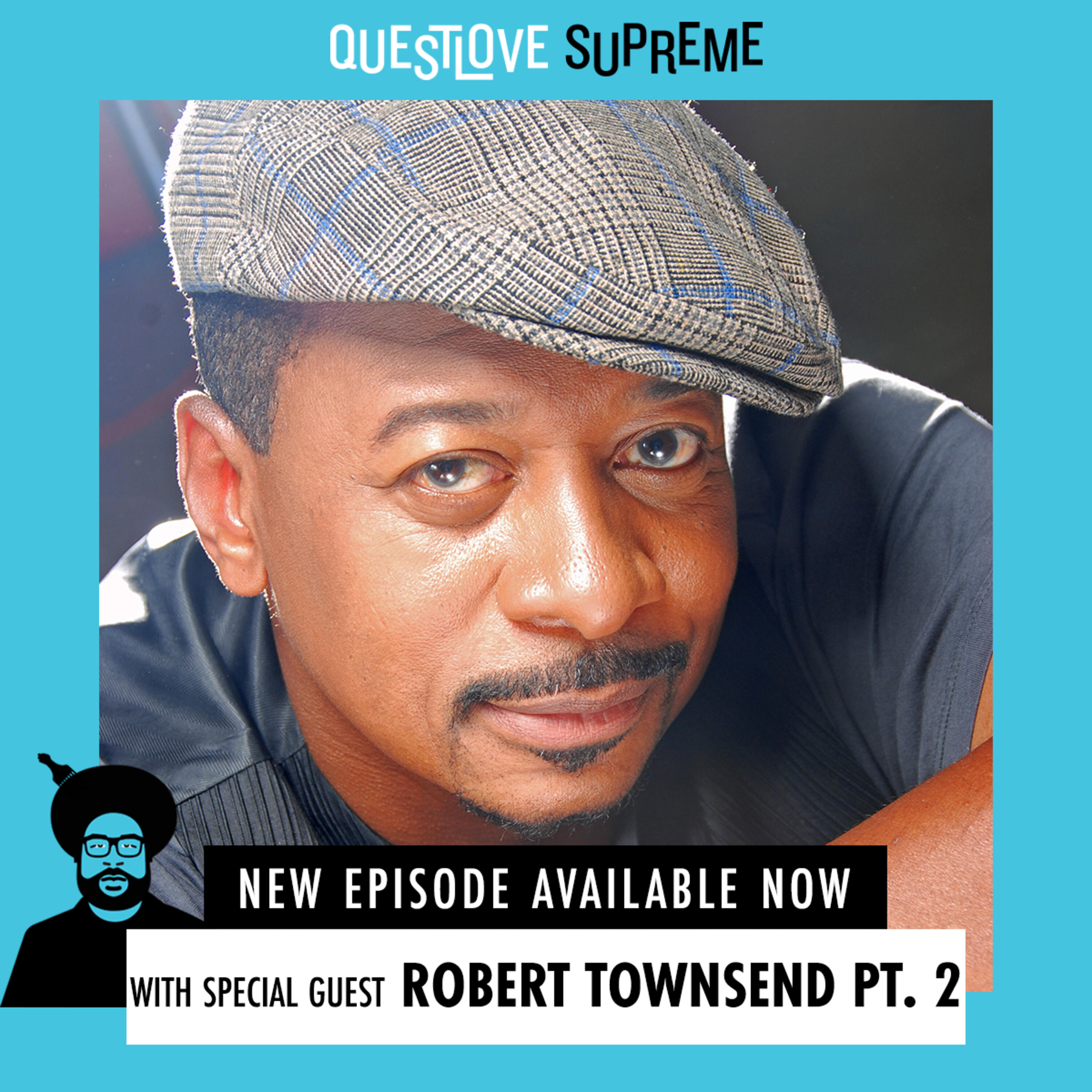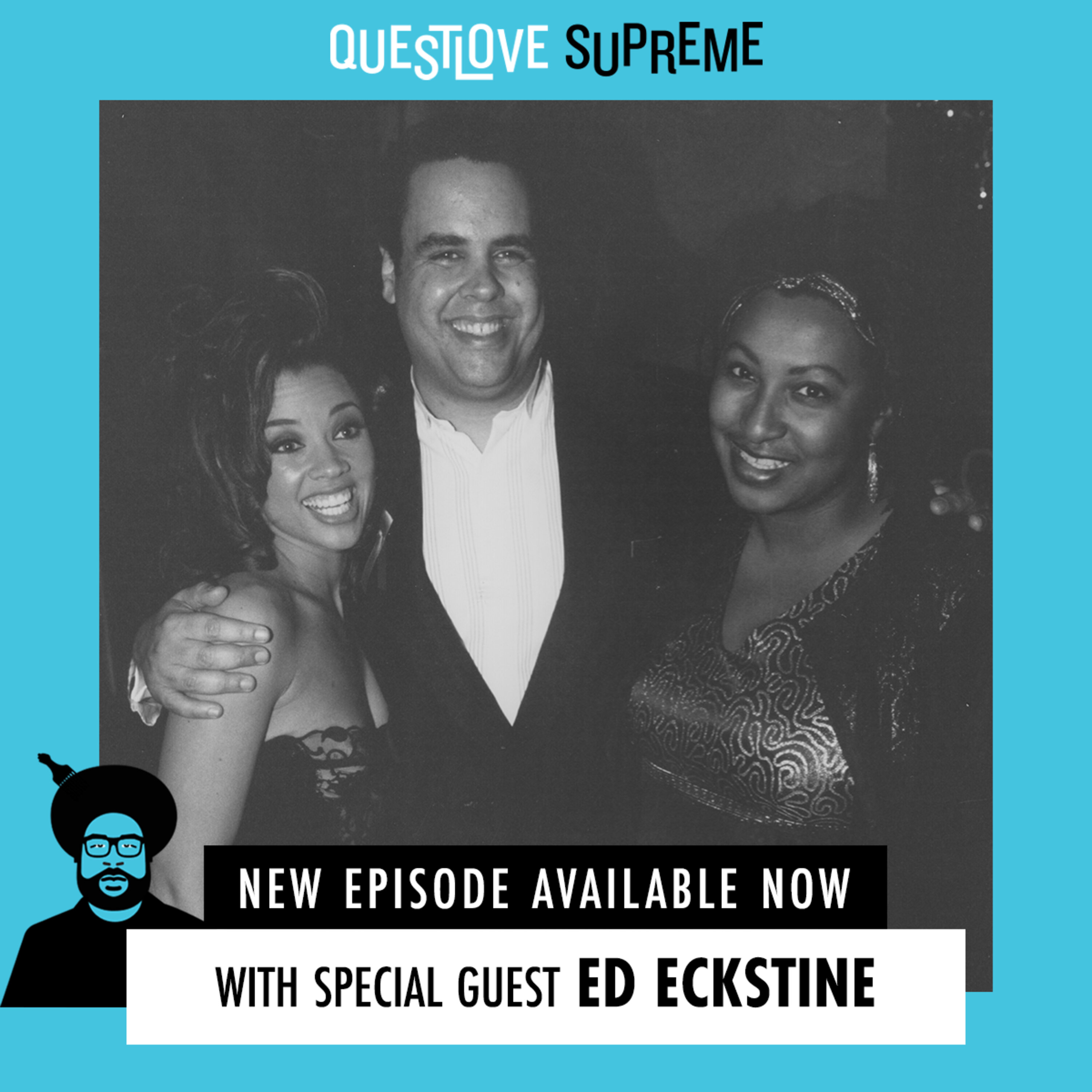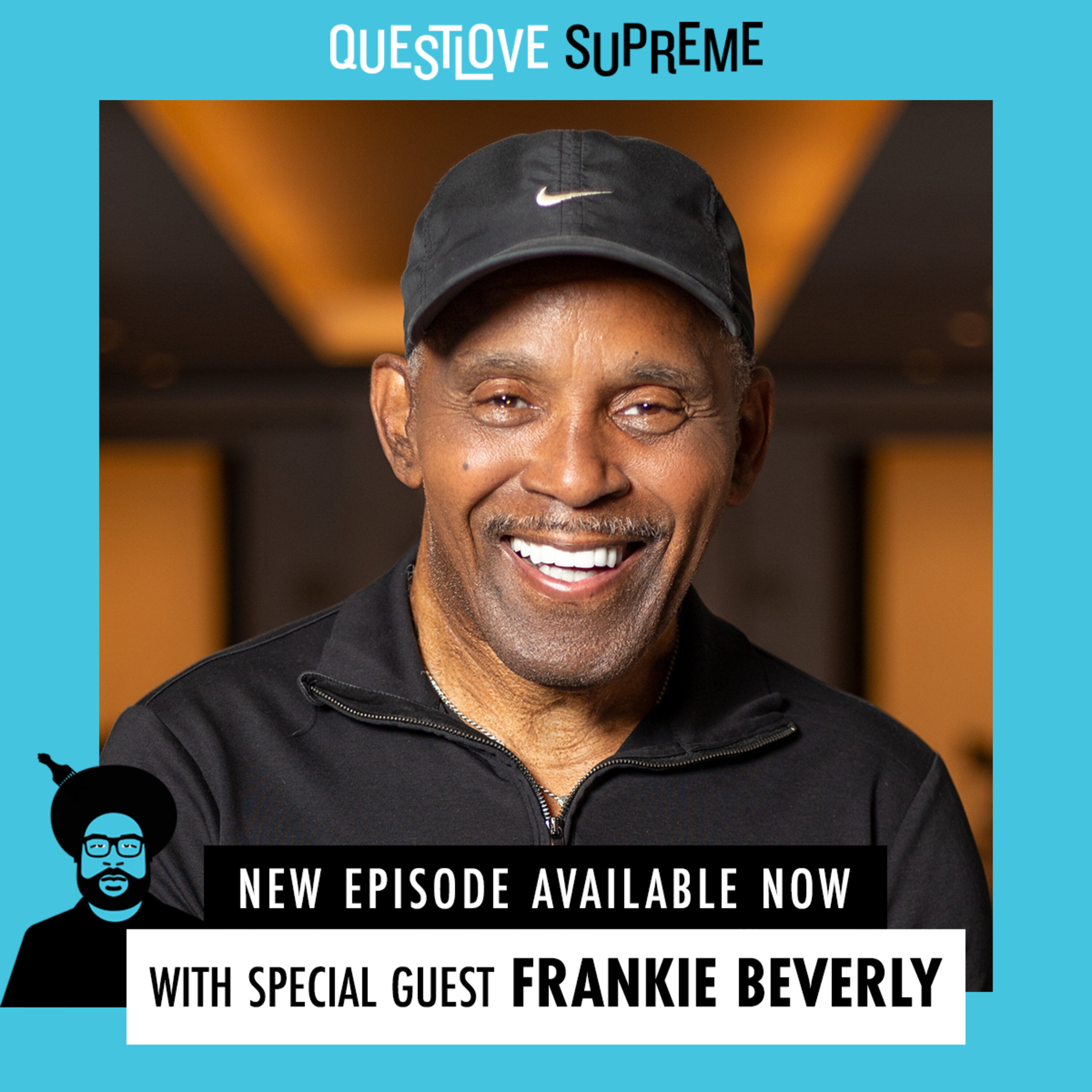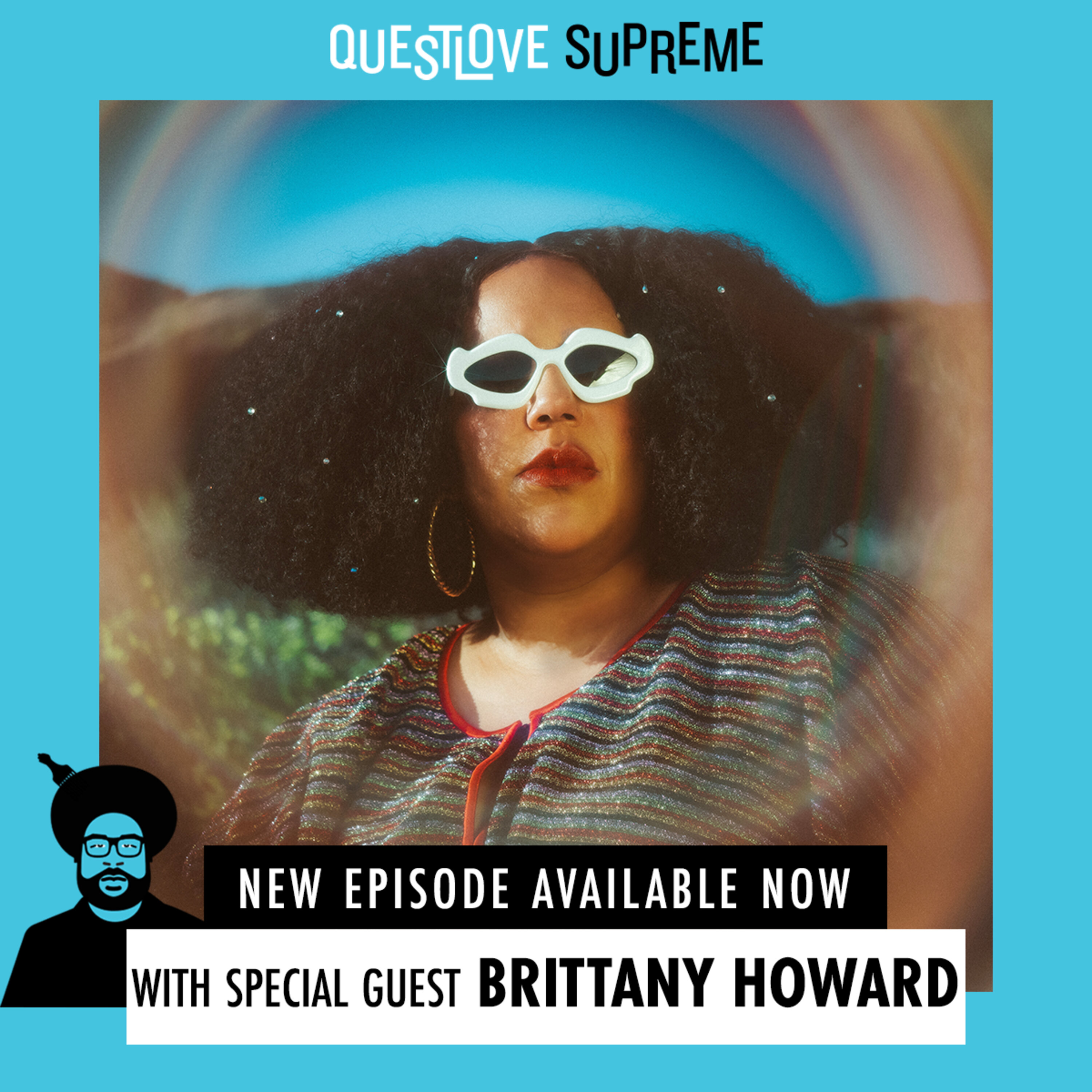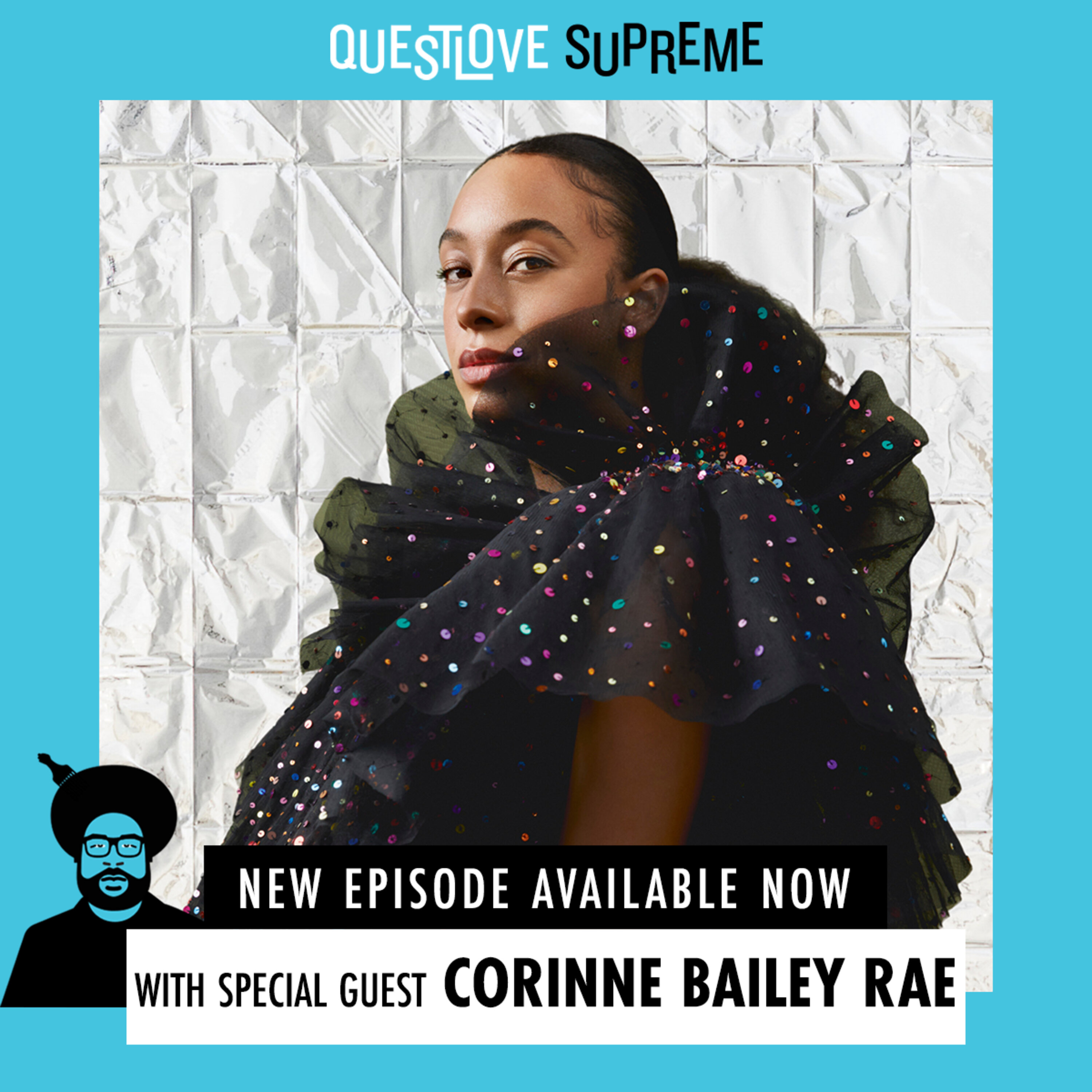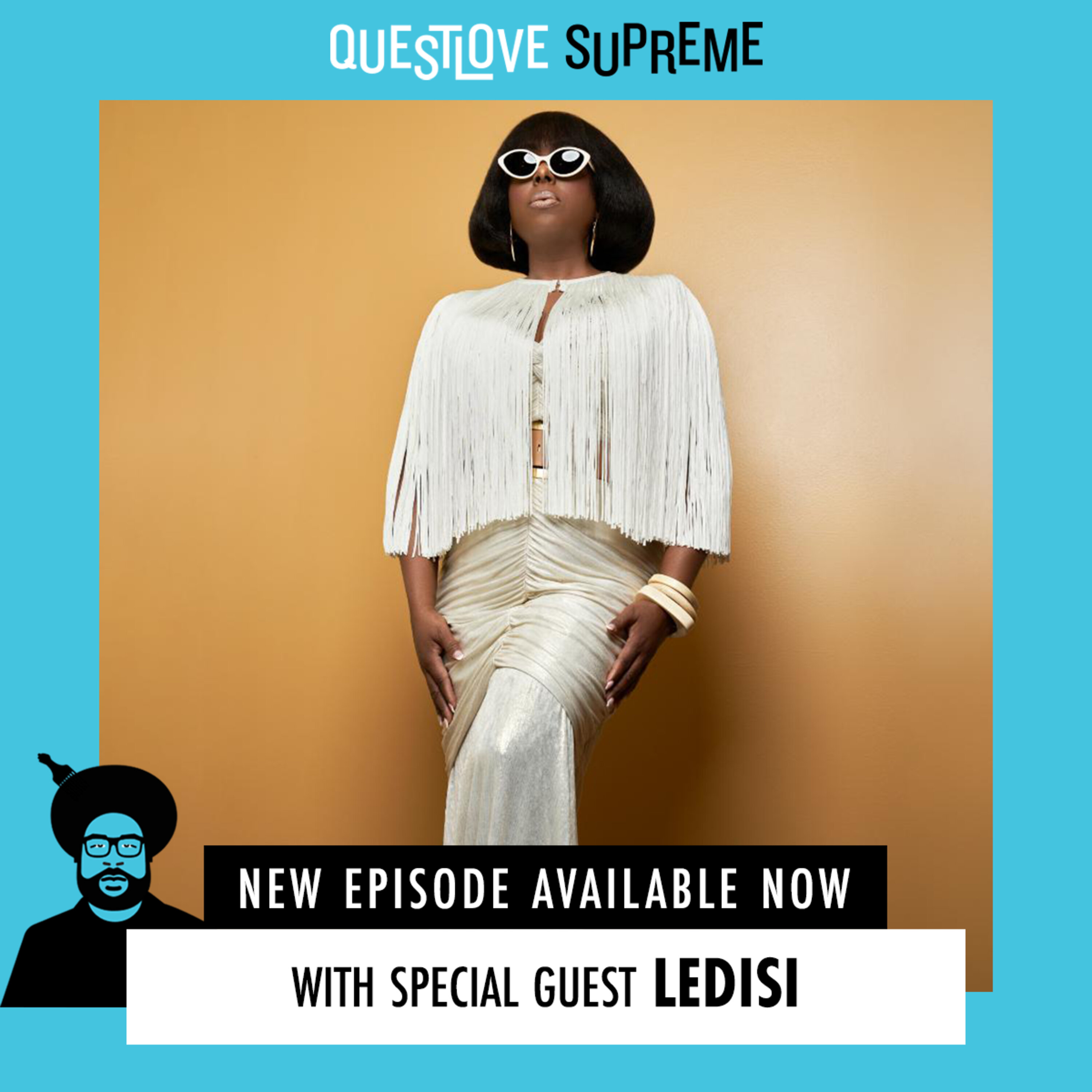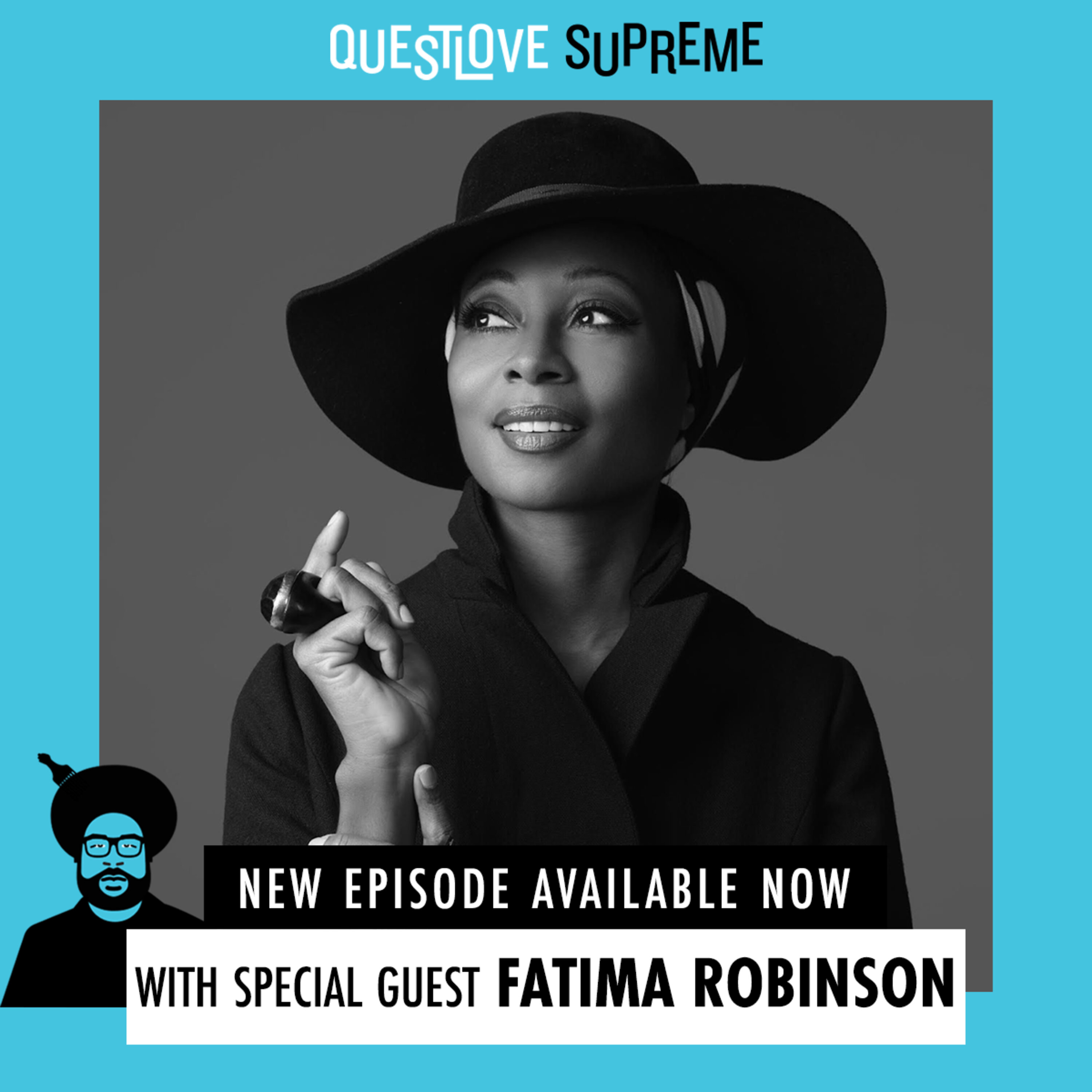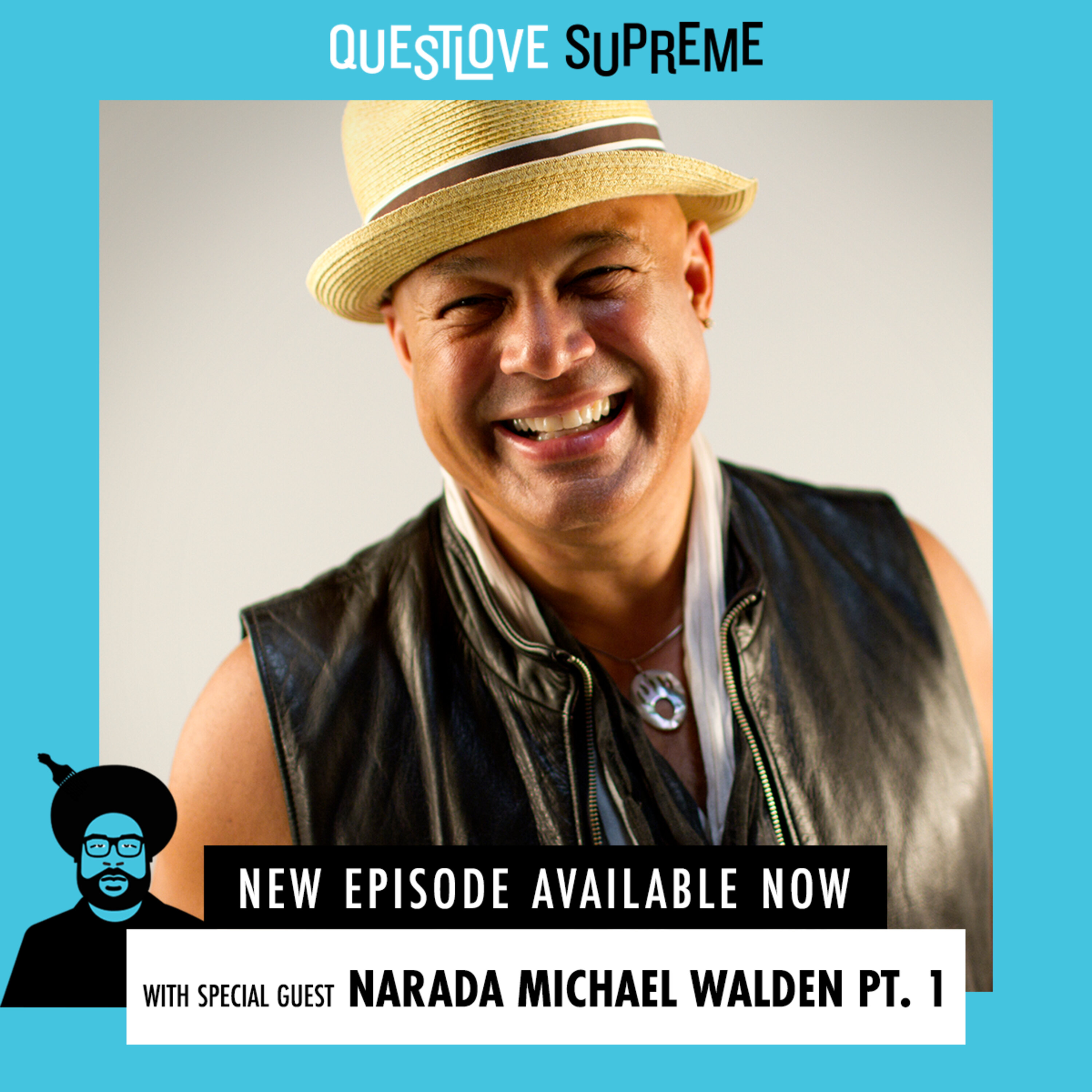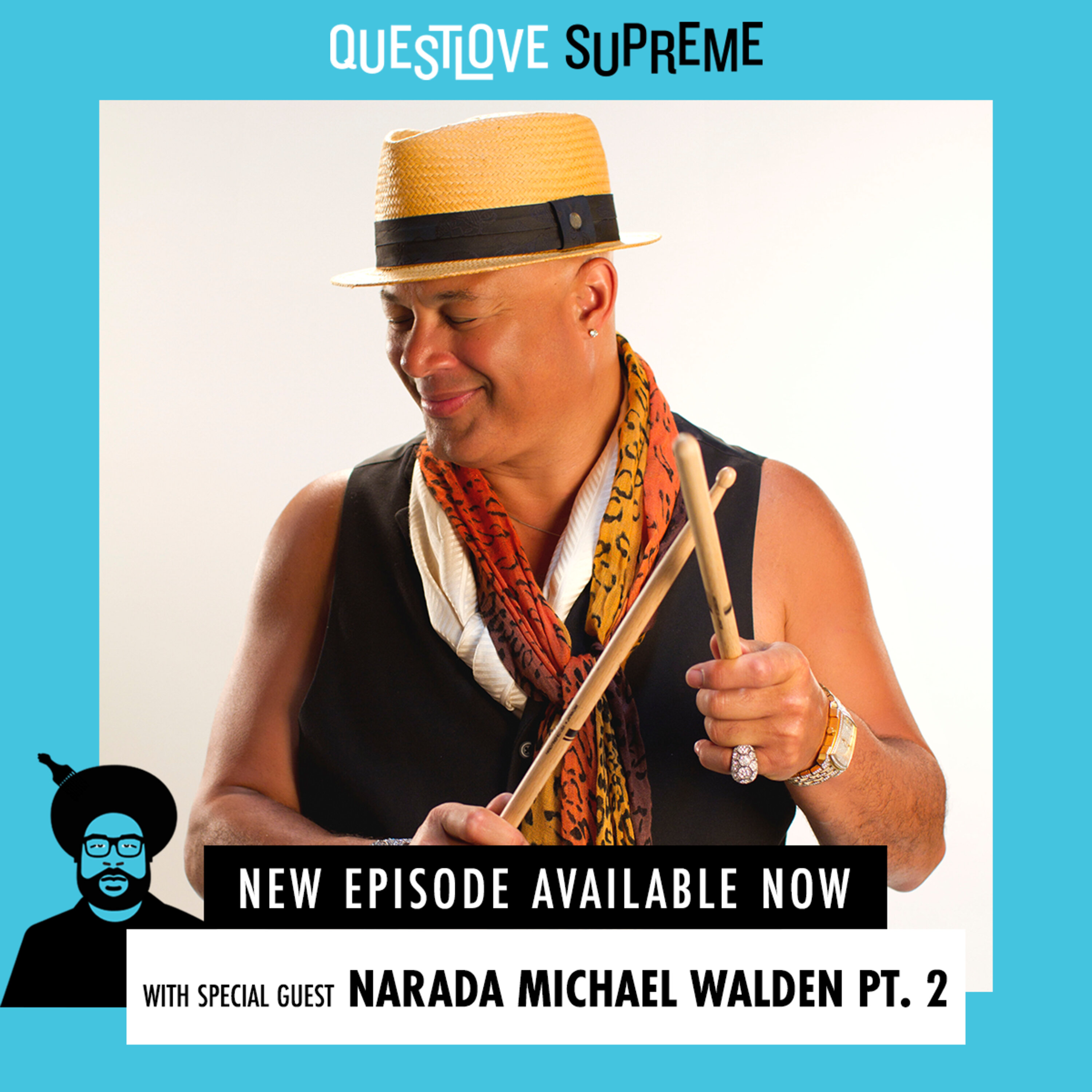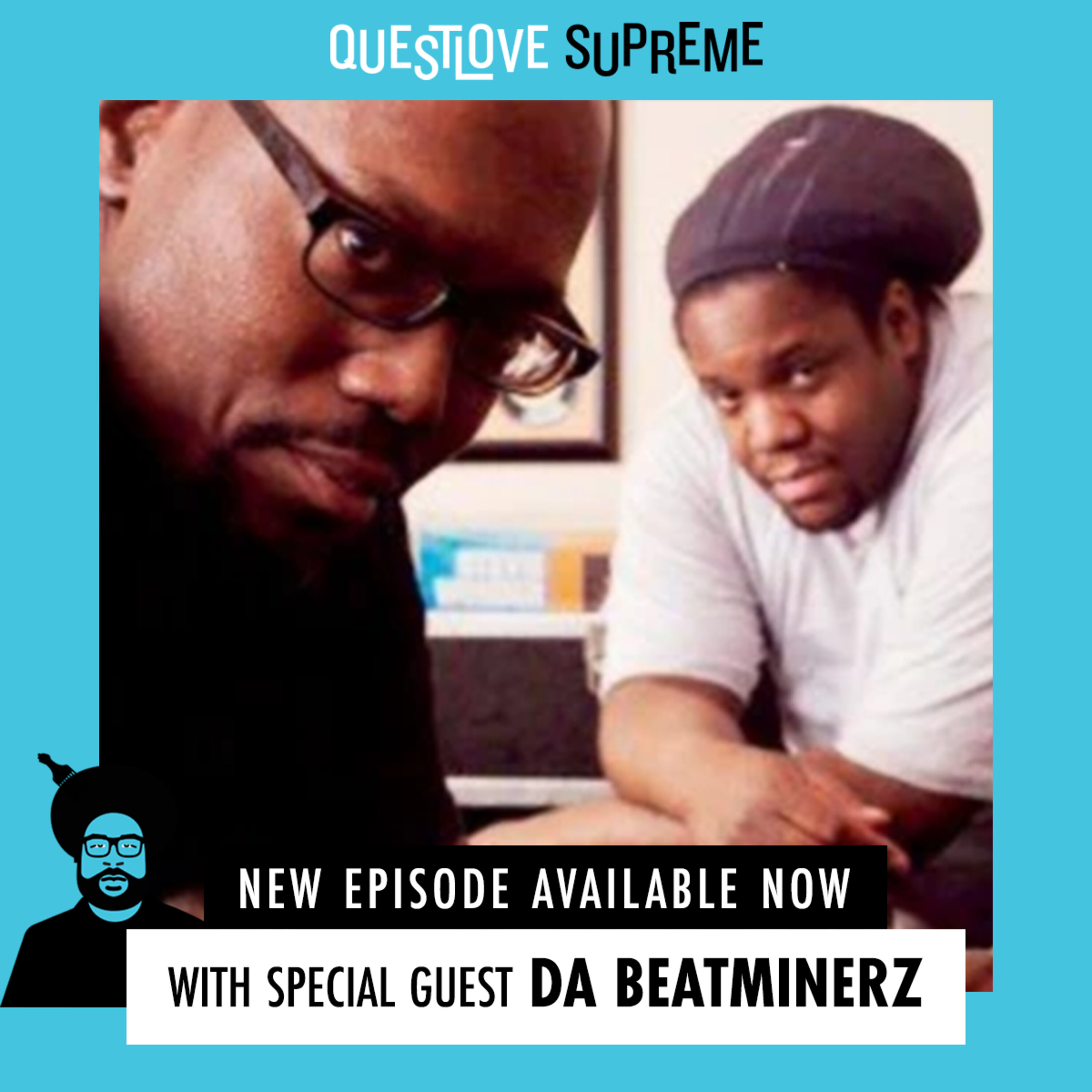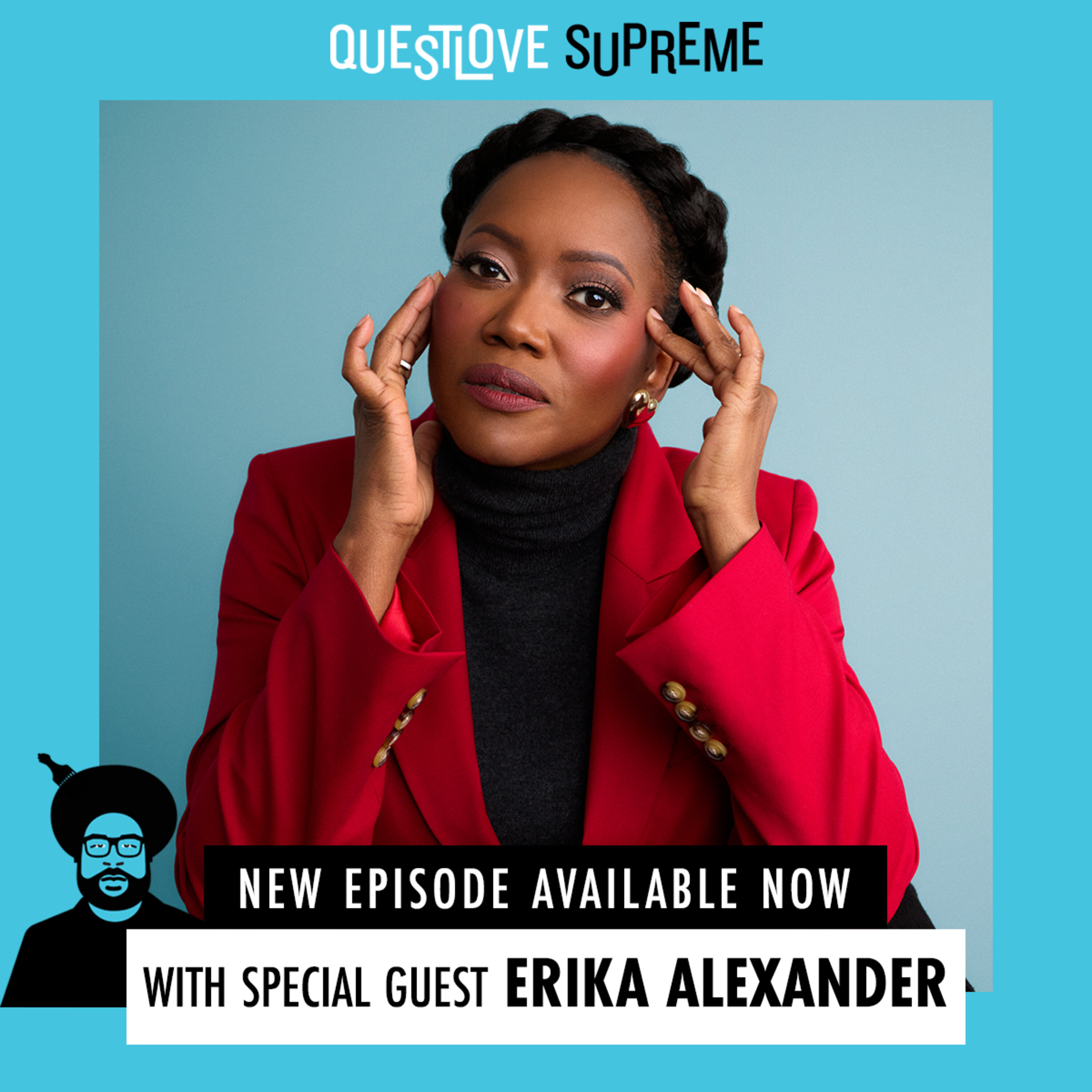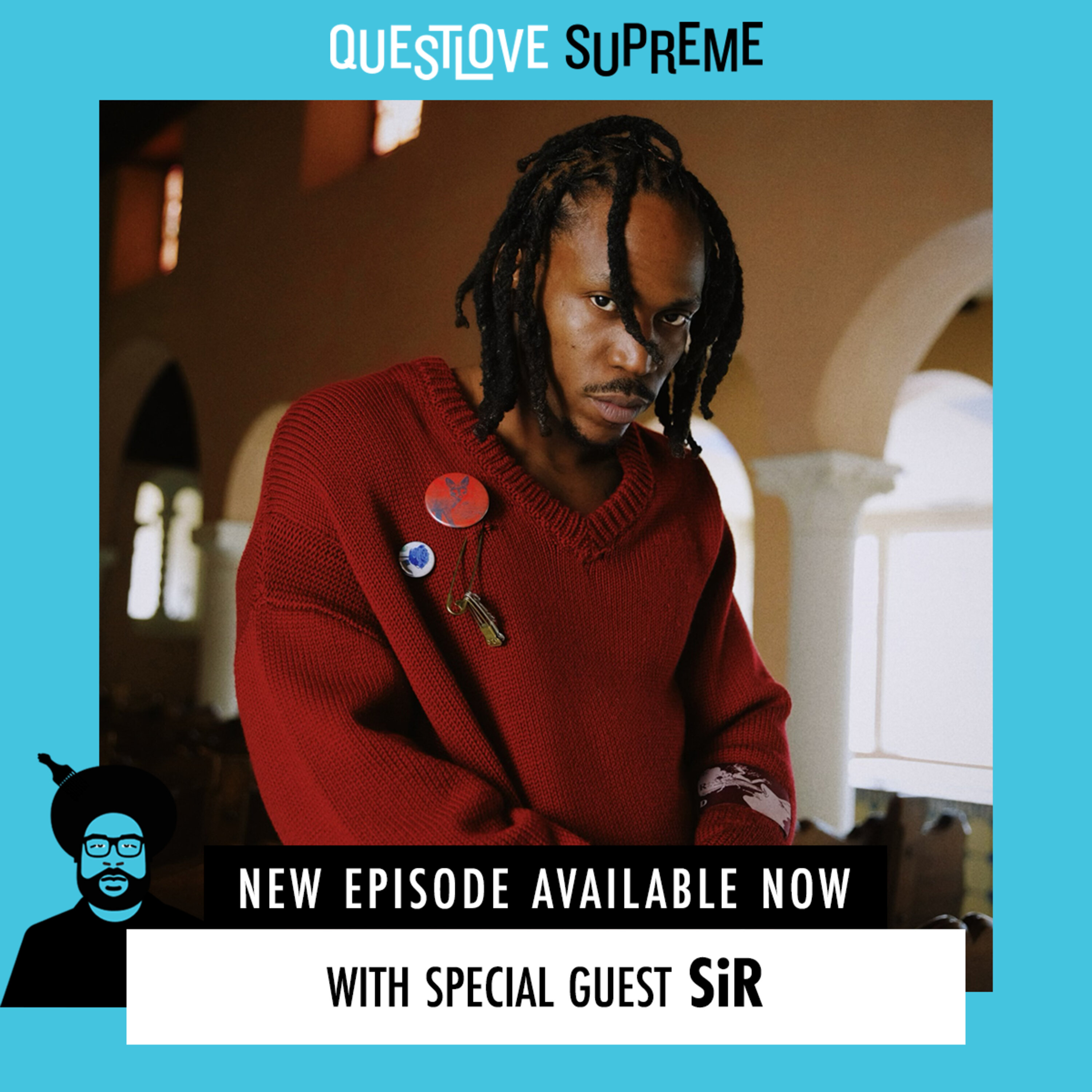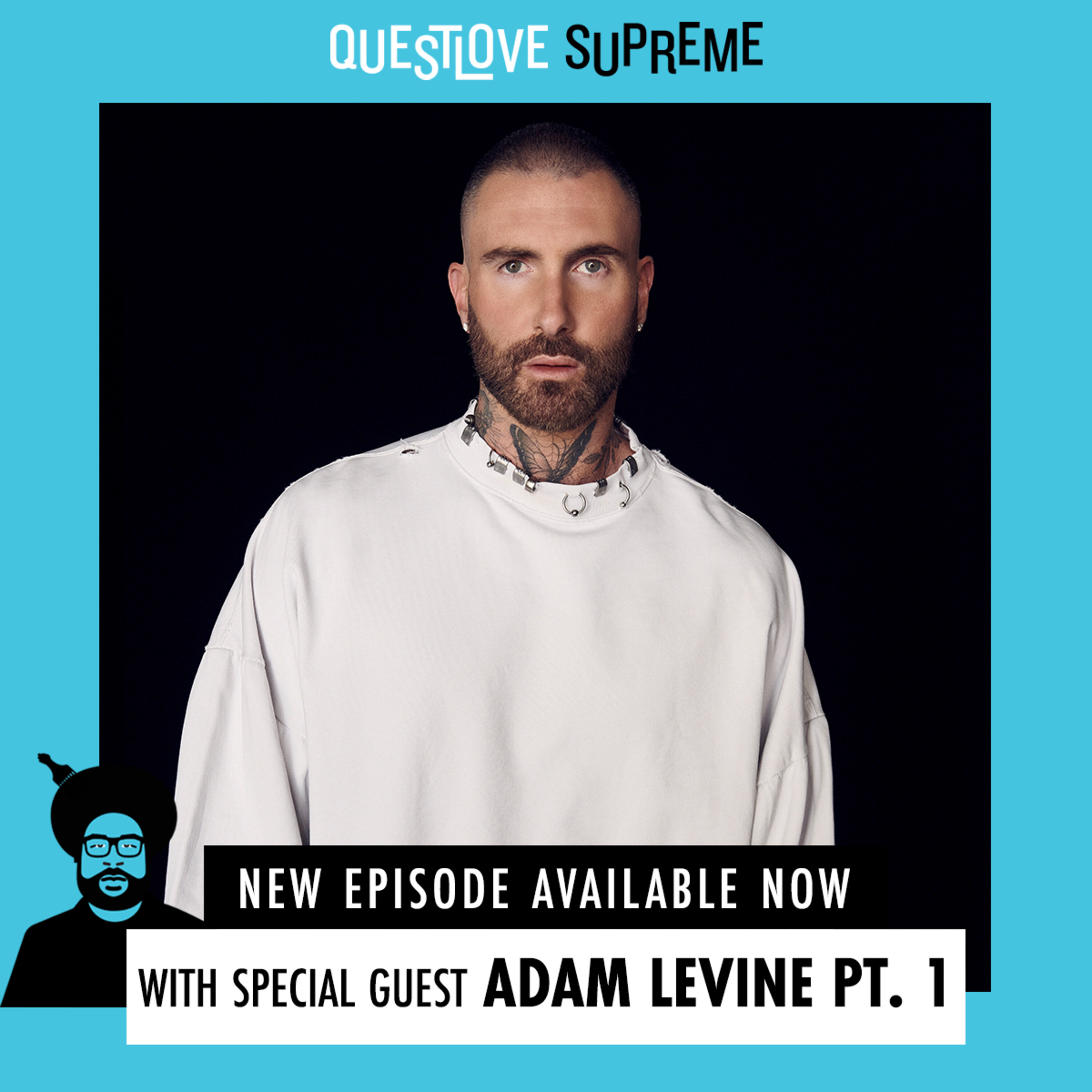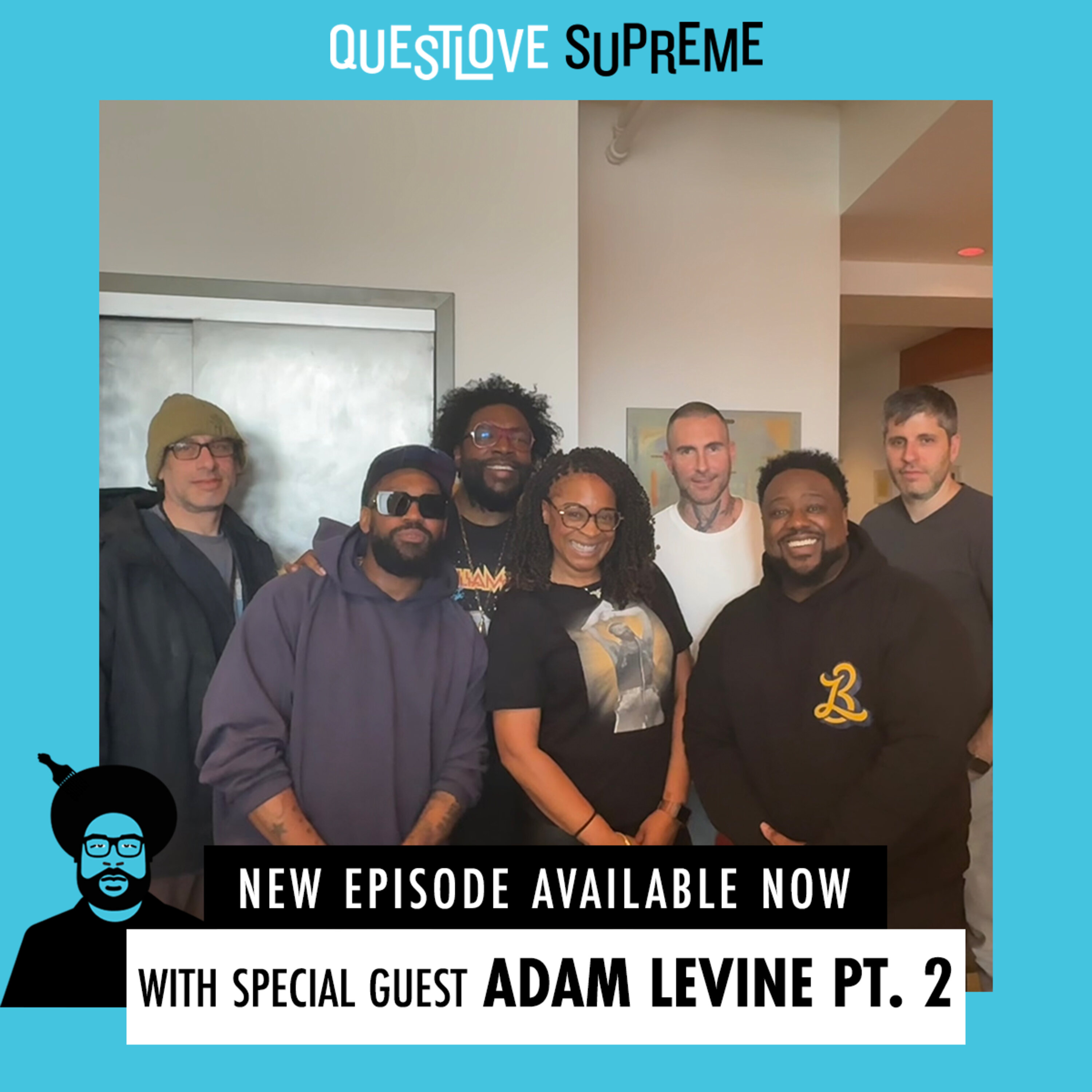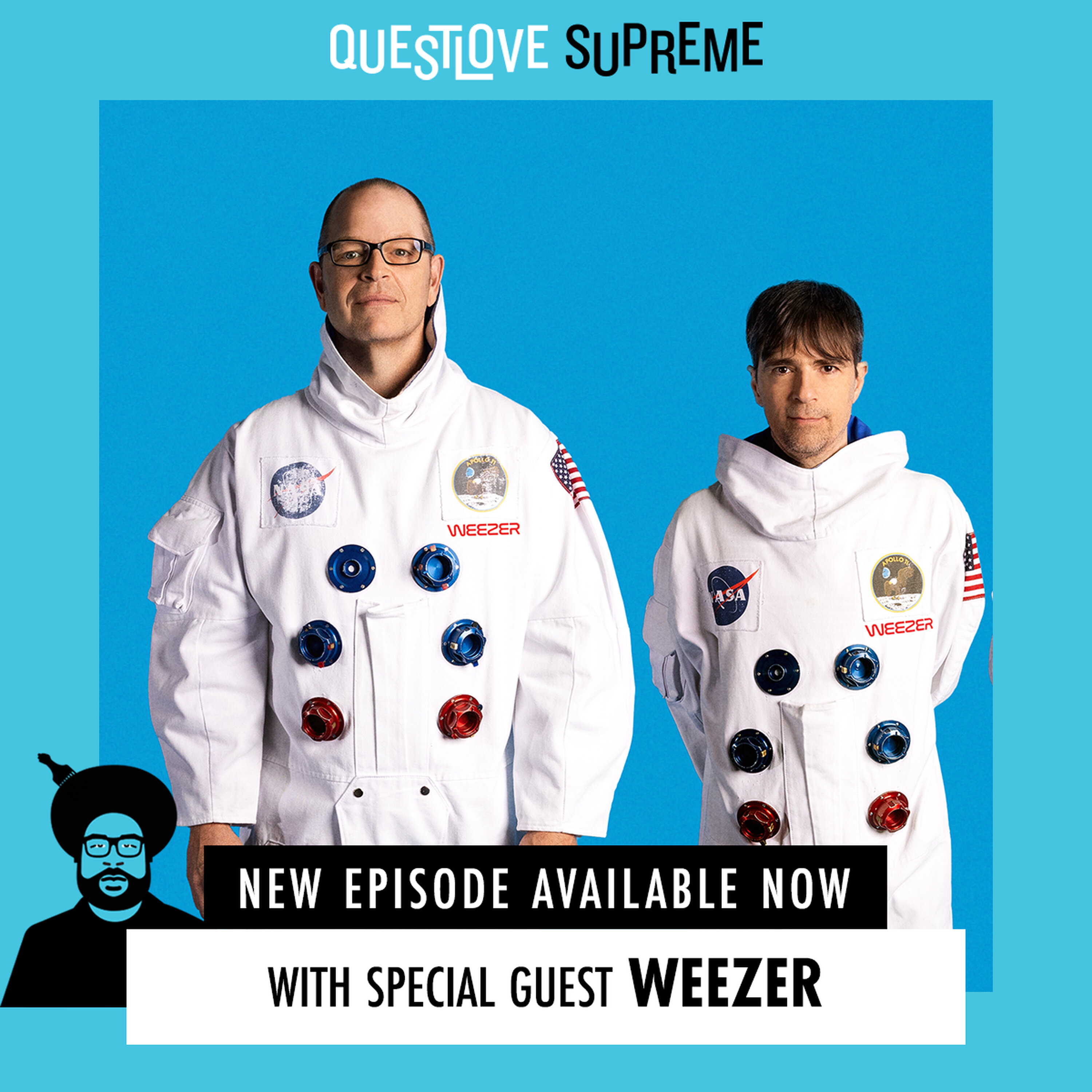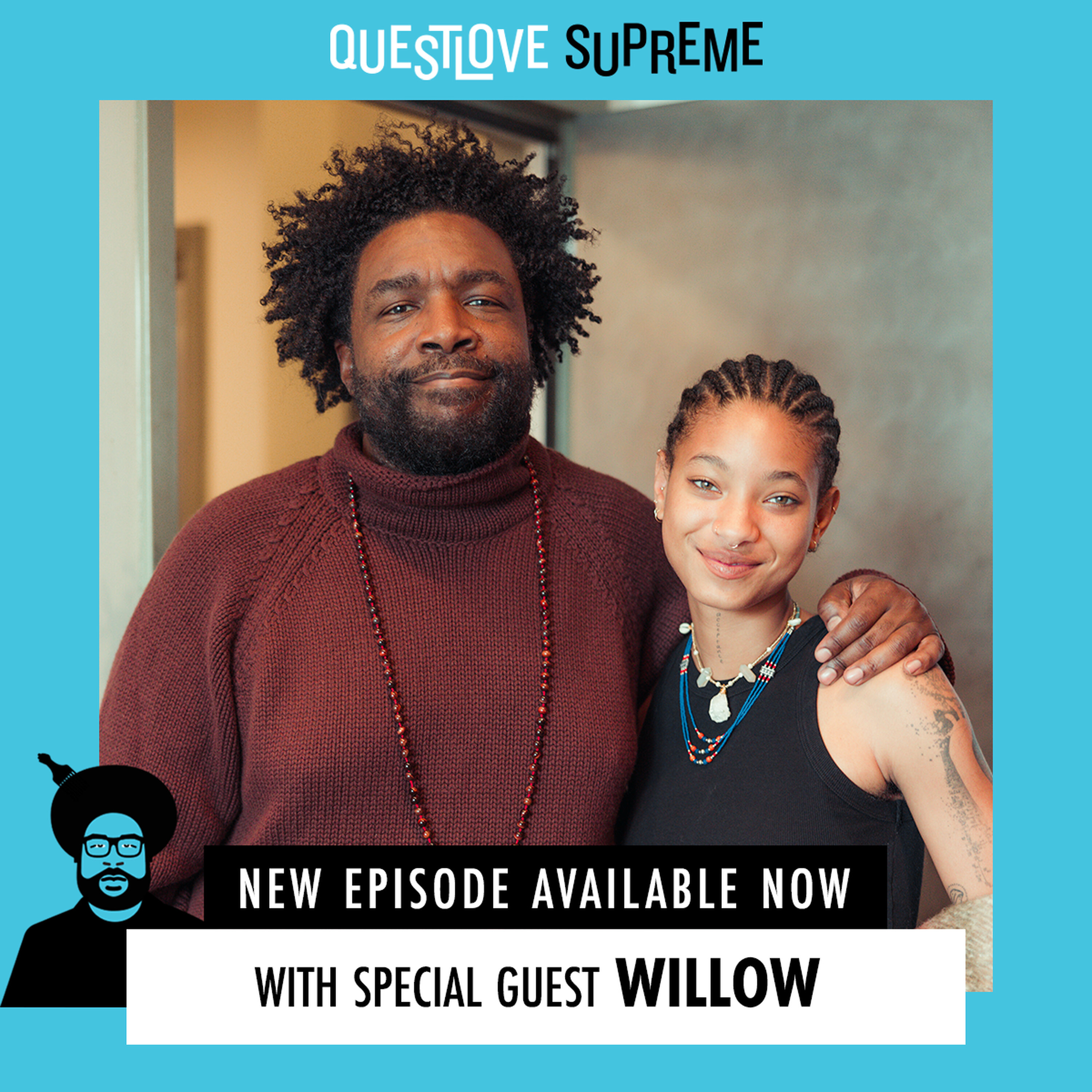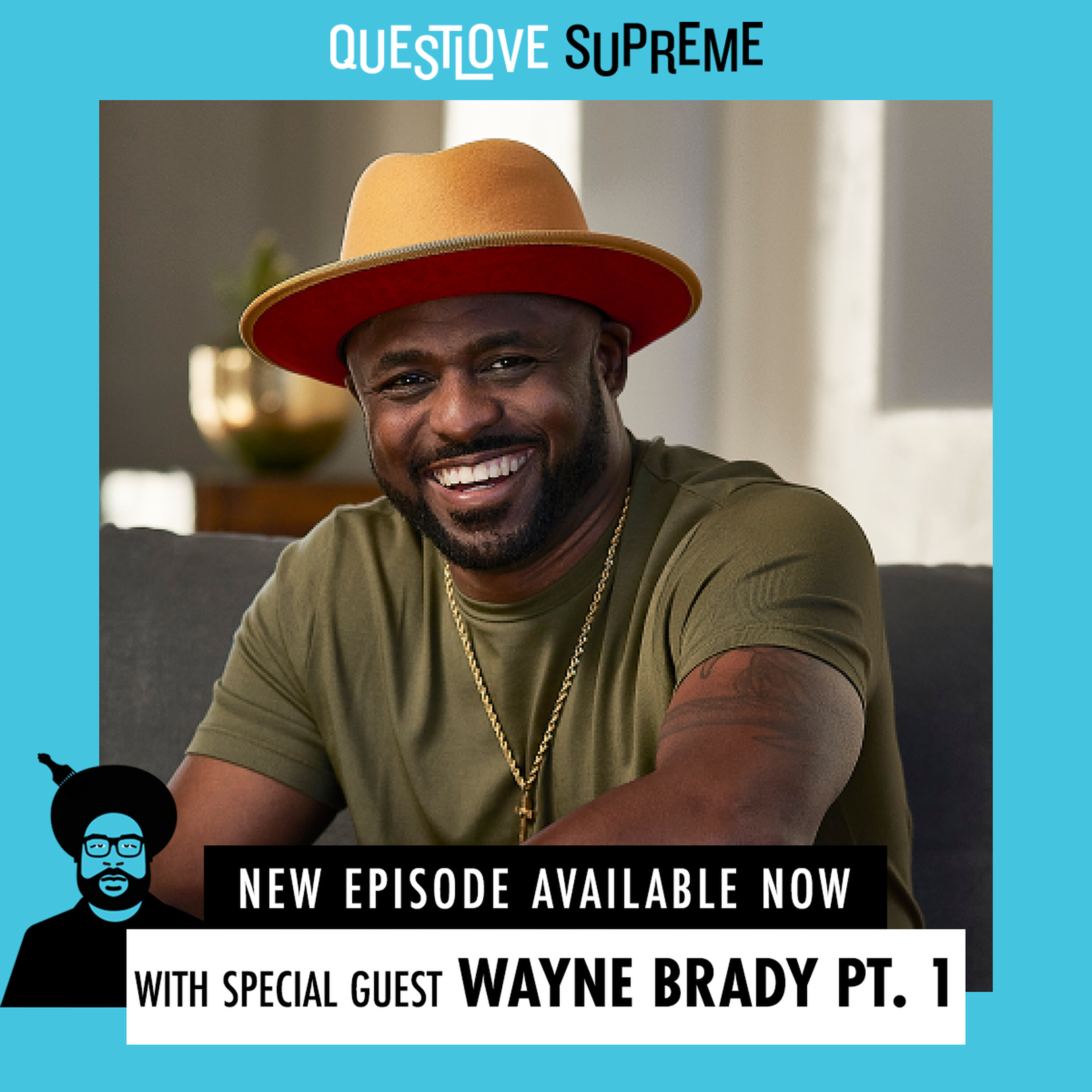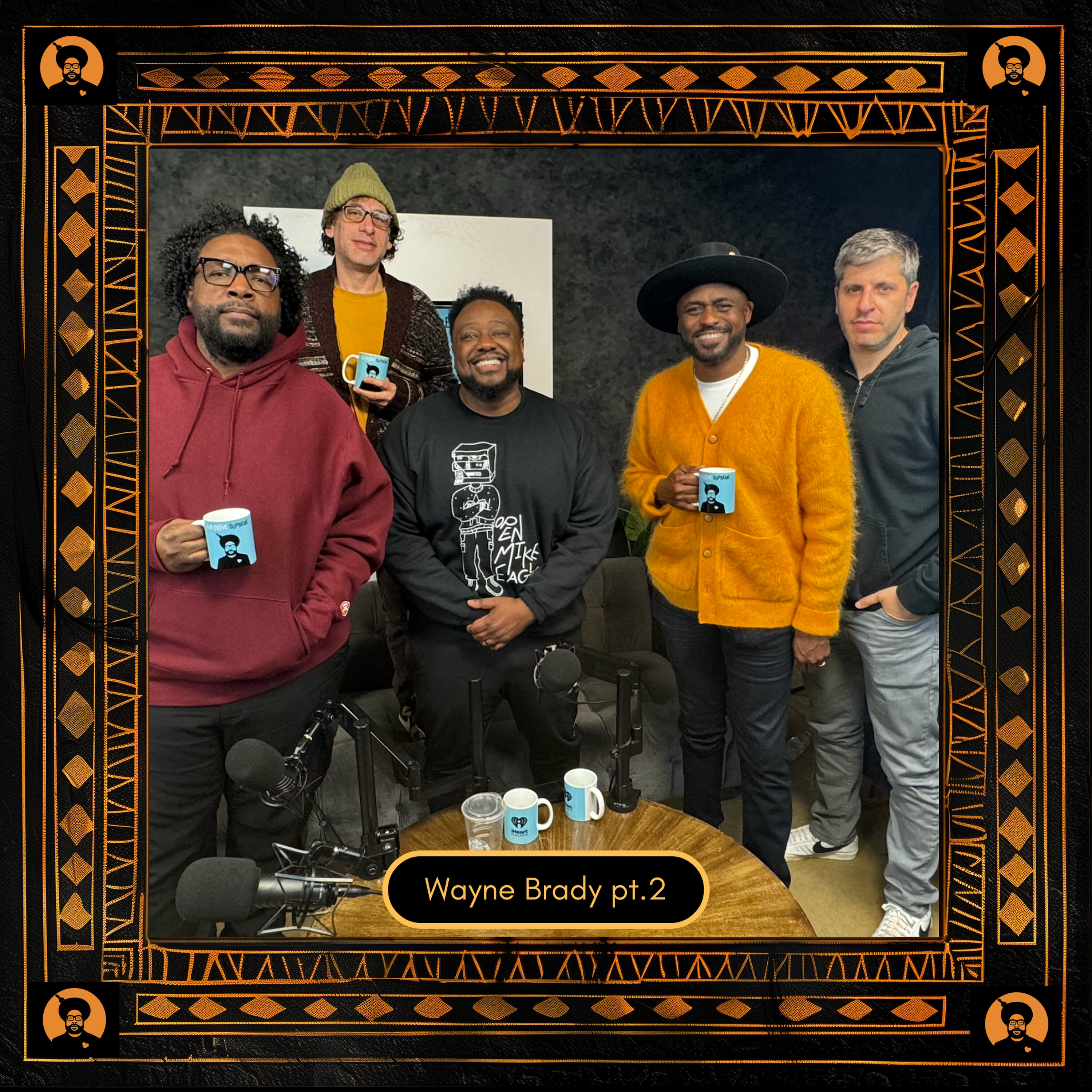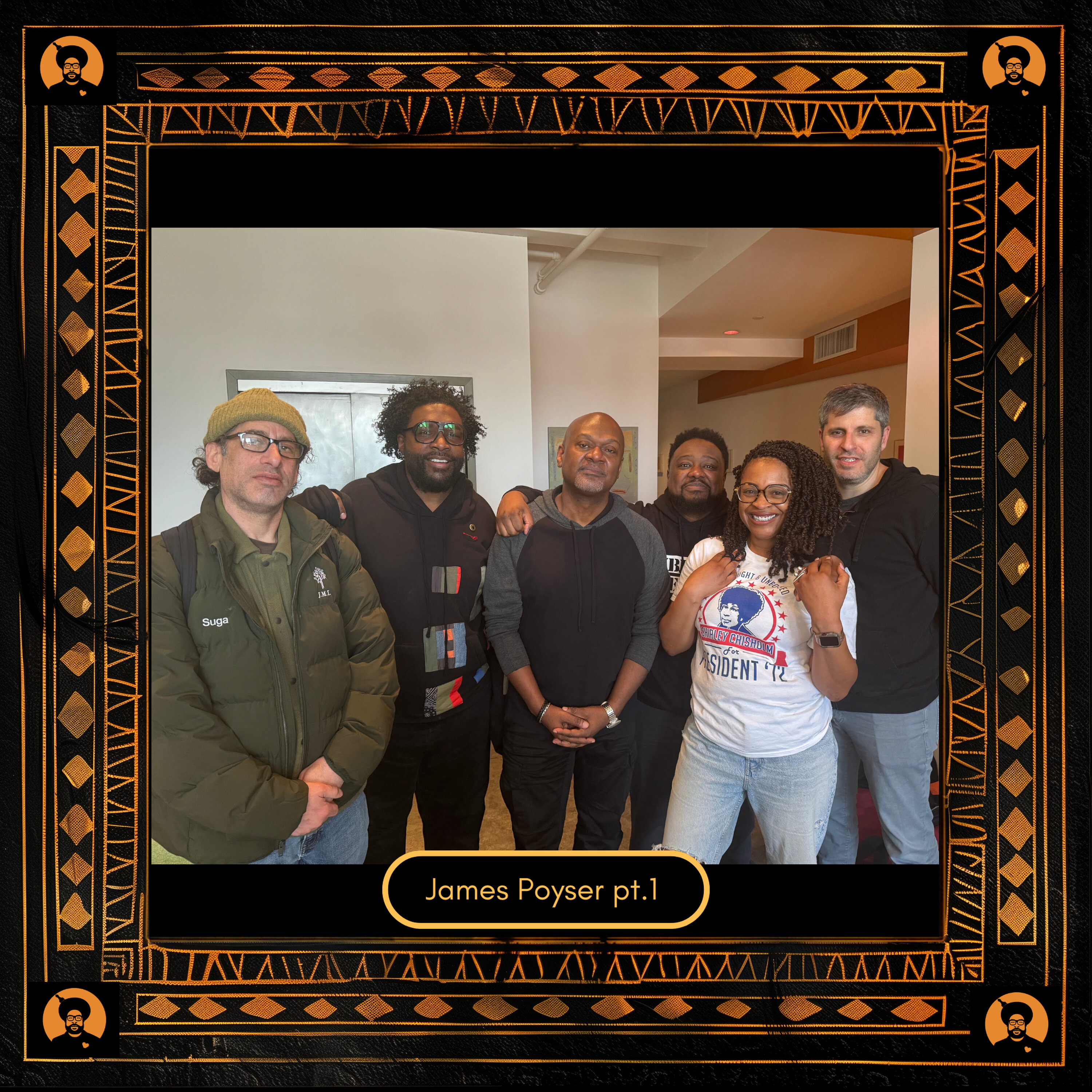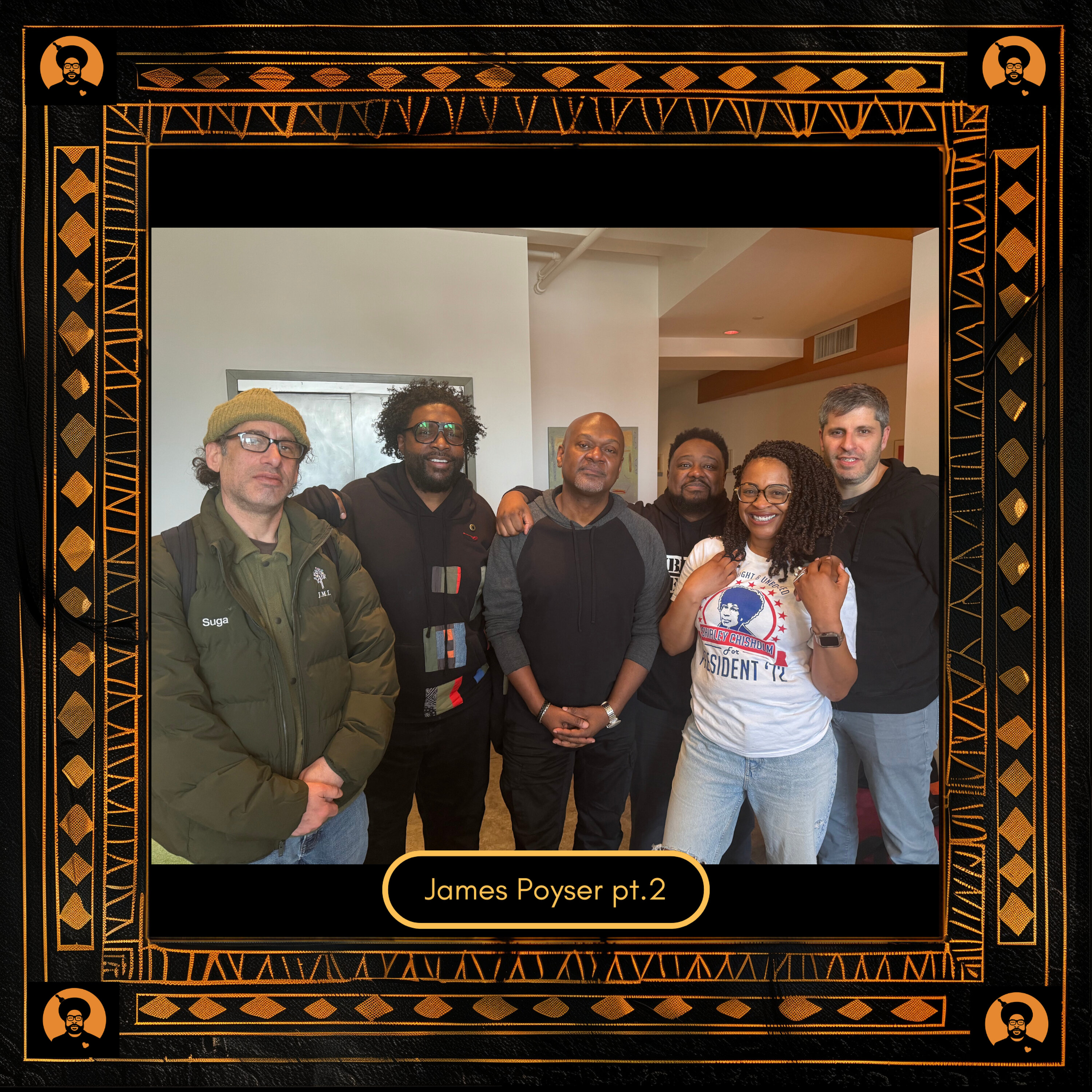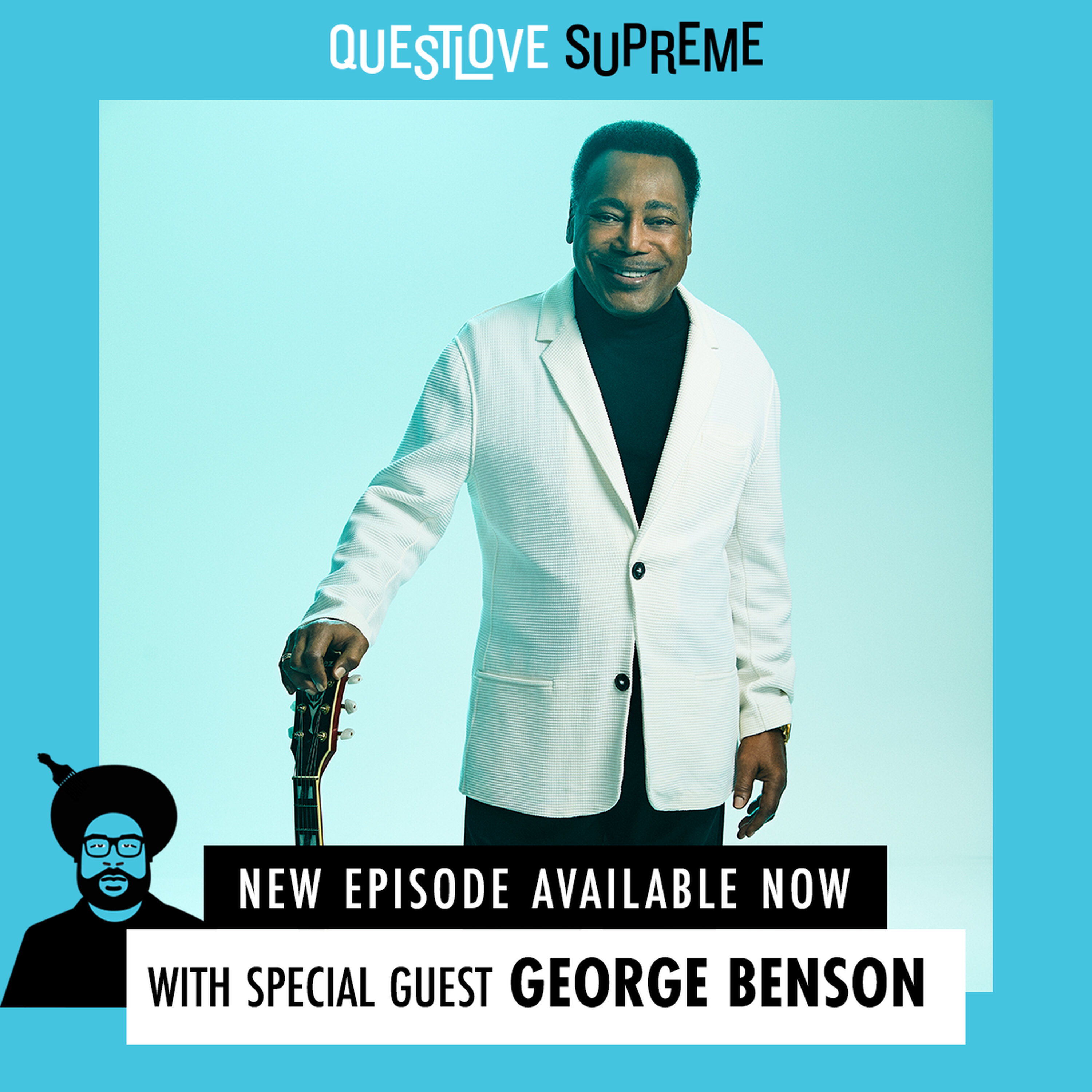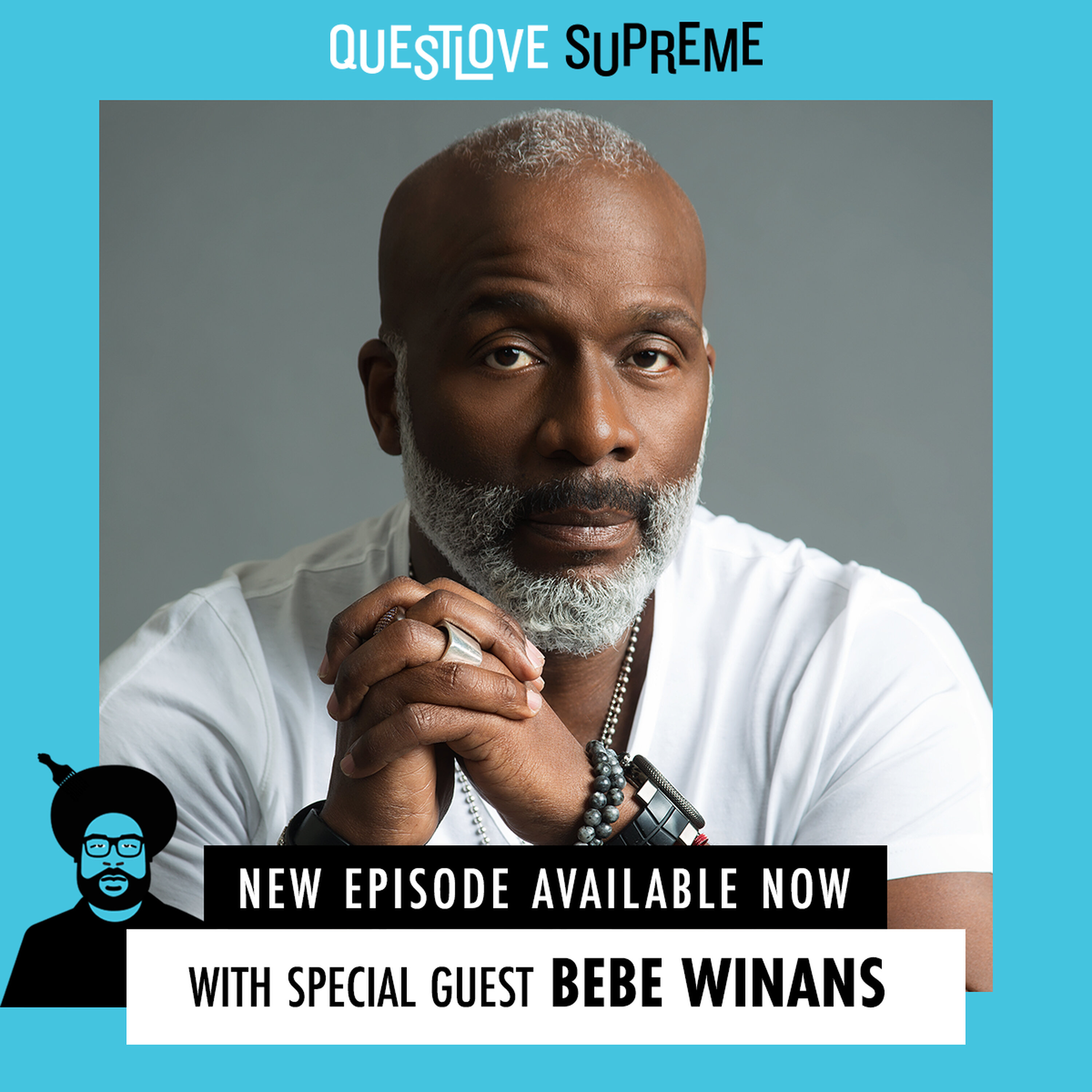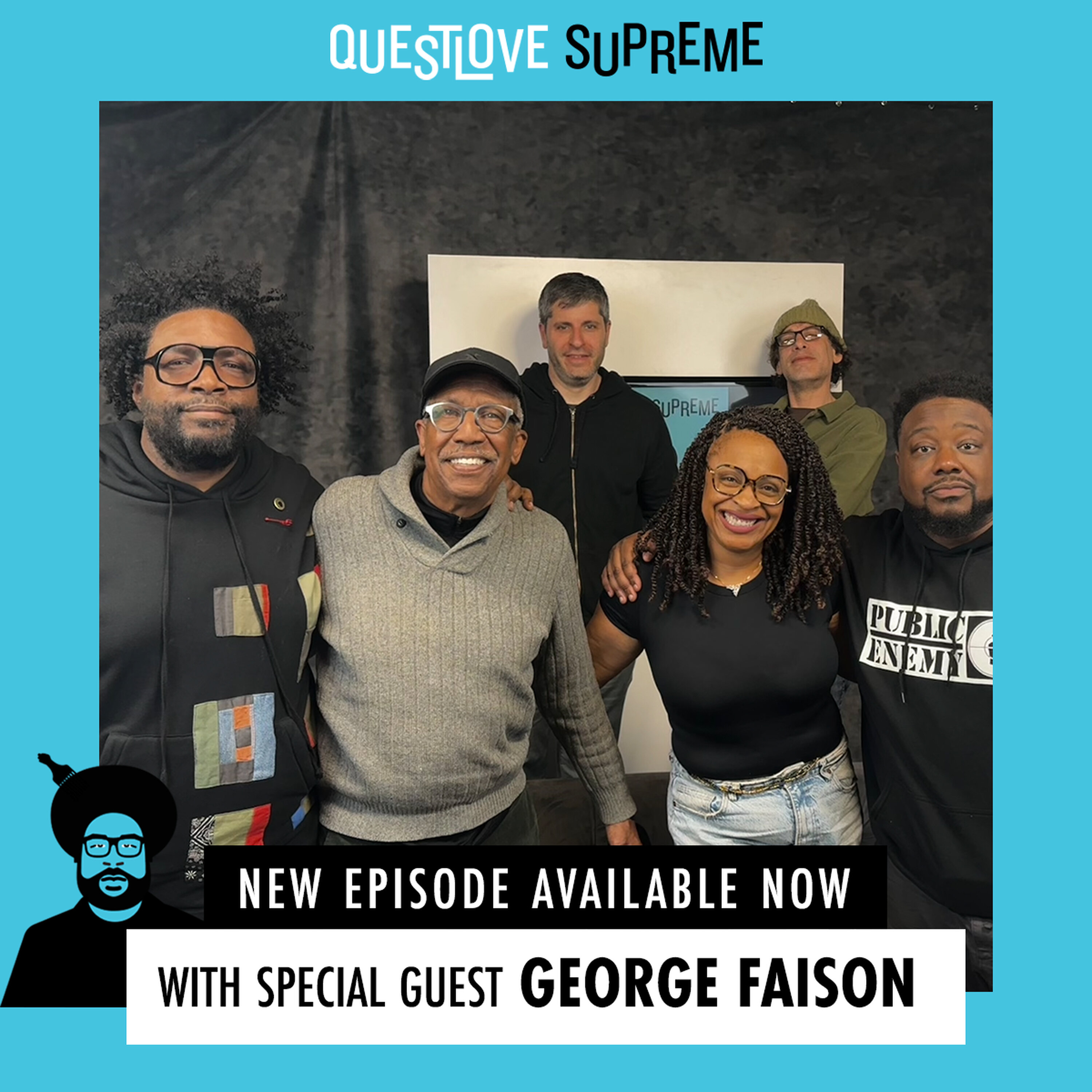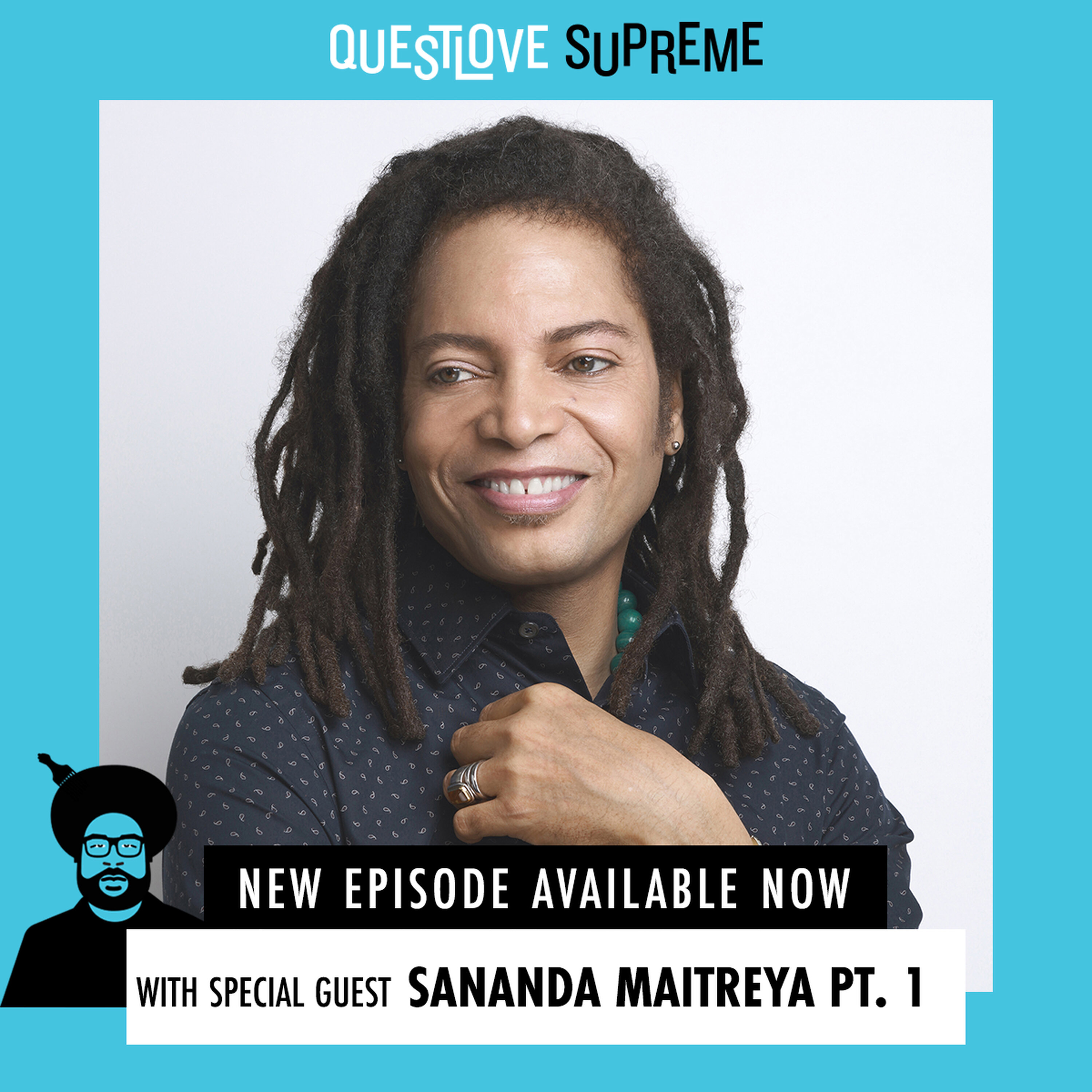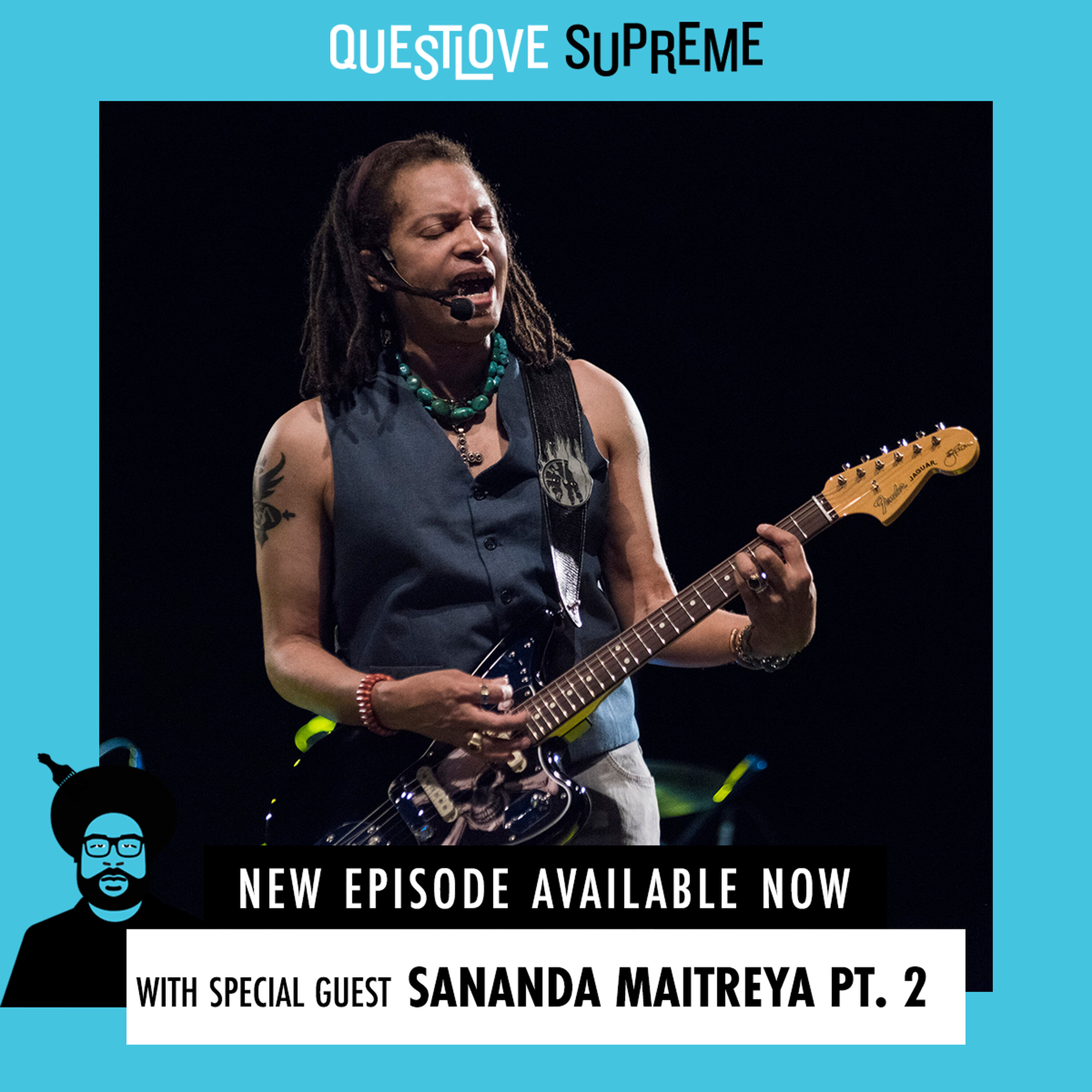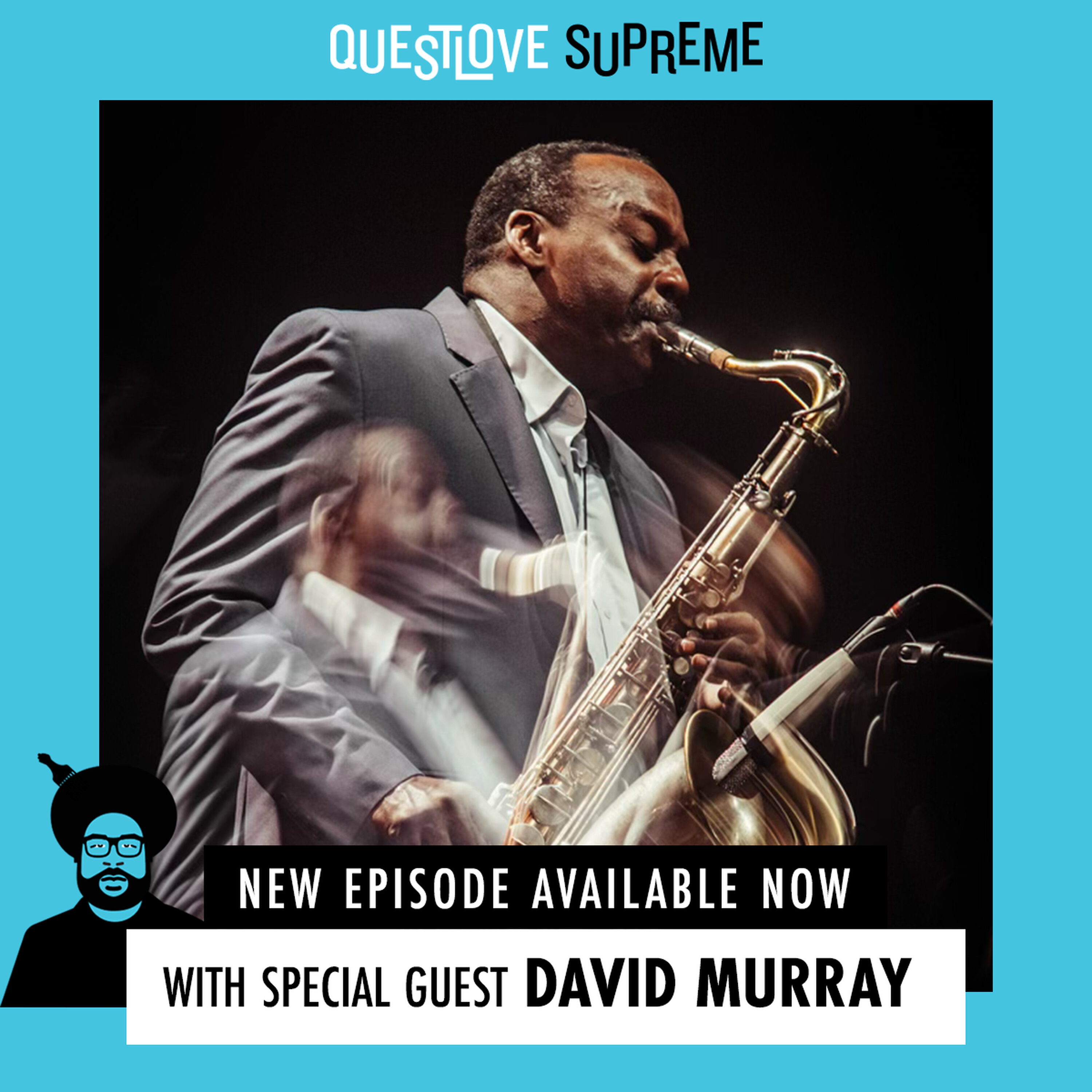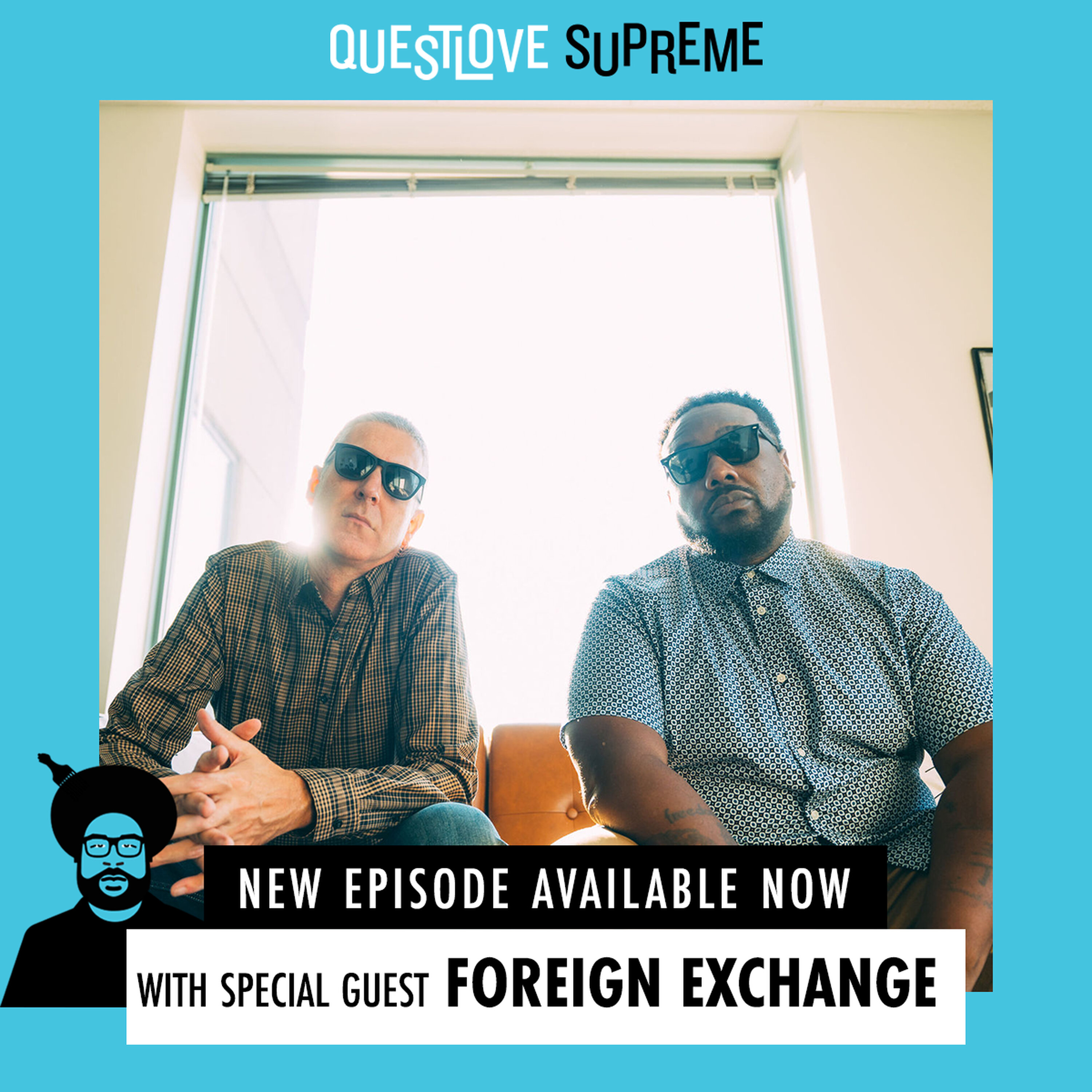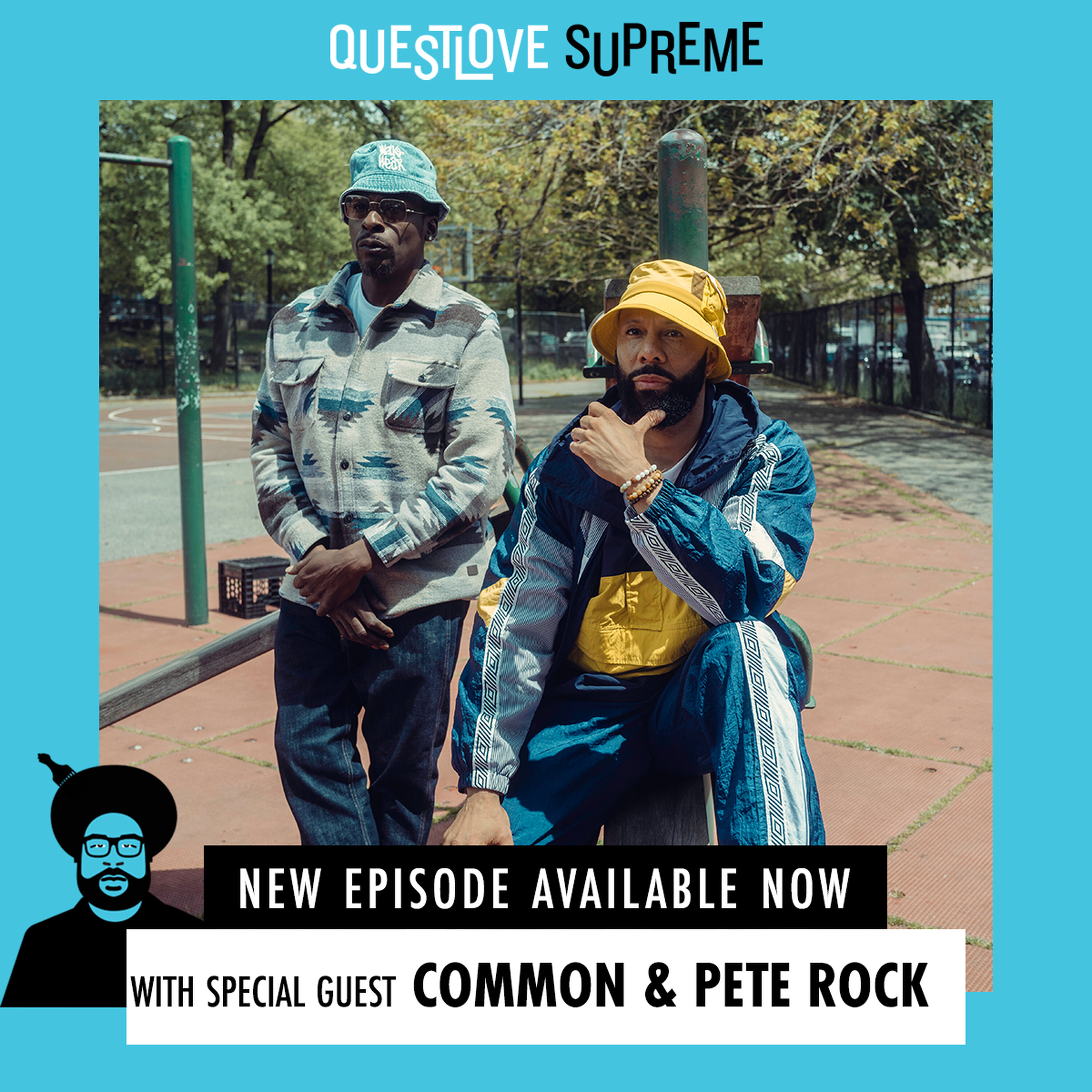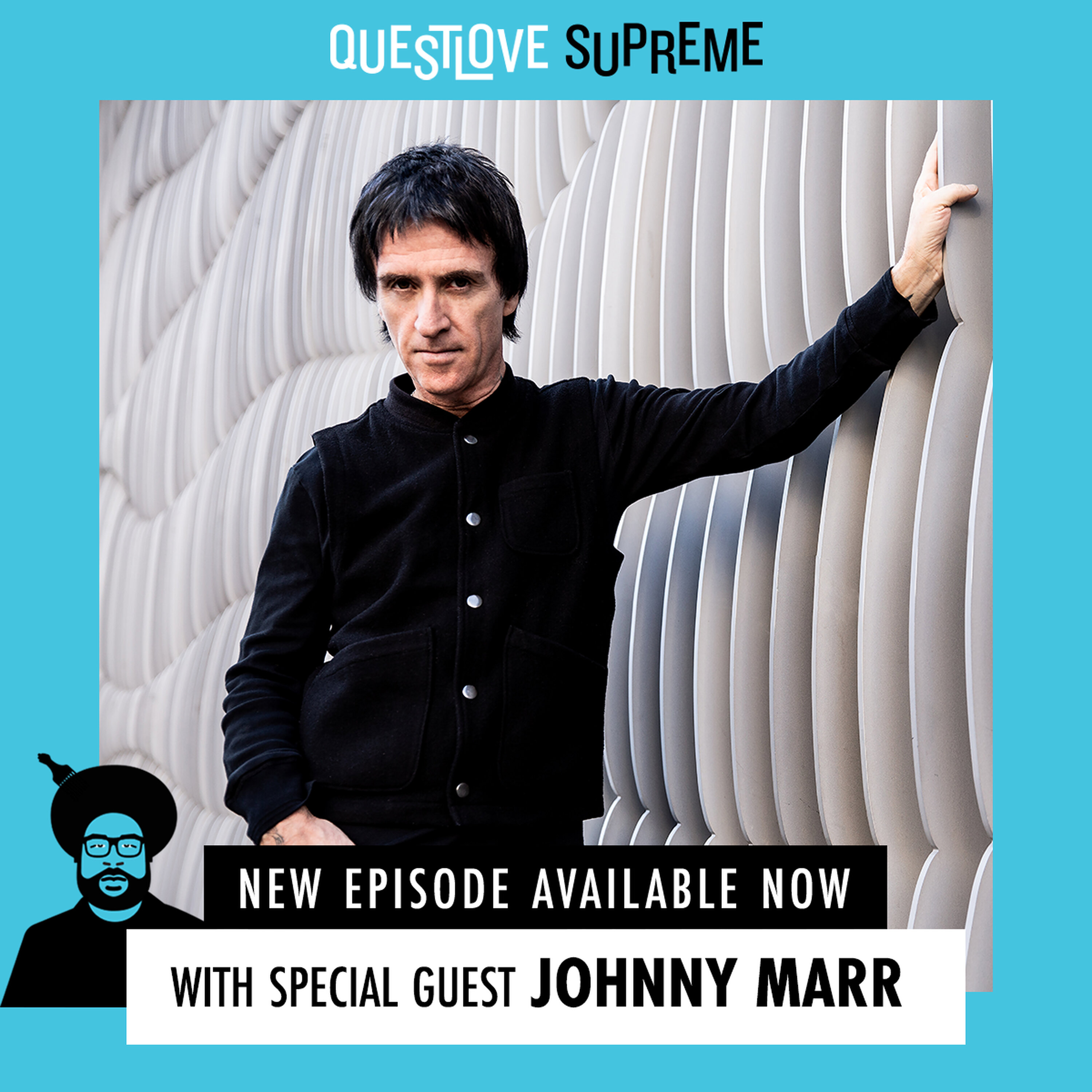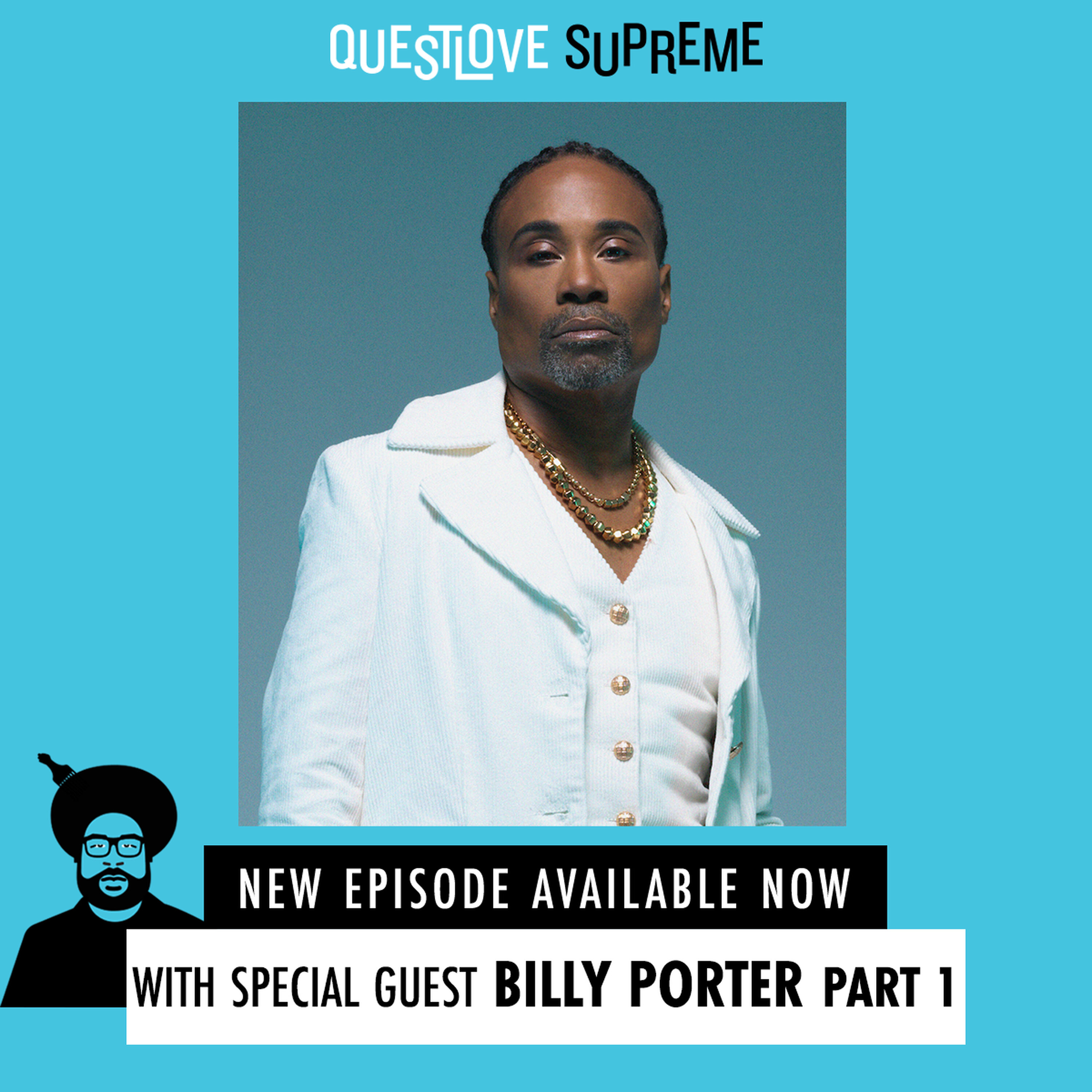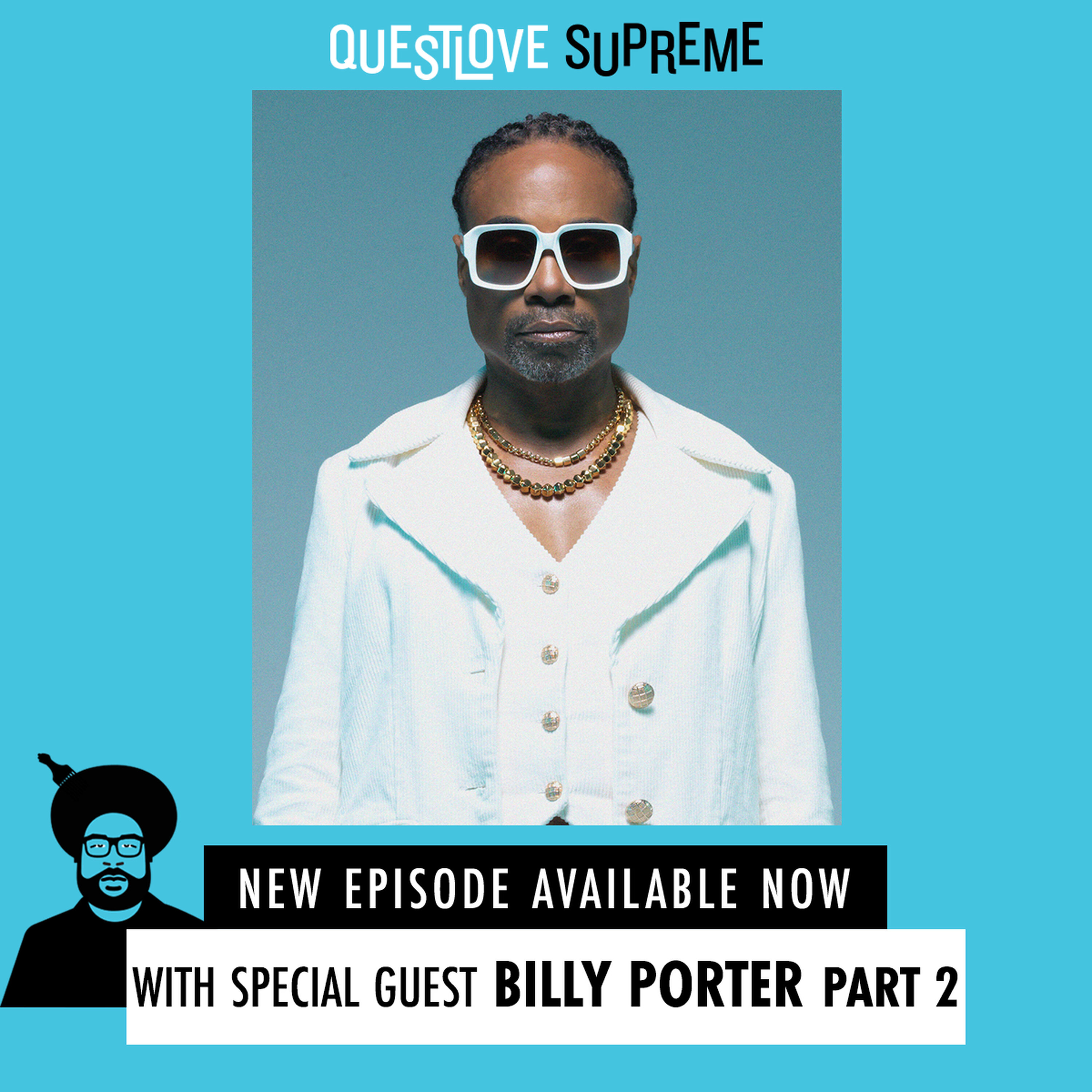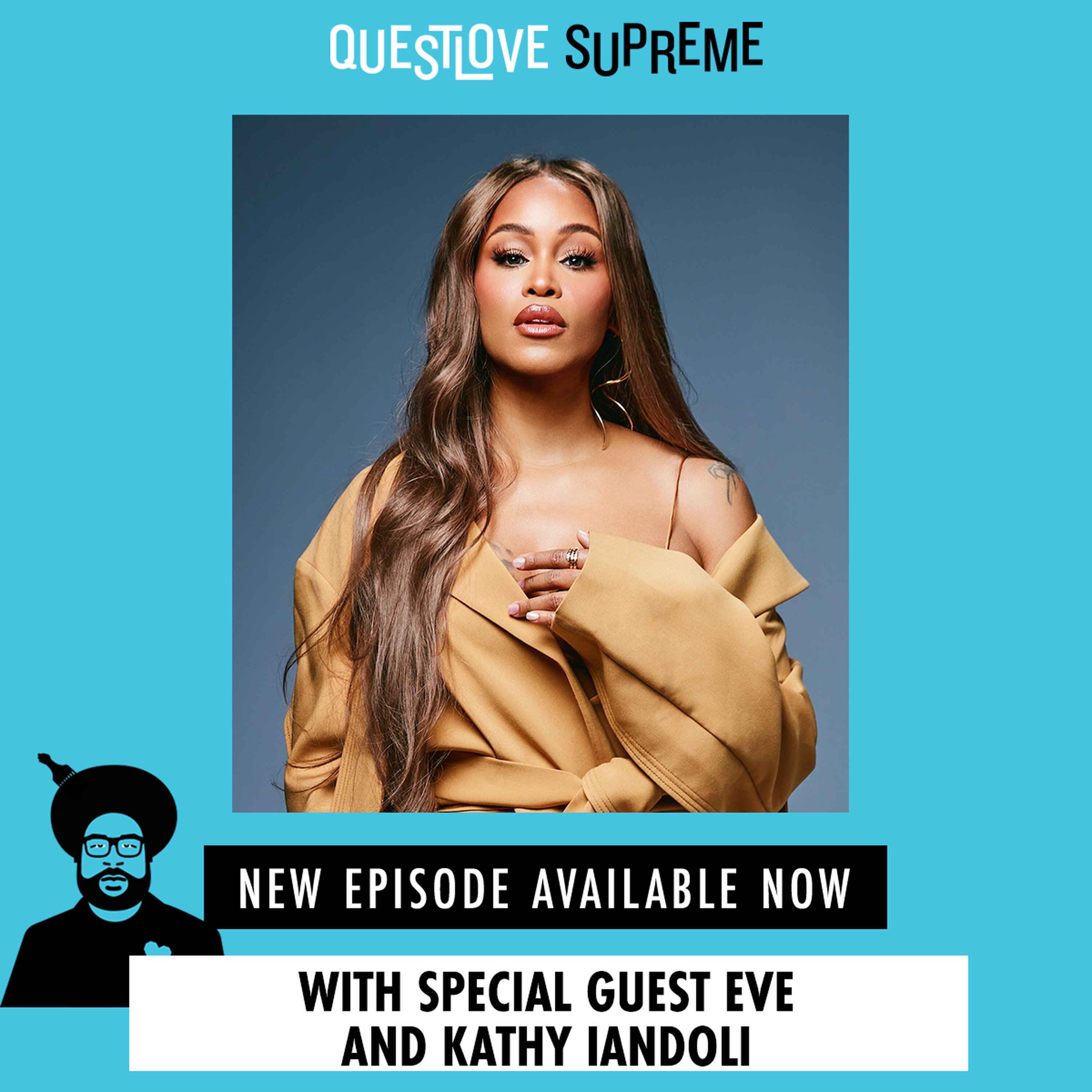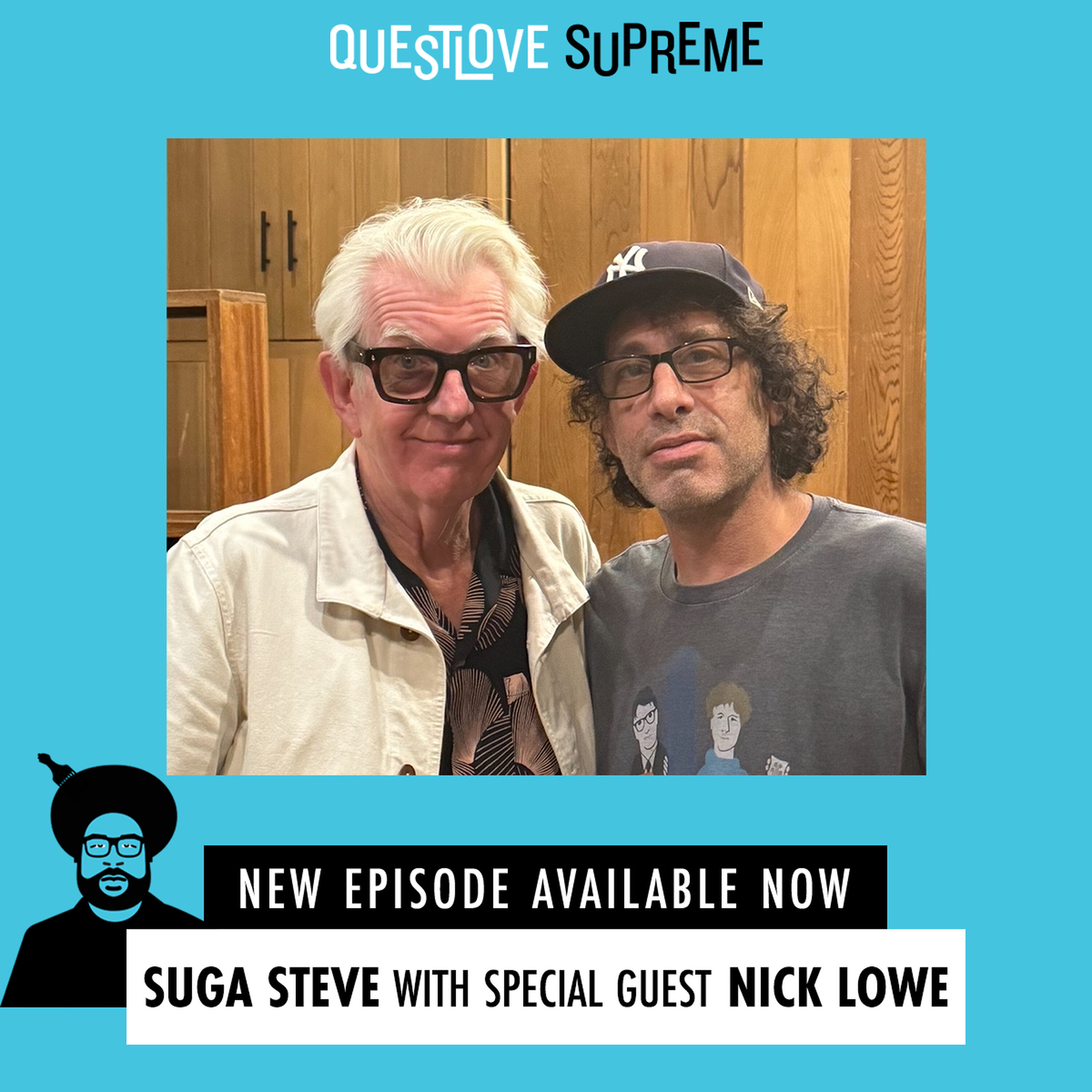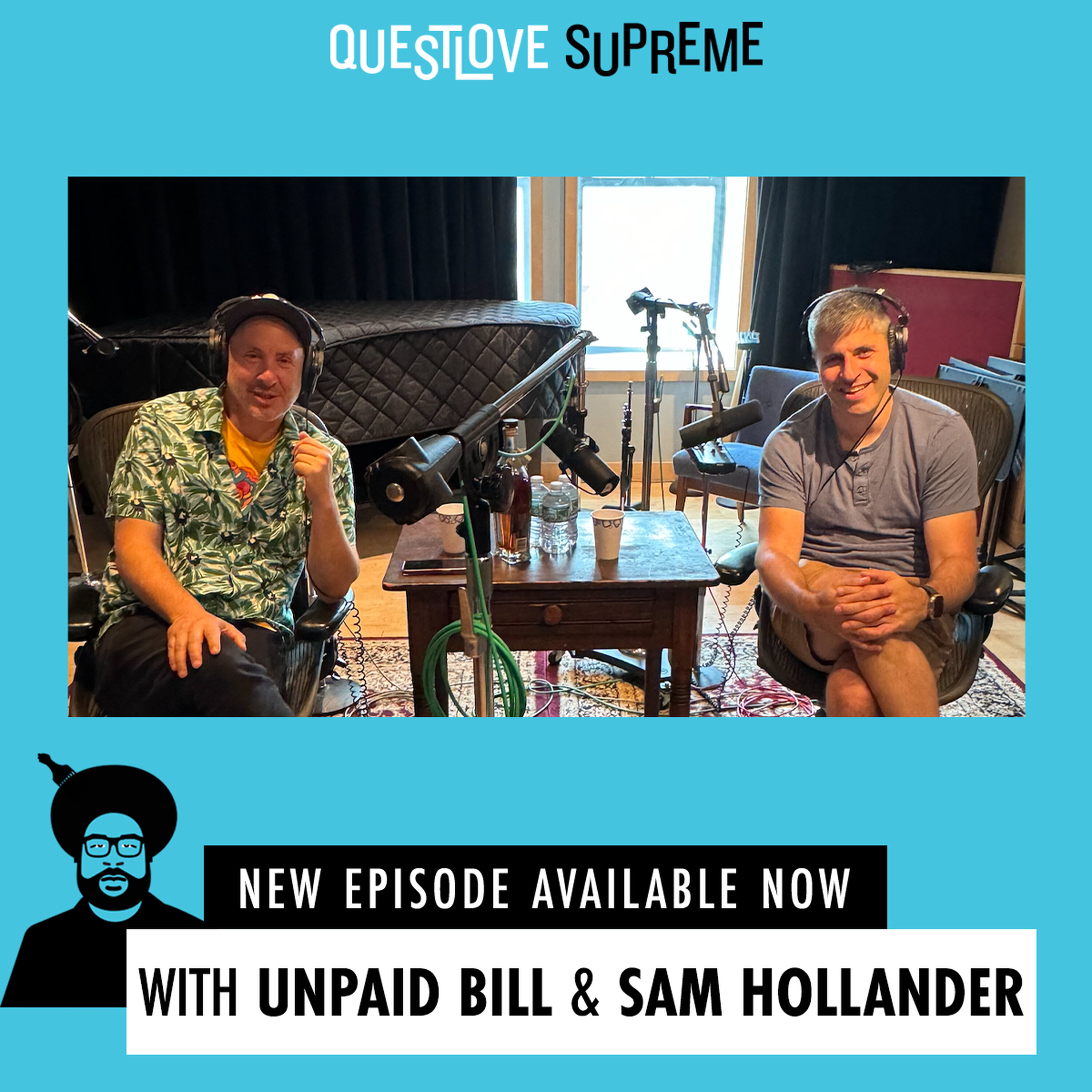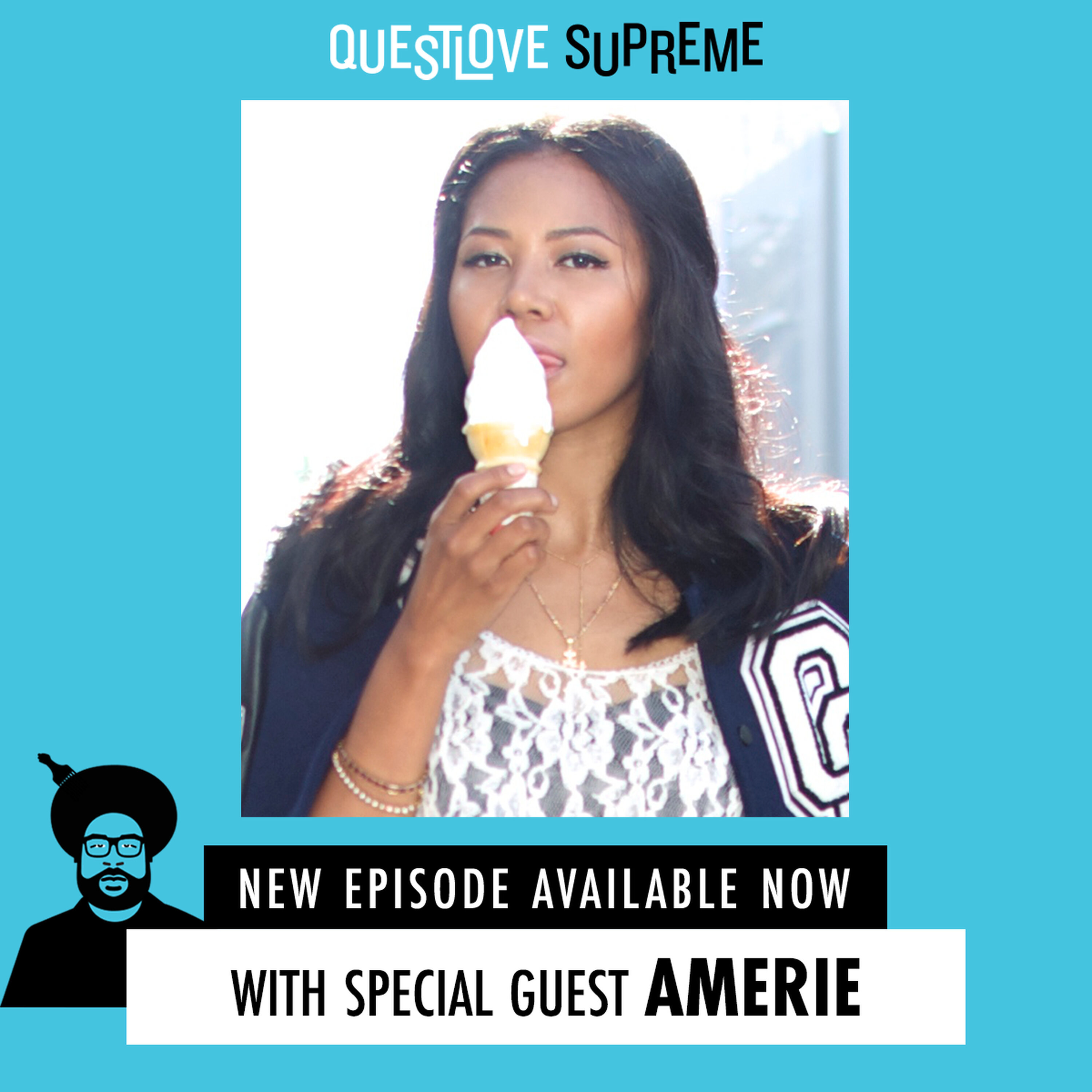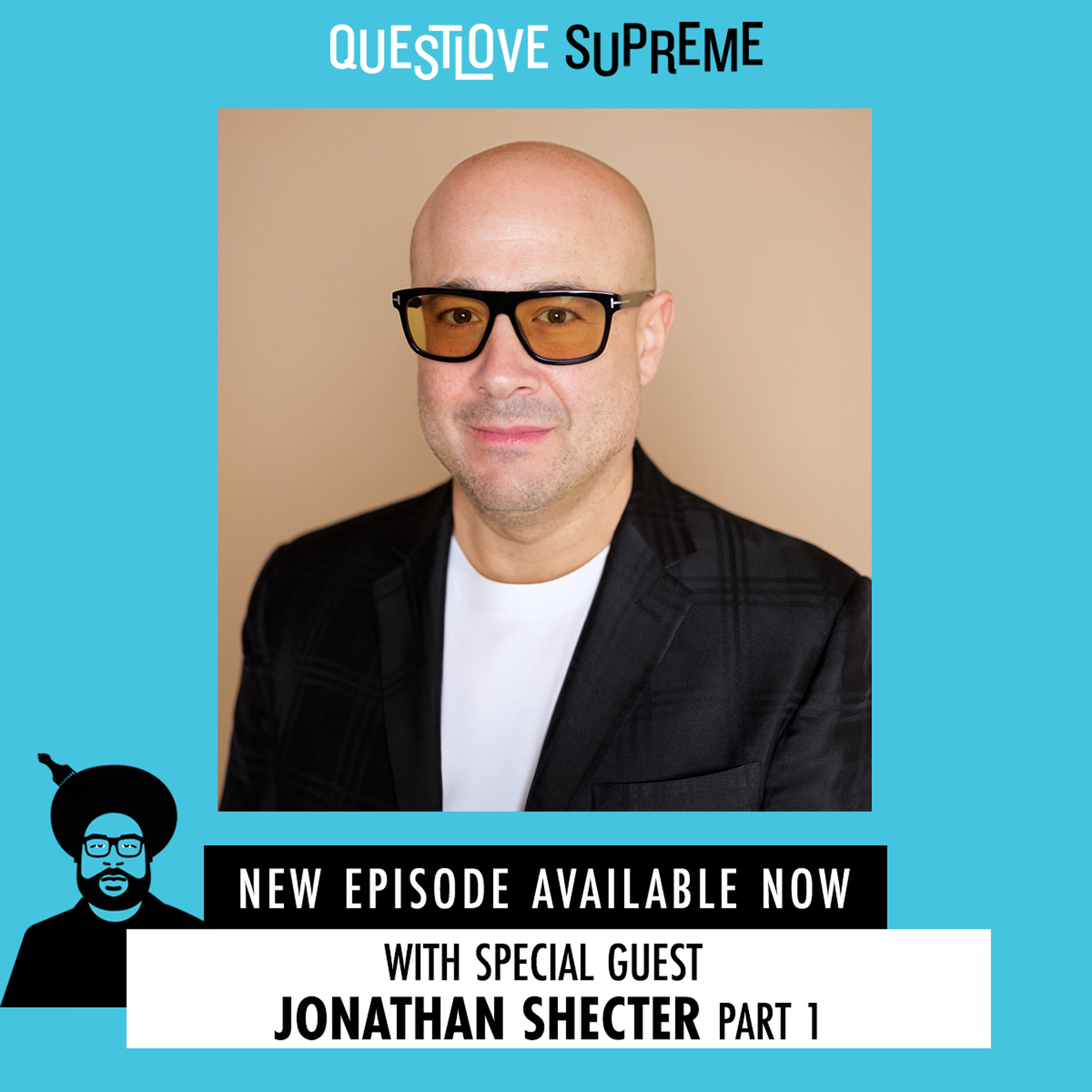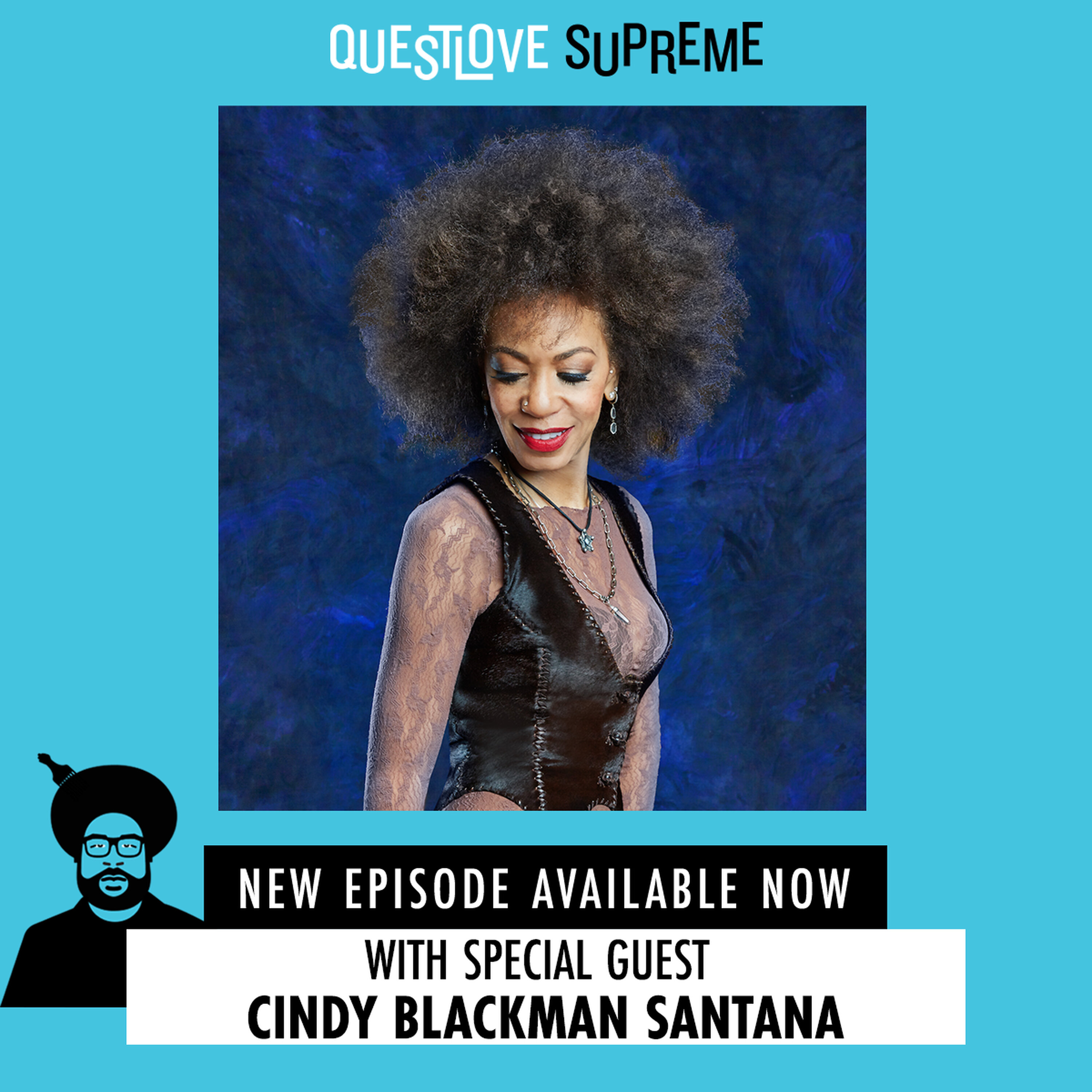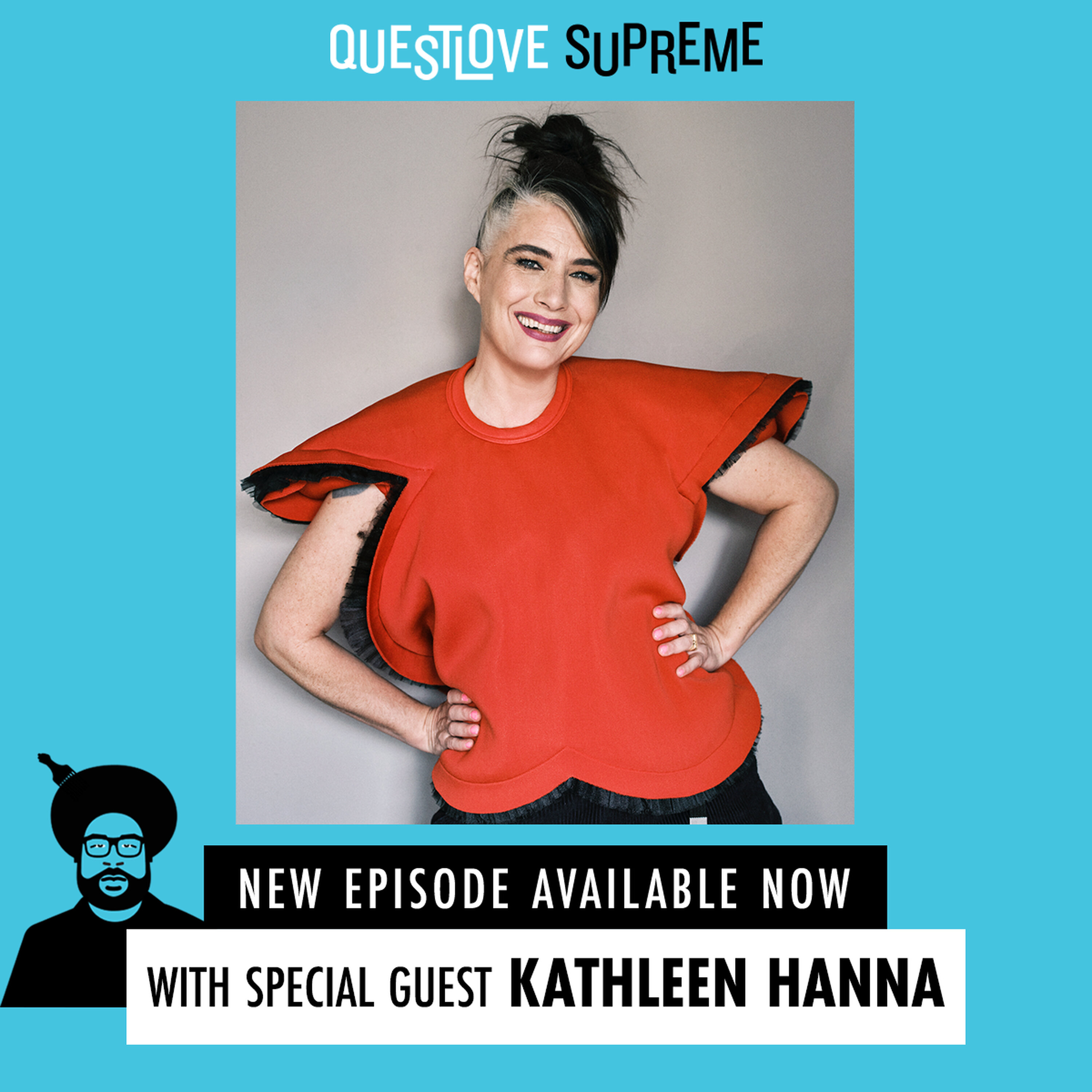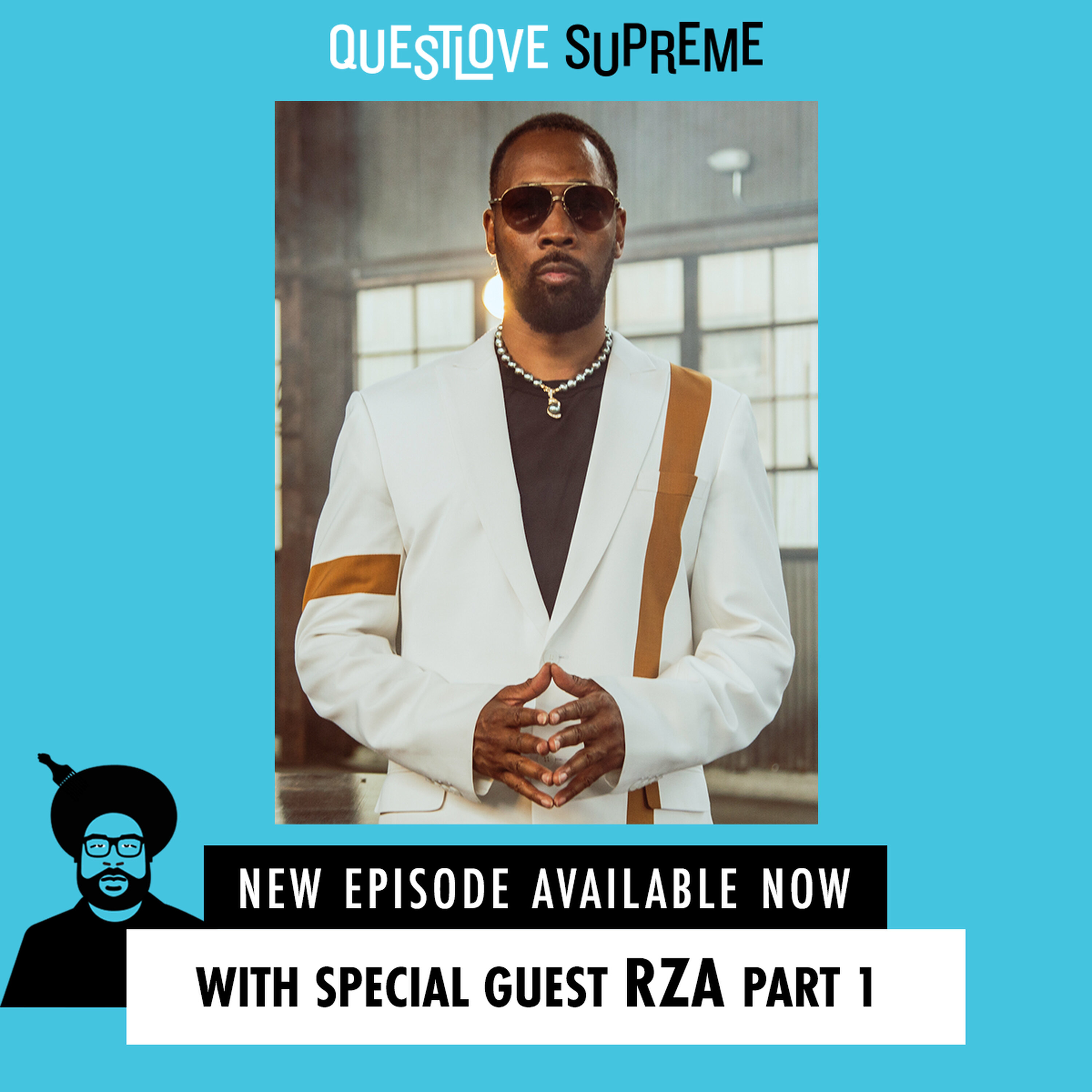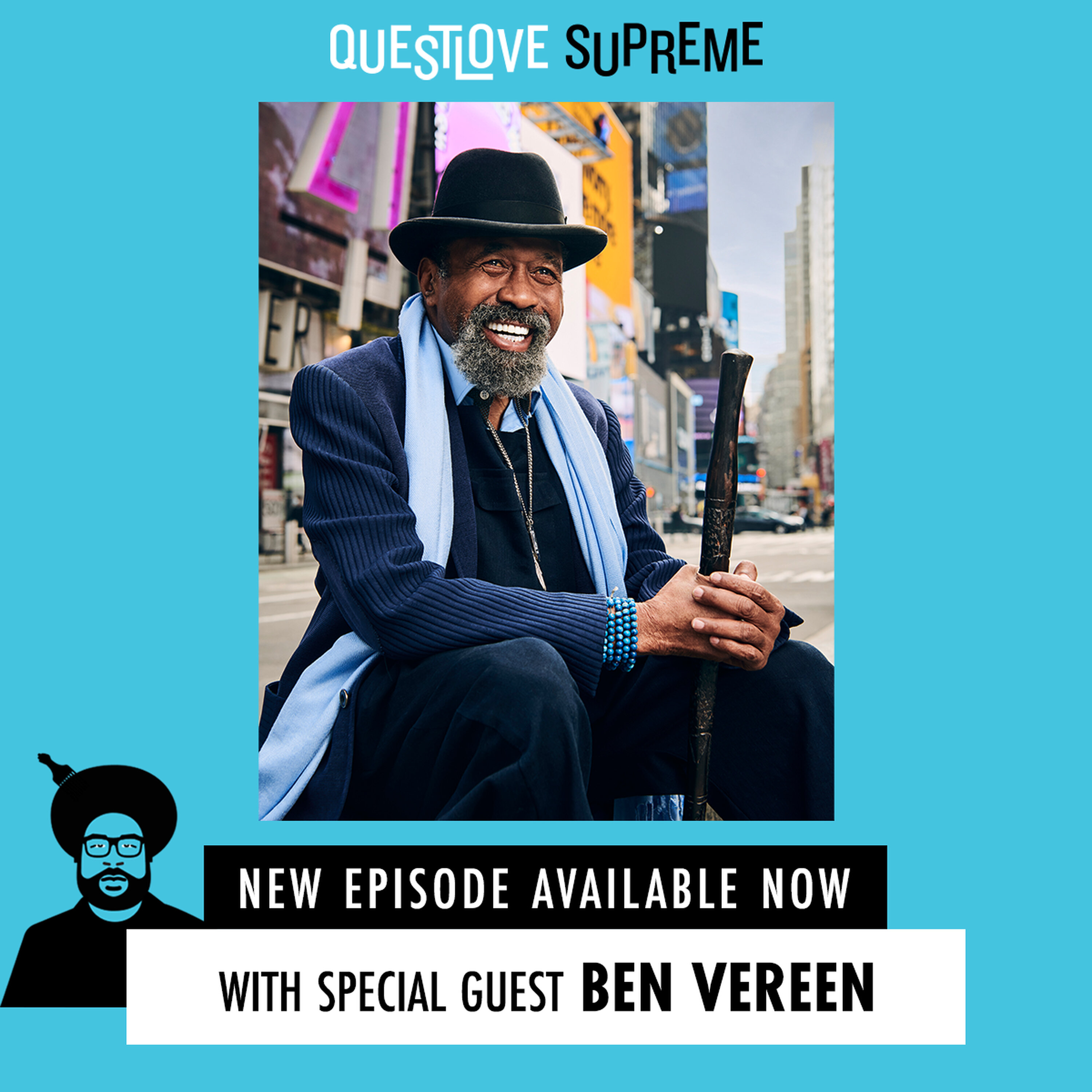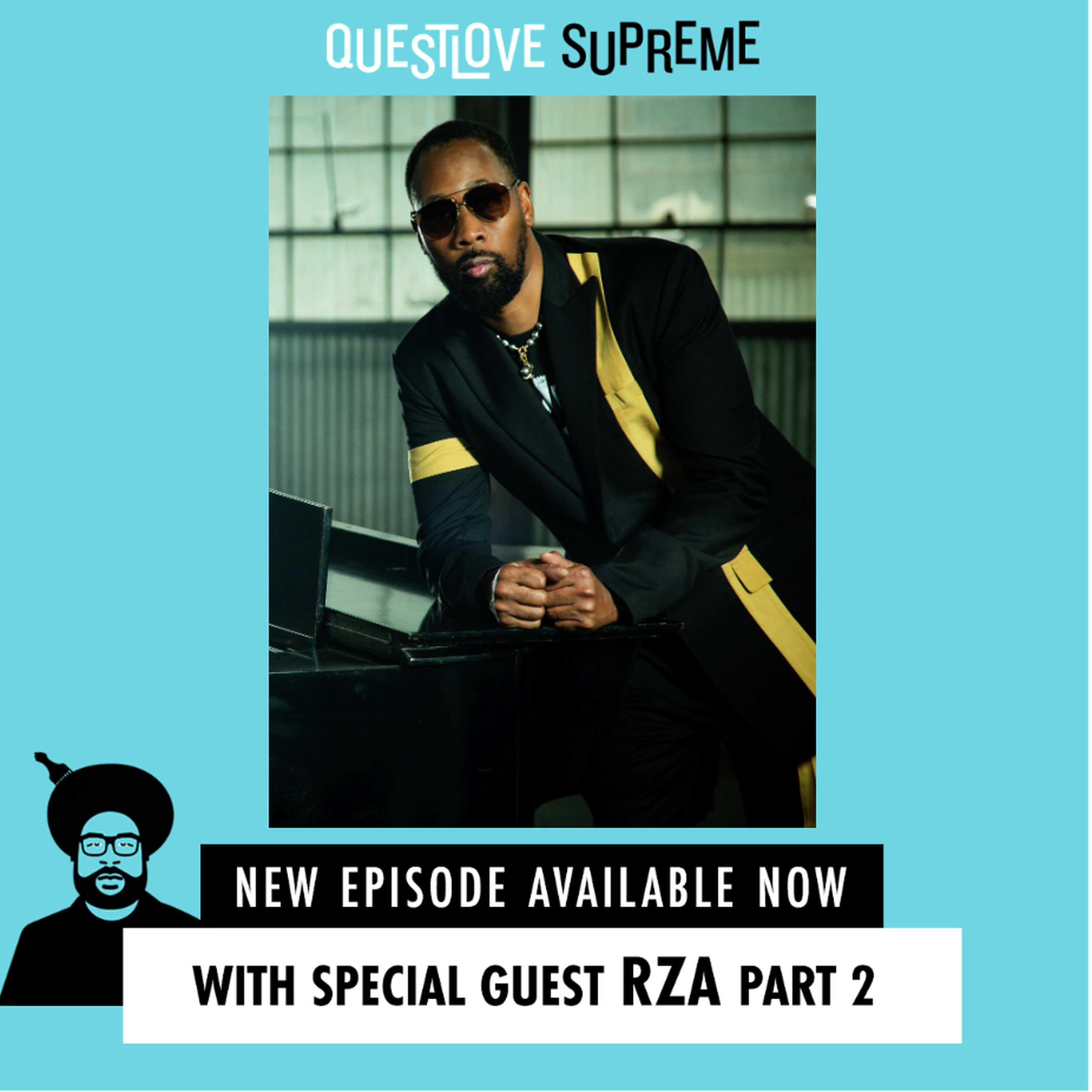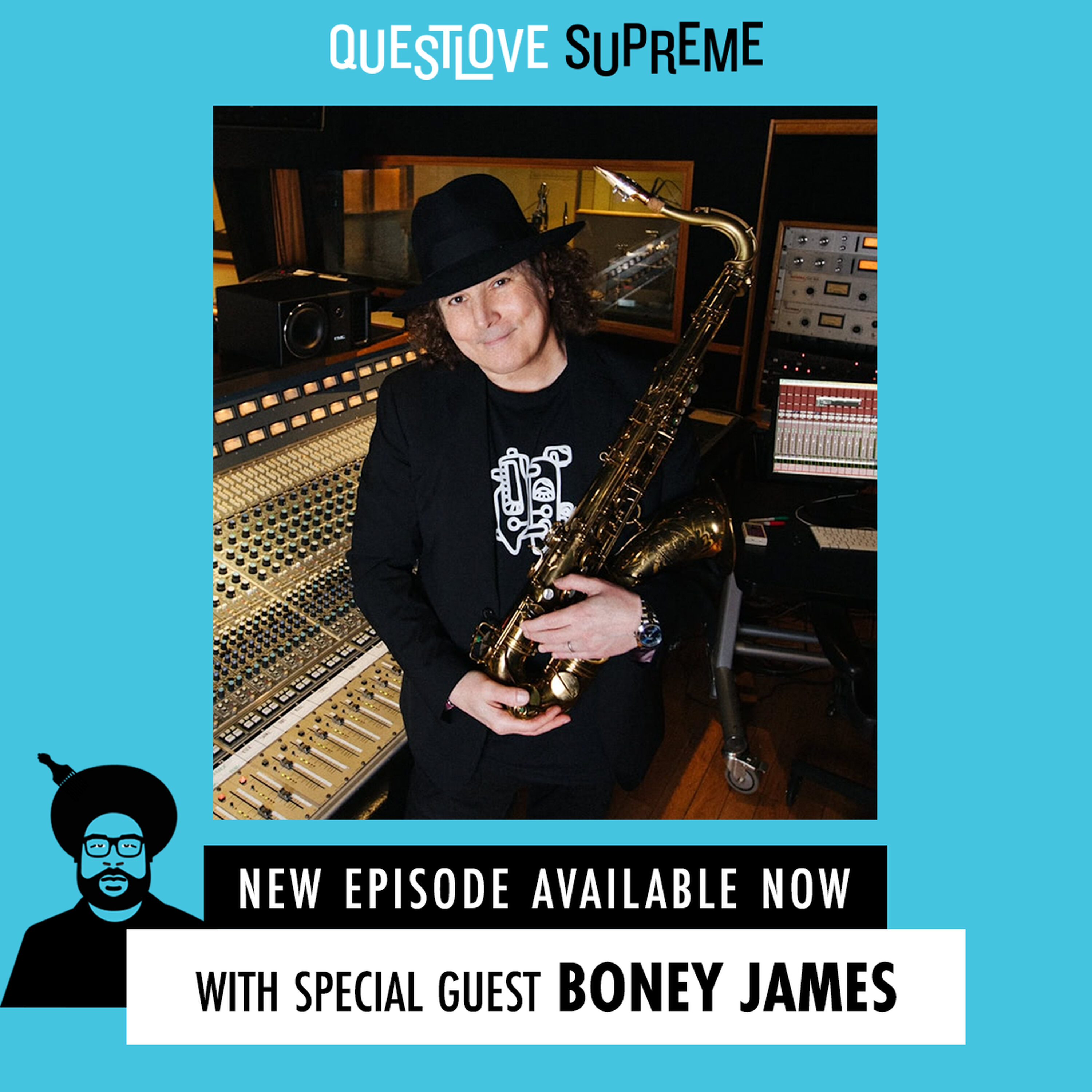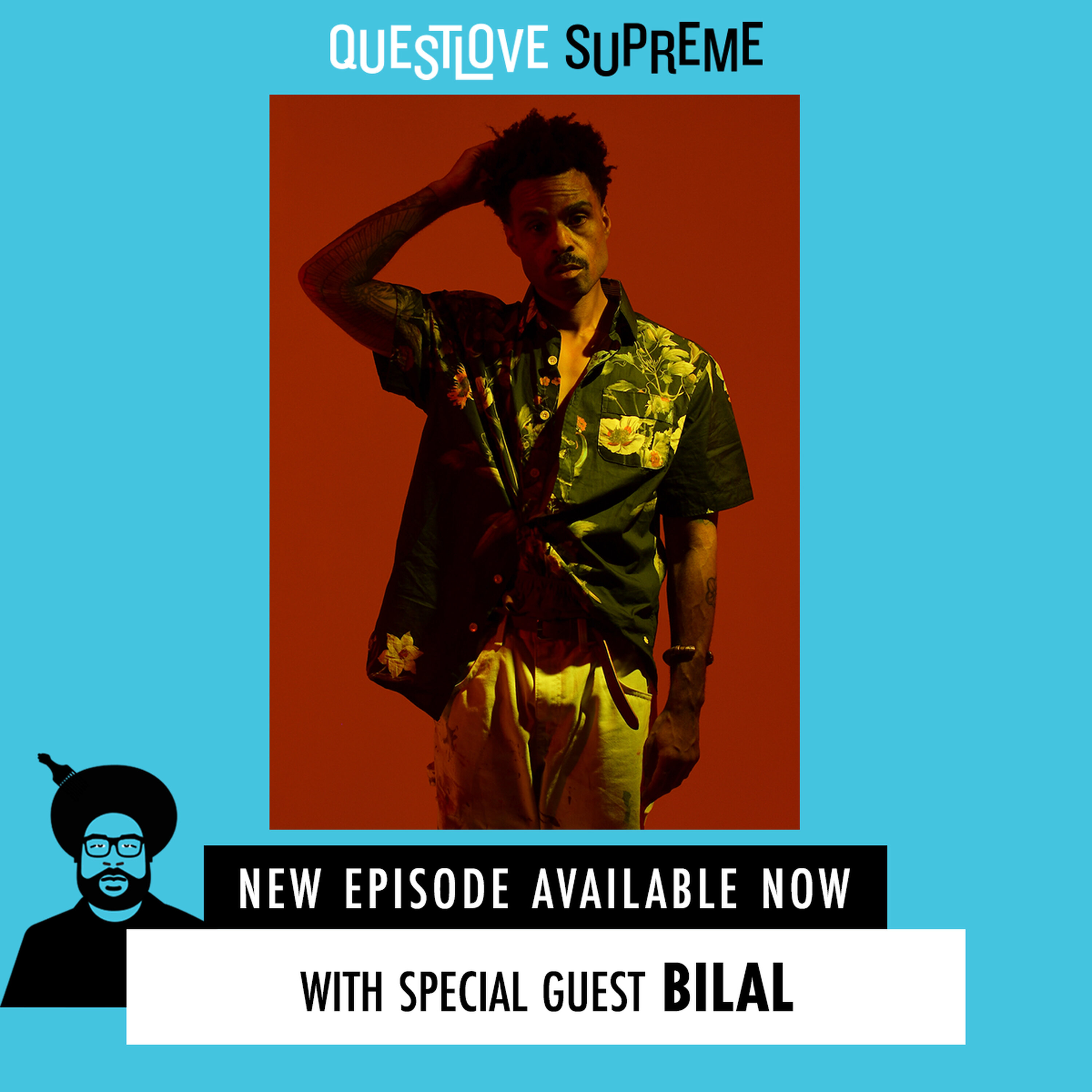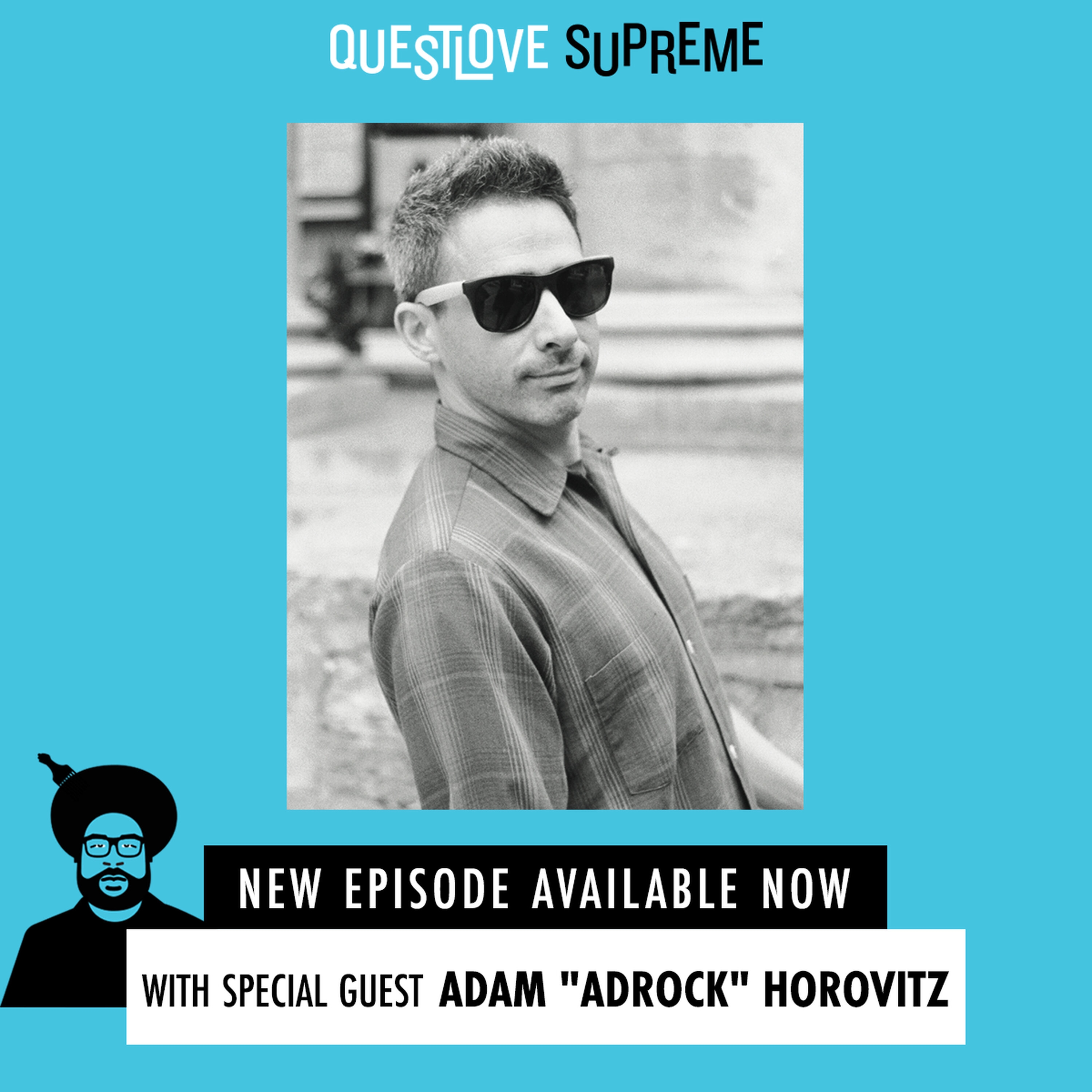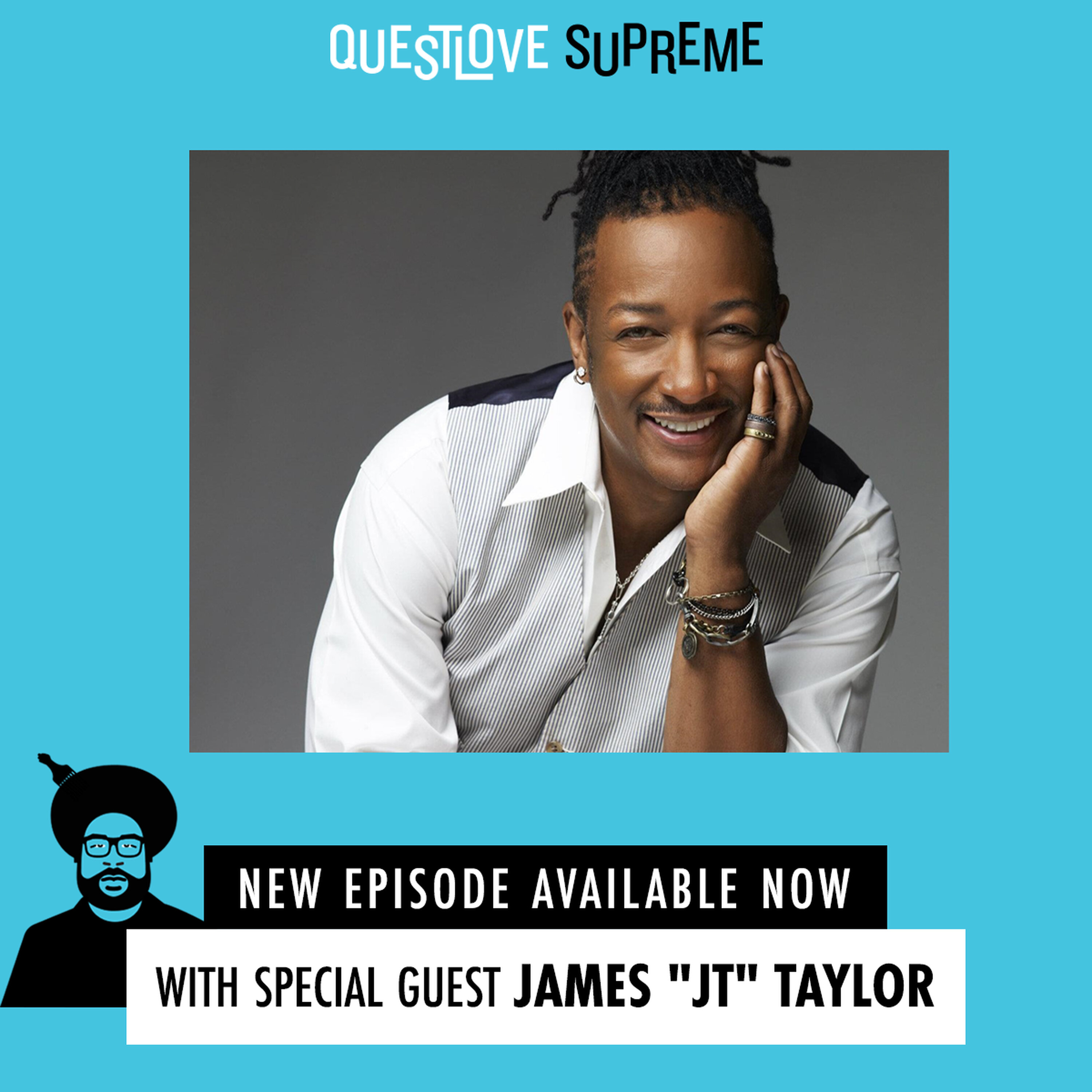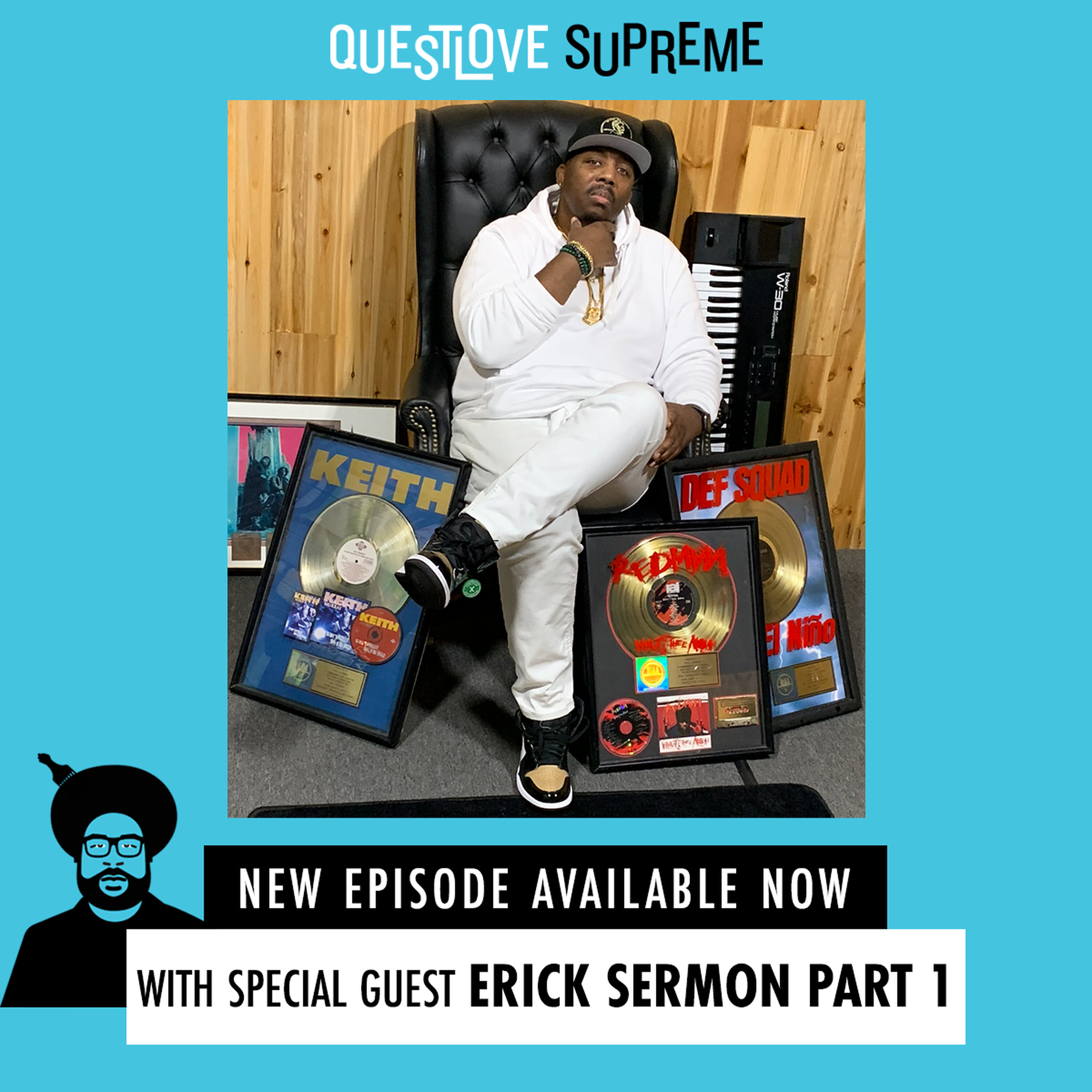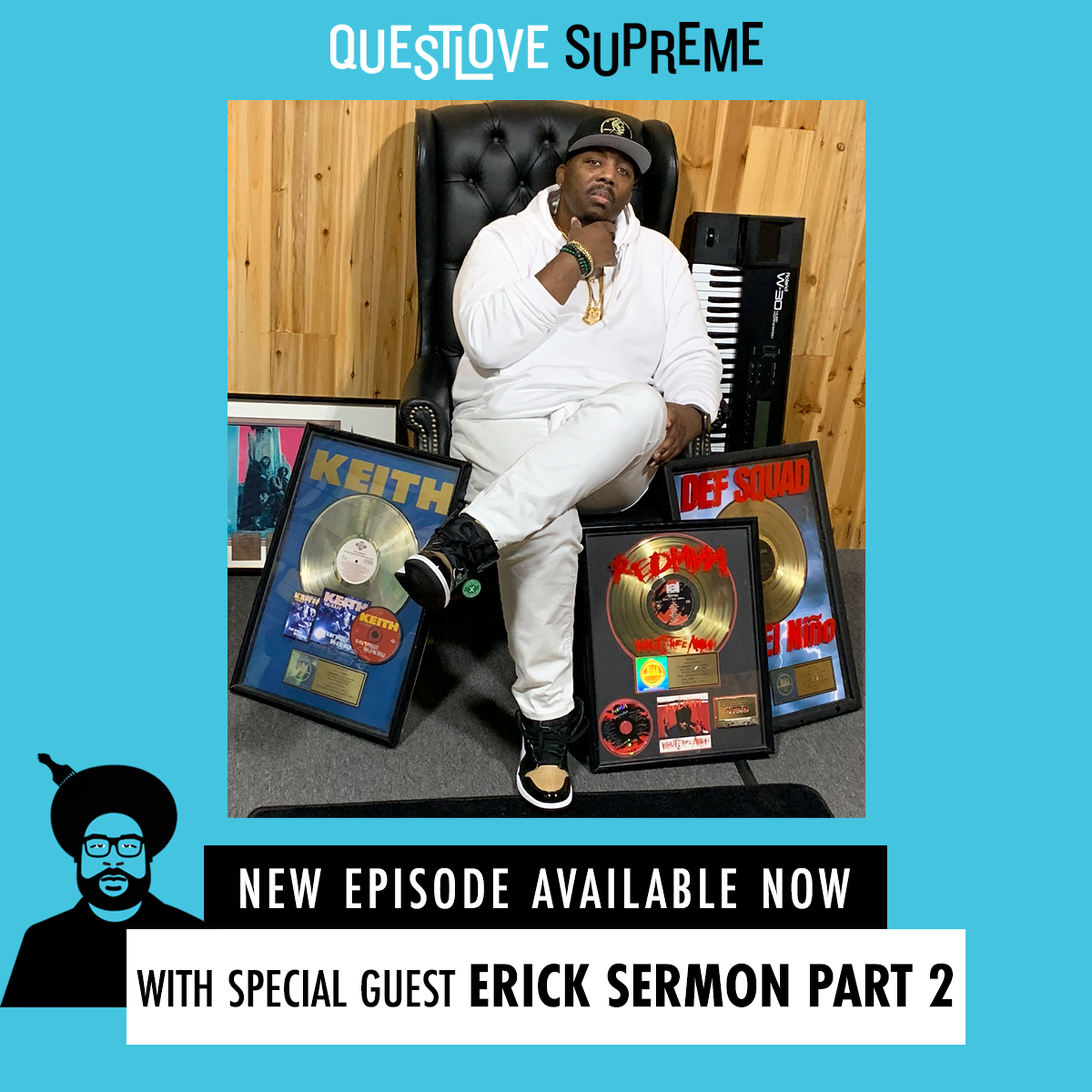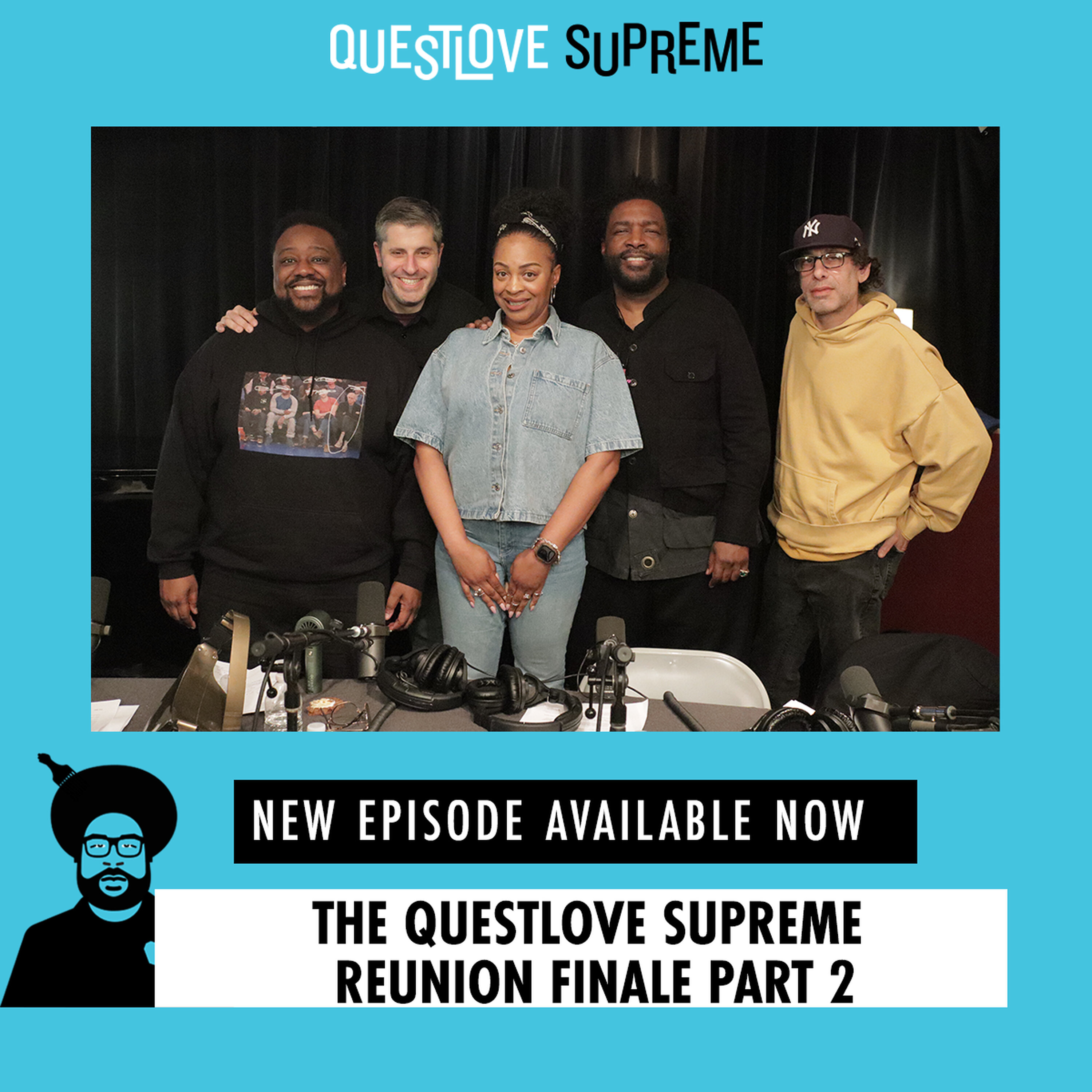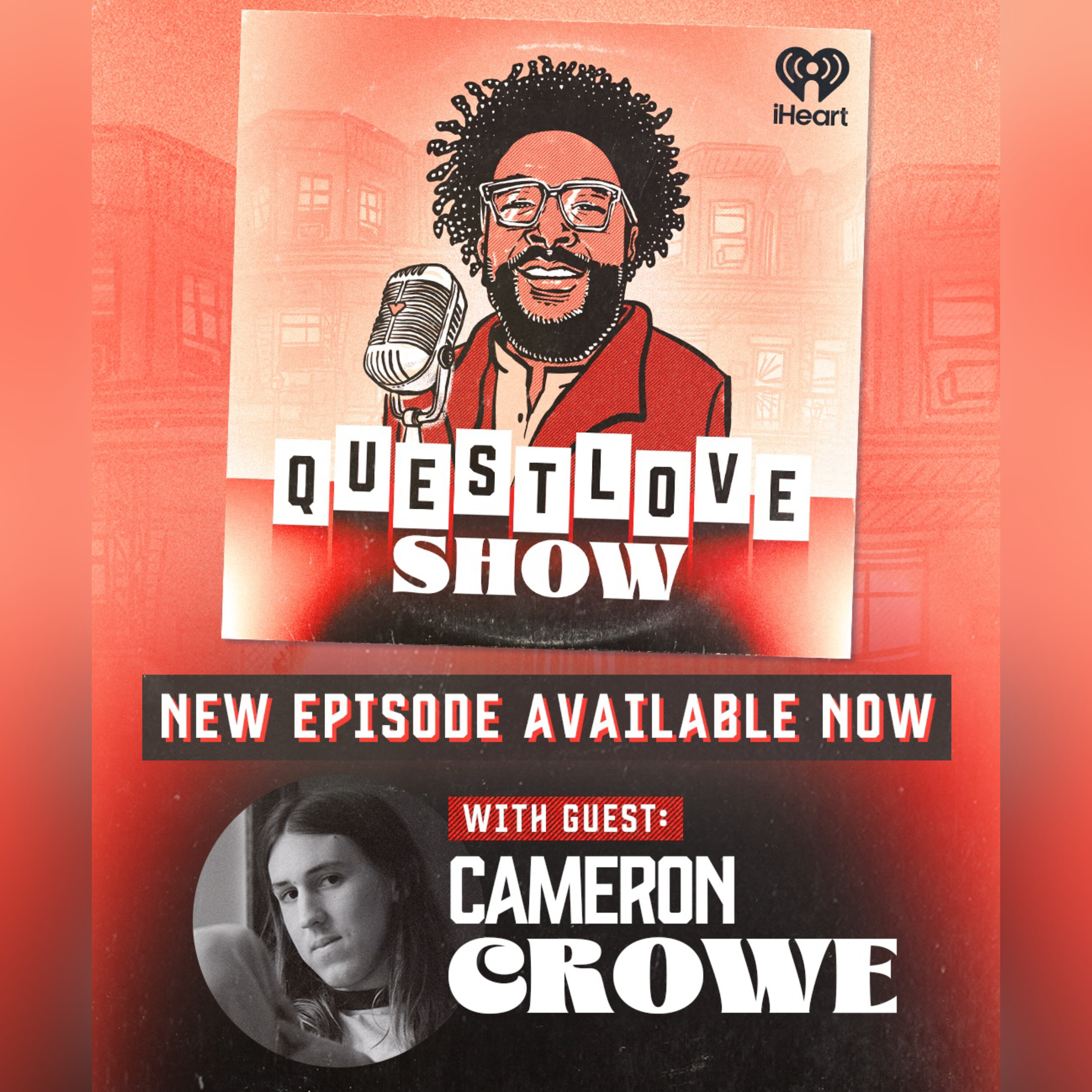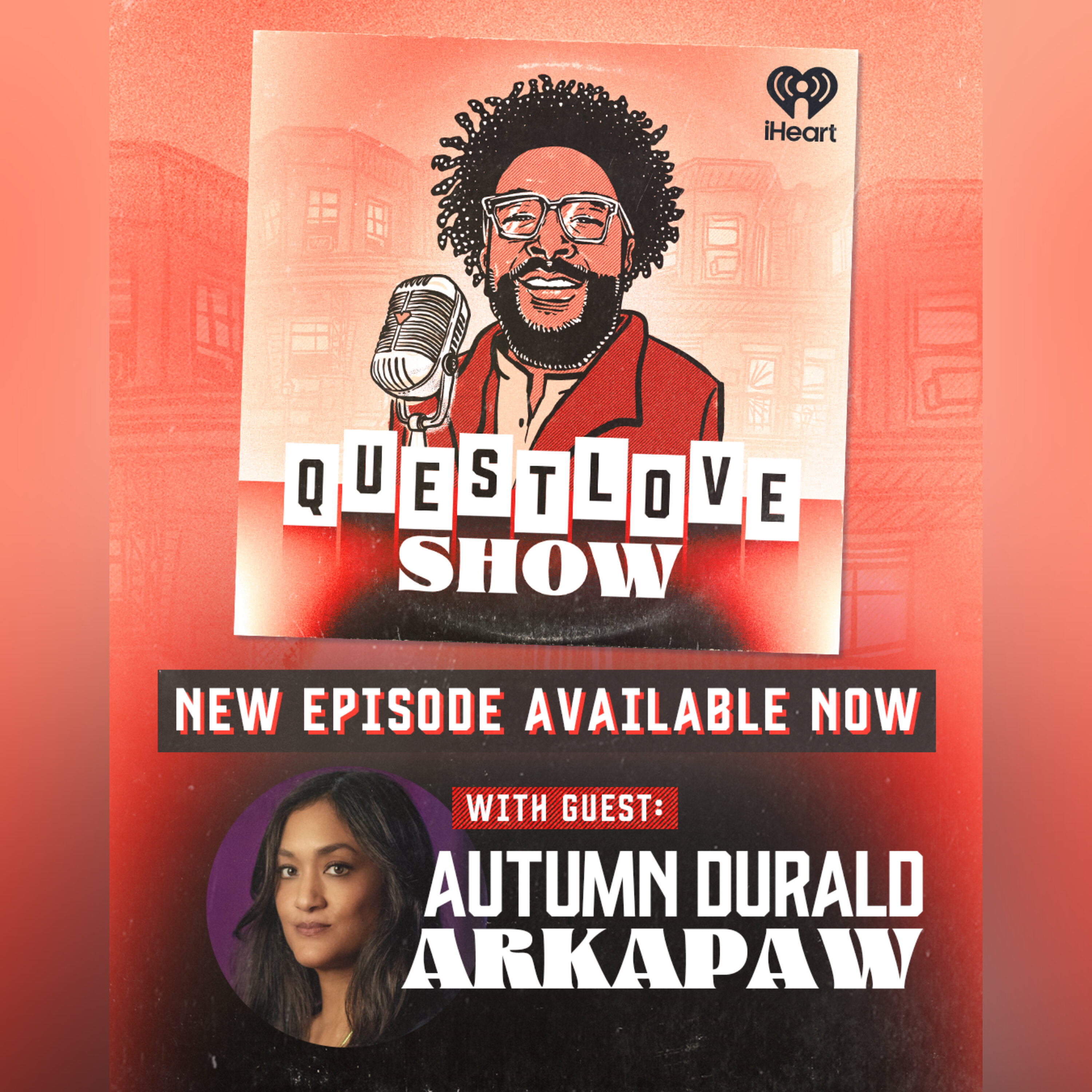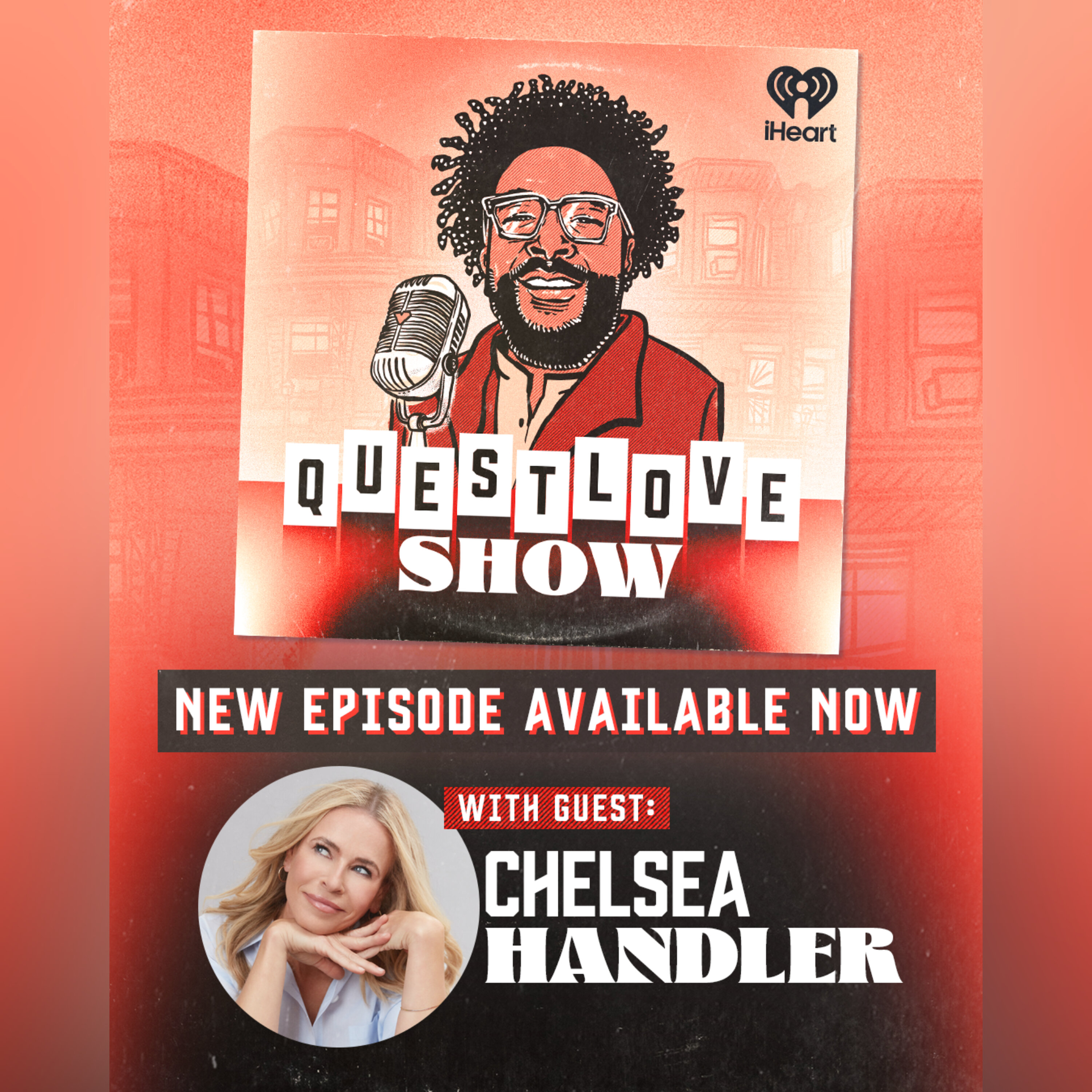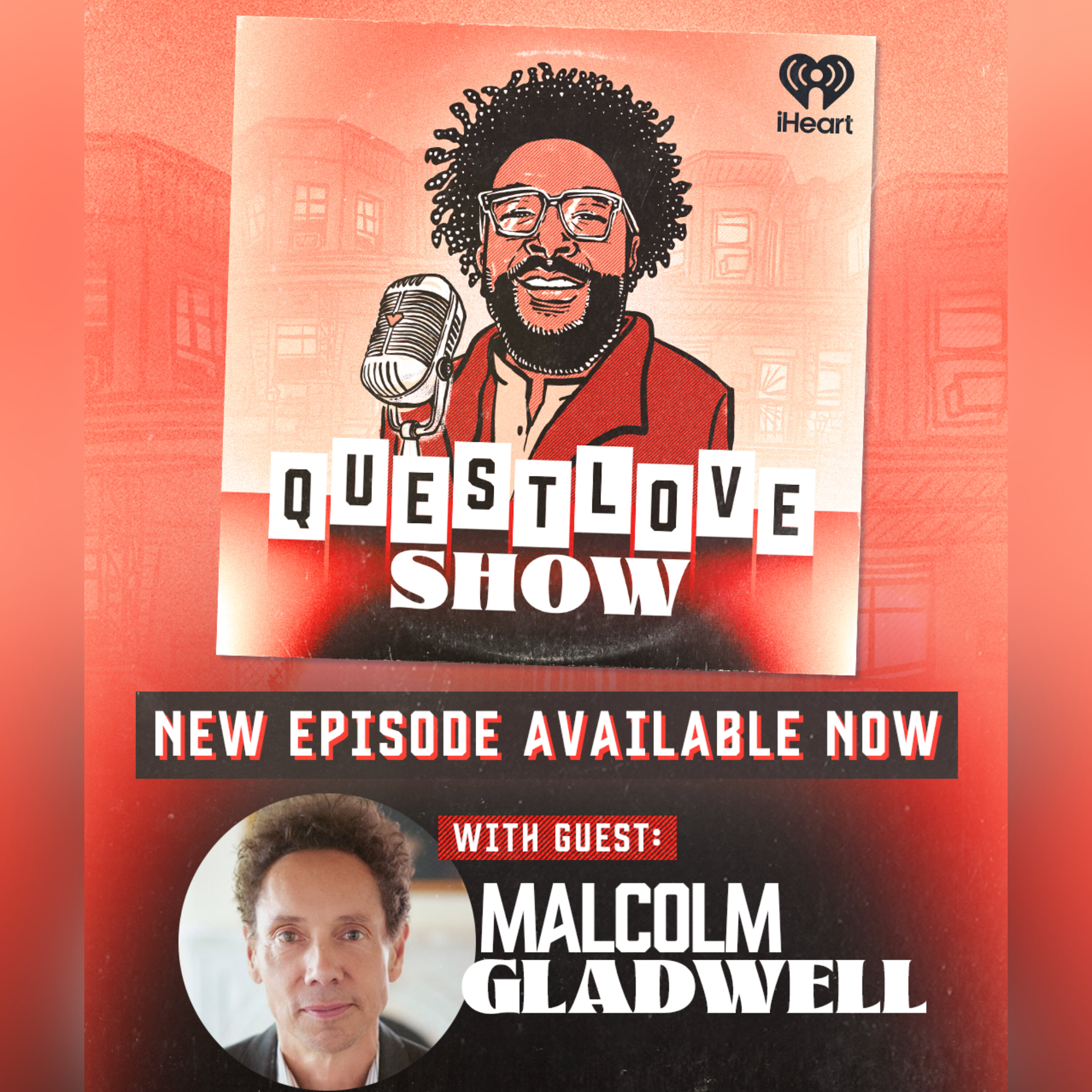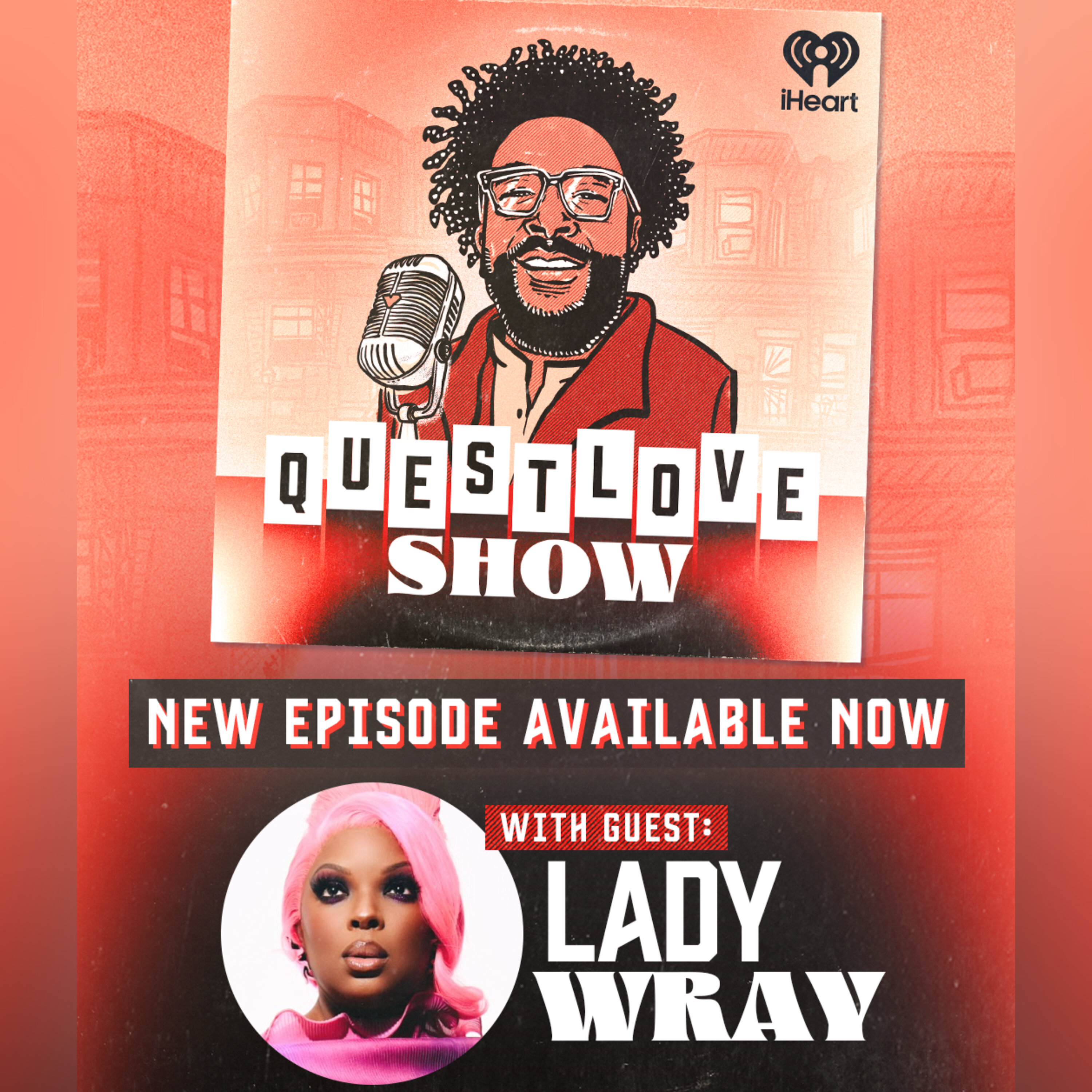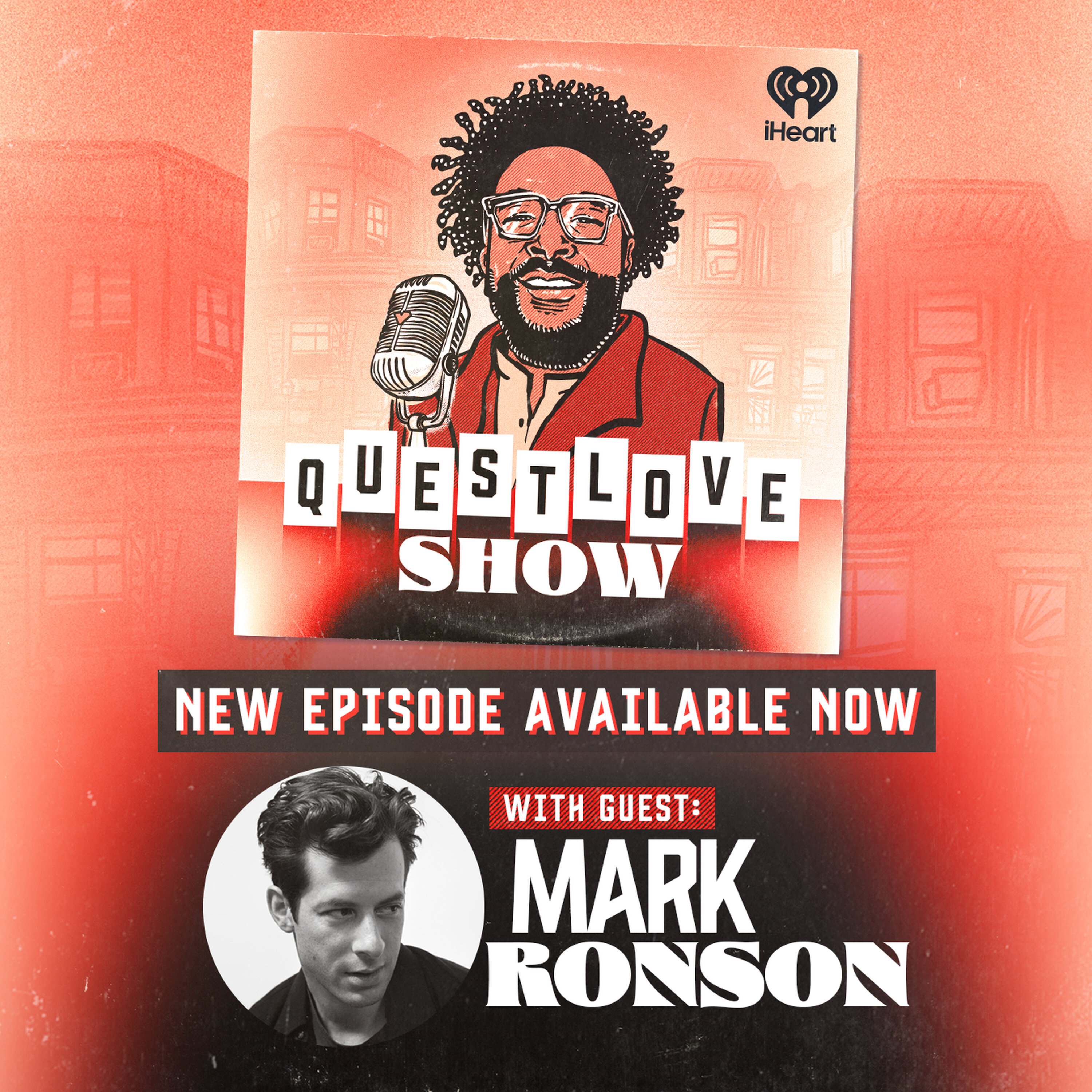Jonathan Shecter Part 2
In Part 2 of this special QLS, Jonathan Shecter, aka Shecky Green, looks back at his later years at The Source. The magazine's co-founder and Editor-in-Chief recalls assembling a "mind squad" of legendary writers, editors, and photographers. He details his role in recognizing Nas' incredible talent and Illmatic as a 5-mic classic, as well as experiences with Biggie Smalls, Tupac, and KRS-One. Shecky Green also speaks candidly about his abrupt 1994 exit from the magazine he launched and how he remains in the music curation space today.
See omnystudio.com/listener for privacy information.
00:00:00
Speaker 1: Quest Love Supreme is a production of iHeartRadio. All Right, y'all, welcome to Quest Love Supreme. This summer, we sat down with Jonathan Schechter, who is the co founder and the first editor in chief of The Source magazine, The Hip Hop Bible, The Source. That's right the card. Part one welcome. If you haven't, make sure you check it out before you listen to this one. And you know, Checkey spoke about growing up in Philly, working at Howard one nine in the early eighties, and his days at the Source back when it was just a pamphlet at Heart Cool. I got to answer, Oh, it's Jonathan Schechter. He's telling me to wrap it up. All right, guys, listen to part two right now of Jonathan Schechter The Source Peter.
00:00:54
Speaker 2: Okay, So what happened was we had halftime and Live of the Barbecue. Okay, to recognize's first two appearances Live of the Barbecue. Everyone knows the main Source. I should mention also because you brought up something about the ratings, and I think it's important to note that those four and mics, the ratings were the number one thing that people spoke. There was two things that people cared about who was on the cover and what rating did they get. Those are the things that we hear the most feedback on. That was what every just general person on the street cared about. The other thing they cared about is like seeing what the rappers were like in real life, like you know, like what cars they drive and things like that. So there was layers to it, but basically so we actually gave If I take one more step back, there was a brief period of time when we were reviewing singles as well as albums given ratings to singles. We always reviewed singles, but for a short period of time, we actually gave the mic ratings to singles. Looking Out the Front Door got five mics, as it should. It's a hip hop classic, no doubt, right. I loved I love Large Professor, I love Main Source. I think a lot of us love love that record. That was the only time in the history of the Source that anyone ever thanked us for a review. We did hundreds and hundreds of reviews. One time only the Sir Scratch and Kcutt's mother showed up at the Source office. They were Canadian. Remember they're from Toronto. I think it's they're so polite, right, those Canadians, there's so nice. They's so nice, and they showed and this was literally all we ever got was negative feedback from people that were mad. One time I can ever recall somebody who was like, thank you so much, that review meant so much to us. Here's and she gave me a bottle of like Canadian whiskey or something and I and I kept it like on my desk for years. But she that was the only time that anyone ever thanked us for a review. The feedback was only either nothing, silence or negative. The only positive feedback we ever got was from main sources, Sir Scratch and ca Cut. There were brothers, their mother out.
00:03:09
Speaker 1: Yeah, shout out to uh manners and that's.
00:03:13
Speaker 2: Right, that's right, polite goes along with I appreciated it that she did that. I was very nice of her.
00:03:18
Speaker 1: But before you tell the story, and I'm glad you mentioned Maine source, let me ask your opinion. It was actually that main source issue that was my uh not north Star. But I believe that getting a four point five getting four and a half mics in the source was better than getting five mics in the source. Why because everyone has the whole Golden era thing you say yours is eighty four to ninety four, the period in which we would have critical thing King Friday discussions of an album like religiously like and I missed that so much about about hip hop. Now, it's definitely between like eighty eight and kind of ninety Maybe we stopped in ninety six ninety seven because then it became like, well, they said this was classic, and we don't think this is classic. Like we became like olderf and Statler in the Muppets, like yeah, right, But I will say that. For me, I was like, okay, when something gets five mics because someone in my crew didn't get why Daylas Soul is Dead got a perfect five and I was like, dog, this is the best sequence records, the samples I never heard before, the rhyme star like everything about this album is pitch perfect. And they were like yeah, but you know, you know, and he said, you know, I'm a little biased because they you know, in his mind it was like they're just always giving out fives, and I'm like, no, it's quite the opposite. Like I think the source is really hard to please and this example of it, but that stuck with me, and I realized that people don't criticize you as much if you have a four and a half. It's almost like four and a half is the same effect as a five, but it doesn't make you that threatening where you got to be like man, fuck da da da da da or I don't know. That's my theory. I always thought four and a half was better than a five.
00:05:31
Speaker 2: And so the way the ratings worked as we got more mature now if we're moving into like the early nineties, is that we would Reggie became the music editor, as I mentioned, and we would to sign out the reviews to people. Sometimes I would write a couple, but for the most part that was kind of the reviews were kind of a place for the newer writers for the most part, you know, it was kind of like a way for someone to break into the source.
00:05:56
Speaker 1: Yeah, you would trusted me to that instead of like for like a.
00:06:00
Speaker 2: Spacewast album or something. I mean, you know, if not for like the big marquee names, but for like, you know, for like such a new artist, you know, like somebody knew. We would give it to like somebody new because I was a chance for them to kind of prove themselves, you know, the rating, but the rating okay, So there was like a separate thing. The review would get written, but we would have a separate meeting every month with all the main people there, the people I mentioned, and we would discuss the ratings. And that was when would.
00:06:28
Speaker 1: You thoroughly review it, like thoroughly listening to it, or just like.
00:06:32
Speaker 2: You would defer to the person kind of who had you know, if you hadn't, if I hadn't personally listened to the whole album, I would. I would try to be, you know, cognizant of that and not not over not just just give opinions on what I knew, you know, Like but there were only a handful of times that I like forced the issue and like put my foot down and like we got to give this a five. Ill Matic was one of those only times.
00:06:56
Speaker 1: You thought it was classic Materia who was like it might be four.
00:06:59
Speaker 2: It or Reggie Reggie. Reggie was like, you know, it's not. We don't know if it's going to be a class I mean, it was easy to say Listen five was called a hip hop classic, so it was easy to say. In the course of this meeting which we had every month where we would discuss the ratings. Is that really a hip hop classic? Is this going to be remembered twenty years from now as like a very important And it was a hard question. You know, You're like, here, we are ahead of even it coming out, We're like months ahead of it. Even we're like among like maybe a dozen people that I've even heard this record, and now we have to decide is it going to be a hip hop classic? It's kind of hard, you know, It's like it's not easy in the case of Illmatic. Okay, So what happened was we had heard halftime, we loved it, loved it. That movie Zebrahead, remember I think that came up on another one of your episodes.
00:07:51
Speaker 1: I saw, yeah with the Clark Kent right.
00:07:55
Speaker 2: That's correct, right with Clark Kent worked.
00:07:57
Speaker 1: At rough House, and we have the premiere at zebra Head and Clark Kent starts spinning in vokes, hold on and nods, gets up from freestyle, and I think maybe I was like the six in line. So that's my Oh, that's right, you were wrapped.
00:08:11
Speaker 2: That's when you wrapped. I remember, Yes, that's right, Okay, okay, cool, So no, so I was so we loved Halftime and Live with the Barbecue. This kid Nas incredible. You know, he was shocking. You know, I'm waving automatic guns and nuns and you know, hell for snuffing Jesus and all that stuff. So it was shocking. It was like shocking wrap. But it was obviously really good and it was really literate, and it was it was it sounded great, and we were very, very hungry to hear more from this kid Nas. So I had a trip booked to Philly and on the agenda was to visit Chris Schwartz and to go to rough House Records. So I went. It might have been an early ninety three, ninety four, I guess. So when was that released. I can't remember.
00:08:55
Speaker 1: The summer ninety two was zebra Head, but yeah, ninety three is yeah, so.
00:09:00
Speaker 2: It was late ninety it was after it was after zebra Heead, it was probably late ninety two. I go to Philly and I sat in that rough House when when rough House was in the suburbs, it was like he had this office in the It was no longer in the city. It was in the suburbs somewhere I remember, and Chris Schwartz was at the desk, and you know, we talked about a few different things, and then you know, rough House had some great records, you know, they had some great stuff. So but my real agenda for being there was I wanted to hear more Nas. I didn't tell him that, but that was my true agenda for going there. So I go there, and Chris Schwartz, as you recall, had kind of like the air of like a messy person, sort of like his hair was kind of messy gyms version, Yeah, exactly exactly. It was a very hectic, noisy, sort of like disheveled atmosphere, right, And so there was like a desk with like coffee cups and piles of tapes and records and all. And so I go in and he's like, I'm like, hey man, you know, so we talked about other stuff, and then I'm like, so listen about this guy Nas. He's like, Nas, you know who that is? And I was like, yeah, of course, we know who that is. Halftime Live with the Barbecue. He's like, oh, man, I mean I'm surprised you guys know about him. And I was like, oh, we love him, we love Nas. We're really curious to hear more stuff, and he searches through his desk and moves some stuff around. He picks up a cassette and he hands it to me. He'say, you can check this out. I was like, I can keep it. He's like, yeah, yeah, you can keep it. Put it in my pocket. I leave the meeting, I go back to thirtieth Street station. I get back on the train Amtrak back to New York City. I pop take out my Walkman, so using Walkman back, then pop into the Walkman hit play, and what I have in my hands in my Walkman is the entire Illmatic album, like six seven months before it came out. Okay, it was like so long in advance. It was the first draft of it. There was like multiple mixes were different. I still have this cassette, by the way, it's still it's my office right now. Yeah, we have it here right now. So basically, I'm sitting here on this Amtrak train listening to represent you know one Love, you know, all these like unbelievable songs, and by the time I get to New York, I am like floating in the air with the realization that I have like the Holy Grail in my pocket. I have maybe like the greatest album I've ever heard in my life, like sitting and no one. It's like this feeling of no one knows about it, no one's heard it. It was it was like, literally like I don't know why. I to this day, I have no idea why Chris Schwartz. I mean, obviously he wants to promote his music, but it was way too early to give that cassette to the Source. It was like.
00:11:55
Speaker 1: They didn't know what they had, which is why I think why I went back to Colombia and not on because we had nas on rough House for the longest and then suddenly it was like shrug, Columbia took him back.
00:12:08
Speaker 2: That's right, and Faith Faith knew men, yeah and so forth right, right, and so so that's what happened. I think he just didn't realize that he had this you know, legendary, you know, ground bright, earth shattering record here. So I get back to New York. I immediately it's already now it's like ten eleven o'clock at night. I go back to the Source office downtown. I knew that some people were going to be there. I walk in. It's Maddie c Reef Chris Wilder Scott Free later on Loud Records An R was there, I remember, and I walk in and we had like a mediocre like you know system, like you know, some kind of like off the shelf stereo system. I hit play and I play the entire album for this assembled heads the mind Squad, and literally every single person is just like you know, like I remember, Scott Free was literally laying on the floor like he was so blown away, like he you know when people like fall down out of like mock, you know, shock, you know, like he was just the entire room was just what the this is insane? This is so good especially.
00:13:20
Speaker 1: Something though, Yeah, because the thing was when I had those moments, they were chaotic bomb squad moments.
00:13:28
Speaker 2: Yeah.
00:13:29
Speaker 1: I never had that moment with a regular meat and potatoes, perfect beat like bo perfect yeah, perfect rhyme, just you know, there's no novelty to it. It's not like, oh yeah it was a classic because they're using childhood records or they're using ninety five trillion samples, like I've never heard just a perfect beat, rhyme, perfection record, And so it because it didn't come with whistles, the same bells and whistles that three feet hind Rising was, or Nation of Millions was, or Americans most want it was. You know, he wasn't hyper For me. It was like such a risk because when I heard it again, there's that Gangstar issue. I read the review first, and then I was like, I got it, and I was like, well, it's so normal. It's one It is only ten songs, like rap records back then were like twenty seven songs. I was like, there's no skits, there's no no, no no. And my manager finally brought me down to earth. He's like, yo, man, this is what intervisions. But Stevie Wonder was like, there was just nine perfect songs, like this is nine perfect songs. And I actually had to grapple with that, Like I wasn't in touch with how I felt. I still had to follow what you guys said, and I had so many questions about a nine bells and whistles record getting that much much acclaim to it. But you guys instantly felt you got goosebumps from the gate.
00:15:00
Speaker 2: Yeah, I mean, I remember, just I loved every song. I liked every single song, especially one Love that was the one that pushed me over the top, like, you know, it's just so deep, you know, it just sounds so and his lyrics are so good on it, you know, it's just so. That was like something like, you know, six or eight months before the album ended up coming out. So we have this holy grail now sitting in our possession. What do we do with it? And I think you're right. It was that issue with Gangster on the cover, yep. And I went and I took on the job of because I had this experience, you know, I went and took on the job of writing the feature about NAS introducing NOAs to the world. It was called the Second Coming and it was a reference to obviously Rock him because that was you know, the god MC, that's who everyone viewed as pretty much the greatest rapper of all time, almost universally, and NAS was viewed as as, you know, the next in line for that kind of a title just by us. I mean, I don't know, the world didn't know yet, but that was how we were looking at it. And we went and then matt went, Mattie C went and interviewed all the producers that were involved, you know, Pete Rock, Premiere, Q Tip and Large Professor and so it was like this dream team. So we put together the story and then we still had to do the review part of it. So we assigned it in one of these cases again to a newer writer, and her name was Minya oh yeah, later known to the world as miss Info.
00:16:37
Speaker 1: Miss info right. Yes, but she called herself Shorty.
00:16:41
Speaker 2: She caught herself Shorty right because she was she was an incredibly hip, uptown New York chick, you know, came in and was just like just new shit, way ahead. I mean, but this was still very early in her evolution, I think, and we assigned her the job. I'm really glad it was her because you.
00:17:05
Speaker 1: Know, was it risky for you to not see this through? Like were you not were you not allowed to touch your own reviews or would that been seen as a conflict of interest, like well you can't be the editor a chief in HM.
00:17:20
Speaker 2: No, that wasn't really I mean, like in this case, I think the reasoning was that I had already written, like I was obviously the main champion of it inside the building.
00:17:30
Speaker 1: But you saw the feature story more important than his album review.
00:17:34
Speaker 2: In my mind, that was the that's more journalistic to me, is like this feature story is where you tell the whole story, you know, and like that's.
00:17:41
Speaker 1: Where no friends, I don't remember that story, but I remember that album.
00:17:45
Speaker 2: I get it. Yeah, yeah, that's okay. I understand that that's the case because listen, as I said earlier, what most people did, just like yourself, is they looked and see, oh, who's on the cover. Okay, it's so and so, and then they'd flip right to the back and say what rating did everything get? Like that was the normal way people consume the source. Absolutely, I get it.
00:18:04
Speaker 1: Why didn't you put the record reviews in the front of the magazine?
00:18:06
Speaker 2: Then you know what, Again, I think it was earlier, Like I said, I was following that rolling Stones like structure, and they had the reviews in the back.
00:18:14
Speaker 1: So, by the way, I did read everything. But yes, I did read the thing backwards, so.
00:18:19
Speaker 2: I know, I get it. I get it. It's all good. So yeah, we should did the review. But then again we had Now this is where we had the big meeting, and I was pounding this is one case where I use my authority to force the issue. And I was like, Reggie, it's a five man, what do he five? I think he wanted either a four or maybe a four point five. The others in the room, everyone agreed with I mean, the most majority of people agreed with me. There was a few maybe I don't remember exactly who didn't. I know Reggie was the main voice of the opposition in this case. He lost the debate and he got a five, and I think he would admit that we were correct about giving it a five. I mean, obviously it's pretty much the iconic hip hop album or among the iconic, legendary all time classic hip hop albums. I think everyone agrees with that.
00:19:17
Speaker 1: For me crafting albums, of course, it was always does someone see the vision inside my head the same way that I see it, you know, when they review it? And so the obsessive amount of headaches I gave my publicist Amy Marsh just daily about like, Okay, when do we give this to the source? When do we give this to the source? When do we get this to the source? You know, we're not going to get to that part of the story yet of what happened that day in October of ninety four. However, you know, it was to the point where I saw it as me getting up at five in the morning to get on a train to and the thing was Amy is like, you cannot go to the source of me, Like that's that's you know, there were still rules of like you know, not crossing the line as an artist and that sort of thing, and literally me going to the source to get the issue because you guys would not reveal to her what the rating was. She did tell me like, yes, you guys got the leave review. But for me to get up in another state at five in the morning, to get on a train to go to New York, to go outside that building and for her to hand me that issue and for me to look and read the review first before I see the mics and I'm going through each bike like okay one, Mic two, Mike three, Mike four, Mike, okay four, Mic, I'll take four. It was literally of that obsessive level, like at what point did you realize that the artists are obsessed with that? Like I'm certain was not even door like what the source give me or.
00:21:06
Speaker 2: Yeah, I mean like I said, it's we knew like there was a sense that the ratings were important because we you know, you could you could hear it in the in the feedback. We got that everybody we knew that the ratings were one of the main things that people looked at, but we spent most of our time on the rest of the magazine, you know what I mean, Like we were filling the magazine with features and photo shoots, and then we got into fashion and electronics and movies and TV and film and you know, and all that stuff. So so in other words, there was the answer to your question is we always knew that people were watching and that their artists cared, but we didn't get a lot of feedback, you know, like we from the artists. It wasn't commonplace for people. I mean they might have been angry or they might have been happy, and we didn't hear it usually. I mean we you know, of course we would talk to the label people, and I guess maybe you would hear second hand all the you know, Questlove was very happy with a review or whatever, you know what I mean, Like I might have Warne something like that, but like it wasn't it wasn't. There wasn't a lot of drip artists interaction. I mean, there was interaction, but just not feedback necessarily.
00:22:14
Speaker 1: As a fan, only have one question ahead, and that is I wish you guys would have reconsidered all of your Gang Star.
00:22:25
Speaker 2: Reviews again, listen three and a half.
00:22:32
Speaker 1: I mean eventually long after you left. Of course, you know they evaluated that. Yeah, yeah, there was revalve based and moment of truth. Got it's just do with the four and a half review. But that's long after you guys had left the building. But this one thing I wanted to ask also, is there's a point where you know the way that the stories are presented, you know, more importantly, like would you consider the hell Raiser Tupac issue, like if any thing? I feel as though the hell Raiser issue really built whom we know as Tupac. Like before that issue, you might have had a clue of who Tupac was if you watch MTV news or you know, was that after Juice or nah, this is hell Raiser is like possibly right before he gets shot in the Yeah, this is like early ninety four, but it was such No, that's after Juice Citiary. Oh it's way after Juice.
00:23:34
Speaker 2: Yeah, yeah, after Juice. Okay, Bishop came to life, so right exactly. Okay, so let's talk about Tupac because I was going to talk about Gangstar, but Tupac I got some interesting perspectives. So, I mean I didn't really love Tupac as a rapper for a long time. When he came out, you know, I clown around when I rolled around with the Underground like, it wasn't necessarily earth shattering.
00:23:58
Speaker 1: It was just we were comparing every one to rock him basically and KRSS I get.
00:24:05
Speaker 2: K the Mount Rushmore was was KRS rock him and Chuck d And then you could argue for the fourth one being Big Daddy Kane she wrapped, you know, or a number of others to ll you know, there's other potentials. But anyway, so when Tupac came out with that, I didn't like it. I didn't like him. I didn't like his early albums. I thought that it was okay, but it just didn't really move me. And then I got a visit from Hollywood producers who came into the Source, which is rare. We were still basically broke. I mean, we didn't make any money for most of this time anyway, and we were and having someone from Hollywood, you feel like, oh, someone important is here.
00:24:49
Speaker 1: Wait, Tomson, you're not making money, like in terms of like what we see like the Billboard charts or whatever. How do you know, like what you guys are selling in terms of.
00:24:59
Speaker 2: Oh, like magazines, comedy send we we were doing well. Like with the magazine was was doing very well on the newsstands. I mean it was we we eventually it got to the point where we were selling hundreds of thousands of magazines every month. But throughout most of my time there, there wasn't a huge profit. I mean we were making a small, modest salary. You know, the business was was profitable, but it wasn't like making a killing. Granted, this is before anyone knew anything about startups the internet, you know, VC funding. We had none of that. Although I although if you want me to, I can tell the story when Quincy Jones tried to buy the Source people. People may or may not know that before Vibe yes, vibe Okay. So in that case, what happened was we got contacted by Russell Simmons, who was friends with Quincy. He told us that Quincy Jones is interested in talking to us along with Time Warner, and Quinn was working on a deal with Time Warner. So the four core founders of the Source, myself, Dave Mays, James Bernard and Ed young, get on a plane. We go to La We go to Quincy Jones's house in Beverly Hills. Were sitting there with that beautiful mansion. Starstruck, you know, right away, like holy shit, we're in Quincy Jones's house. We walk into the room. There is a room of suits. There's about six seven guys, white guys in suits. There's a woman named Jane Pratt who at that point was an editor working for Time Life, and there was Quincy Jones and Russell Simmons. So there was like ten people in the room. We walk in, four of us. We sit and talk. They're interested in the source. I remember it was very early, it was ninety one. So we walk in. We have a whole meeting where we talk about They start ripping apart, not in a mean spirited way, but they're they're kind of like, you know, you guys could do this better. The artwork isn't that great, the photos aren't that great, you know, but we love what you're doing. You guys are doing it great, but we feel like we can help you do it better. And and we were open to it. We didn't we were so naive, we didn't know shit, but we were just in there having the meeting and thinking maybe we'll all get rich. Who knows what's going to happen, right, And so we we have the whole meeting and we end up getting a very low ball offer from them. It was like insulting. It was like ridiculously bad. I forget the number, but it was like something like fifty thousand dollars for the whole magazine, and it was like digulous. Yeah, it was like it was like pathetic, and they wanted us to come work for them. And I remember in the in the letter where they sent us the offer, they spelled like several of our name. My name always gets spelled wrong, so I was used to it, but they spelled like multiple people's names wrong, and it was just very disrespectful the whole the whole thing that once we got the letter, we felt very just respected. So we just we didn't respond and we just decided like, we're not going to do it. And then they ended up starting Vibe like a few months later. And then there was a brief period of time when the editor of Vibe was a guy named Jonathan Van Meter and I'm Jonathan Scheckter, and so there was two Jonathan's running these two rap magazines. So anyway, that's the story. So that was it. So they wanted to buy the source. They ended up not doing it. But long story short, what ended up happening. We were very concerned. We knew that there was going to be this other magazine. Vibe comes out. It is beautiful. It has Treacher on the cover looking all, you know, incredible, and the photos and it was all like very fashion forward and it was like beautifully designed with amazing photography and all that stuff, and we were concerned, but it ended up being the best thing that ever happened to us. Why because suddenly all these legit advertisers are interested in the category, because Time Warner had like Pepsi and Ford and Sony and like i mean Sony Electronics and like things like that. So we were like getting by on just just industry ads basically. But now for the first time we had this new market of huge companies that are they're interested in rap music, and you know, it didn't take long for them to see that we were actually the leaders in the in the space, even though Vibe you know, had a bigger saw, right, yeah, you know, but we were we were the actual like on the street, you know, newstand leaders. So it helped us. It ended up helping us. It took a long time for that arc to all kind of play out, but in the end it was actually a positive for the source that they started vibe.
00:29:43
Speaker 1: Okay, So back to you Tupac thing.
00:29:46
Speaker 2: Okay, So back to Tupac. So the guys come to my office and they say, so, we're casting for this movie and we're looking at artists and we're looking to you. We want to ask you, like who is you know, we want to get a sense of like who's who in this rap world. So so they started talking about rappers. I don't remember everyone they said, but they said Tupac and I said, oh, you mean that guy from the Digital Underground. I was like, eh, he's okay, He's not that great. I mean, no one really knows who that is, you know. And they were like, oh okay, and like they we had the meeting and then it shows how much I know because they casted him. It was Juice. They were making Juice, Simmon Juice. Obviously he you know, he knocked it out of the park. It was like an incredible movie, incredible performance, and it really made him, you know, a star. And I remember I was watching that movie screening with Russell Simmons was in the AWE. It was in a private screening and Russell happened to be there, and I remember Russell saying, if they throw this motherfucker off the roof, this movie is going to be a hit. I don't remember. Remember there's a scene where they throw someone off the roof. Yeah, it was right exactly. They say, if they throw him off the roof, this this movie is going to be a hit. And they threw him off the roof. Russell goes insane, He's right, the movie's a hit. A little bit later, I go to the first how Can I Be Down event in Miami, which was a very homemade event. It was like at somebody's house.
00:31:11
Speaker 1: What were those events like?
00:31:14
Speaker 2: It was kind of like what you'd think it was. It was nice. I mean, look, it was a nice house, but it was very like bootleg. It was like there was it was like a lot, you know that particular one. I remember that Tupac was there, Doctor Dre and ed Lower from your Own TV raps were filming an episode there. Puffy was there, a bunch of other artists and I was there with a photographer. We interviewed a bunch of people. But I remember seeing Tupac and now I started paying attention to him because now he's his his star is starting to rise. And he always had like a joint or a cigarette in his hands. He was drinking, but all the girls were all over him and like he he was like a charisma out the you know, off the over the star the star. Right. So I still don't really love his rapping, and I'm still like kind of the jury is still out. I didn't really like his records. I just didn't really think that like Brenda's Got a Baby was kind of boring. I just didn't really love it. And so then a little bit later, I remember I went to a party in Brooklyn. It was Lord Jamar's birthday party that I was invited to. I remember I walk into this party in Brooklyn. It was an outdoor courtyard and there was a lot of people there. There's a lot of beautiful girls there. It was like a nice party. I walk in and I'm having a good time and I've see like a lot of artists around and stuff. And then I noticed this kid in the corner and I see Tupac is there. I see Tupac is in this party, and this is right when he's hanging out with Biggie. Biggie wasn't there, but he was. It was during the time when he was, like, you know, starting to hang out with Biggie, and that that period of time he's in Brooklyn. So he Tupac is there, and I look in the corner of my eye and I see this guy dressed exactly like Tupac, Like literally he has the bandana wrapped around a bald head, he has his shirt open, he looks exactly He's modeled after Tupac and Juice like image, Like he has the exact look of Tupac and he's what he's eyeing him. I'm like, that's weird, Like, whoa, what's I kind of see it happen from Afar and this guy has like a fire in his eyes, like he's angry, and he walks across the space up to Tupac and basically challenges him to a battle in this party. A guy that looks exactly like Tupac challenges Tupac to a rhyme battle inside this party. And this is a true story. And so then people start gathering around like you could tell there's about to be something happening, right, And so the guy starts rapping, and he's, uh, he's not good. He's not great. He's okay, but he's not really good. And I'm like it's pretty clear pretty early on that he's not really a good rapper, but he's trying. He's like, yo, man, I'm gonna fuck you up. I'll do this, I'll do that, and uh, everyone's kind of like I'm looking around, going like, where's like somebody to jump in, Like where's like one of the brand Nubian guys or you know, where's Buckshot Shorty? Like we need somebody here to like represent New York because I knew Pak was more of like a California even though he's from New York, he's a California guy. So the guy finishes and then Pok steps up and destroys him, just gives this like virtuoso performance where he's like breaking down. He's like, you even look like me, You got your band danna like me, you got this like me? And then he looks over and he goes, I'm gonna even murder you in front of my dude. From the source and he like points at me and it's like this whole moment and I was like, that was my That was the moment when I realized that he really actually could rap and that he was like actually like a really good MC. You know, I didn't, I didn't know. It wasn't until that live you know, like impromptu thing that I realized that he's a great rapper. And then I kind of changed my take on him. It took that experience for me to really get it, you know. And then of course that years later, he you know, became a huge, even bigger star.
00:35:19
Speaker 1: At this moment, are you guys even remotely concerned about like, you know, like there was an era of Deaf Jam where it was just like ye old general store and then suddenly you go to Deaf Jam and then now you got security clearance and all that stuff. And yeah, like at any point did the source come to that or.
00:35:43
Speaker 2: You know, we had our share of threats and stuff like that. I mean, it wasn't it never thankfully spilled over into anything major, you know, there was to your point, I get it. That's I think that was one of Chimo DU's great skills because she did that that Snoop one. You know, what you're referring to with that Snoop is that she had this ability to walk into any hood in the entire world and people would like him. He was a very warm, friendly dude. And you know, I believe he had like Nigerian roots or he was African, but he had like a very friendly demeanor. There was something about him. You smiled all the time. He was very calm and positive energy. And so that was one of our secrets, I guess, was that we could walk into a situation where other journalists maybe wouldn't want to. And this I did this myself a few times. But any anyone, any any of the many writers that worked for the Source who got sent on an assignment to go to Houston or to go to La You know, I once went on a on a on a graffiti run with KRS Fat Show and the Bronx Tat crew and I went to like the straight you know, like the graffiti like you know, four in the morning, like climb and breaking into the into the train yard all that shit. Like we all have those moments when we basically penetrated what a normal like journalist would do. And I think, you know, thank God. Like we never had any major problems, like there was always you know, I think everyone had an interest in making sure things went well, Like there was the artists at the center of whatever rething we were doing would do everything in their power to make sure that the situation was was was was good. You know, everyone wants like a good story, everyone wants the pictures to look good, everyone wants good reviews, you know, So there was we kind of like coasted through on that. And again it was like, you know, it was with guys like Chi, I think, who were kind of like on the front lines of a lot of these going to like certain hoods, and you know he Chi photographed, you know, everyone in every hood and never had a problem.
00:38:00
Speaker 1: Whose idea was it to do the crack issue?
00:38:04
Speaker 2: Great, great question that was. I think Reggie and James Bernard were the primary drivers behind that one. Okay, I know you know this, but you know for Trivia Buff's you know Big East ten Crack Commandments is actually from a source article.
00:38:21
Speaker 1: And that I did not know that.
00:38:23
Speaker 2: You didn't know that, Okay, didn't.
00:38:25
Speaker 1: The actual was that the cover story or was I'm trying my hardest to remember. Was the counter story was it a main feature.
00:38:34
Speaker 2: I think it was just a big feature. I don't think we put crack on the cover. I think we still put a rapper on the cover. But I think it was the two times that we did very political things that I remember was obviously the LA riots. That was a huge, huge, monumental source moment because we covered the LA Riots very extensively from the point of view of the rioters really. And then the Crack issue was another. You know, we devoted a lot of pages to the crack epidemic, but not from a oh my god, what's going on, but more so from like what's really going on?
00:39:16
Speaker 1: You know.
00:39:18
Speaker 2: And and one of the articles was the ten Crack Commandments. That was literally one of it was like a sidebar. It was like it wasn't the main feature.
00:39:27
Speaker 1: The ten Crack Commandments were. What was in that Crack issue? Yes, oh my god.
00:39:33
Speaker 2: Yes, if you go back and biggie, it's almost word for word. I mean it's not literally word for word, but it's like eighty percent word for word. It's like you got that from the source. Yeah, I did not know that.
00:39:46
Speaker 1: I do remember that issue thought like whoa, Like they're going to places that no periodical as dared go.
00:39:54
Speaker 2: Should we touch on Biggie real quick, because if anything, that's the biggest artist that ever came out of the Source. Let's be real, you know, like as far as being christened an artist because of something that happened in the Source magazine, we had a column called Unsigned Hype. Everybody knows, you know. The idea was that we would review cassettes from regular people, regular artists who are trying to make it, and every month we would pick one cassette. Mattie C, who later on, you know, became an r for Loud and became a legendary ear, you know, was kind of the main point person, and so matt would get We literally had like a plastic trash bag filled with cassettes. I mean we would get hundreds of cassettes a month. I mean maybe two hundred every month. I mean it was endless, like every so Mattie's job was one of Mattie C's job was to go through all these cassettes. Now what really ended up happening because maybe the first month he listened to a bunch of them. But as you as we all know, when it comes to demos, you know, unfortunately most of them are not good, so you kind of get burned out very quick. And then he started putting in the I remember he added to the text of the description puts your best cut first. I remember you put that in there, smart, because he didn't want to have to like sit through like you know, search for the search for it. So one day, you know, after doing this, and the truth was that that bag got bigger and bigger, and we would get like literally like five a day, so it would be like one hundred and fifty a month, okay, and it would be like a bag of cassettes, and it was it was, you know, no one wants to really go through that, but slowly, you know, we would once in a while, Oh that one looks look at that's a that's a weird pink cassette. Let me listen to that one. We would just randomly to like pick him out. And then one day he comes into my office and he's like, yo, we got one, we got one. Listen to this, and he sits down, he gets play and I hear the original for eight and a half stepping, which is, uh, who was a yeah, blind emotions. I hear the I hear the emotions blind alley and what's up source. My name is Biggie Smalls. I want to say thank you for giving me this opportunity. Thank you so much. I really respect y'all and I want to thank you. He gave us like a nice intro where he like thanked us for the opportunity to wrap for us, and then the bee kicks in and he starts rapping, and it's amazing. It's phenomenal. It's basically like Biggie, you know. It's like it's all the personality that we all came to know and love. So Maddie had gotten this tape, not from the mail but from mister C. Mister C had gotten the tape from fifty Grand, who is Biggie's guy, who gave the tape to mister C. We played the tape for Maddie, Maddi gives its shows at us. We're like, oh, this is incredible. So we go and we decide he's going to be the unsigned Hype. We send Chimo du to his house. He takes those first pictures of Biggie where he's like, you know, like on the street. I think he's outside, and we run it and it comes out and then this rarely happened. But we got a call from Puffy. Mattie got a call from Puffy. This almost never happened. He's like, yo, I'm interested in that. This was happening right at the time obviously Joe to see Andre Herel and like the whole breakup was happening. It was right at that time when like he was leaving Andre Herrel. So it was right when bad Boy was starting. It was just timing. And so he's like, yo, I'm interested in this guy. And so Maddie goes and takes the meeting.
00:43:34
Speaker 1: Wait, y'all introduce Yeah.
00:43:36
Speaker 2: Mattie c introduced Puffy to Biggie.
00:43:39
Speaker 1: Yes that I did not know.
00:43:41
Speaker 2: Yeah, yeah, and to take the meeting, and Maddie go, I didn't go. Maddie went to the meeting, and Puffy is like, a so, yeah, like tell me, tell me what let me hear the tape. He plays the tape. He's like, yo, it is incredible. And he's like, let me what does he look like? And Maddie's like trying to describe what Biggie looks like, you know. He's like, well, he's kind of a big dude, you know. So Biggie and puffy Meat, and very shortly after that we get party and bullshit, Party and bullshit was like I don't know, like a month or two, like not long after that, like that record got made and obviously we're like going insane loving it, and then you know, long story short. I got to meet Biggie a couple of times. He came to the office. He was I remember one particular time we went to the staircase to smoke weed. He we smoke a blunt about six people. Biggie's there and he's, uh, he's he's at this point, he is still unsure and this is depicted in all of the documentaries and the movies that have been made. When remember he still wanted to be a drug dealer. He didn't really want to be a rap star. So right when that moment was happening, that was like real, real time I saw and he didn't say drug dealer, but he's sitting there going, man, I got shit going on. I don't know if I have time for this shit. Yeah, He's like, I don't have time for this ship. Man, I'm doing well, Like I don't really have time for this shit, and like the rest of us are trying to encourage him like, yo, man, like this is a real opportunity, like you should really do this party and bullshit was already out, so I didn't. I thought it was like a it was already a done deal, like he was going to be huge, but he didn't really see it that.
00:45:26
Speaker 1: Way yet, right. And then.
00:45:29
Speaker 2: Not long after I think I've told you this story before, I remember sitting on the step near watching the Square park and that's when I heard the demo from the night before of Juicy and Maddie hits play and I hear you know, im too may come out of the speakers, and then I hear Biggie you know, doing these rhymes and then he says smiles every time my face is open the source, and I'm like over the moon, like this is amazing. Right, And that was it. And then you know, then I got a piece of mateo and all that other stuff, and a star is born. Star is born.
00:46:07
Speaker 1: Okay, I'm going to ask you the question, man, go ahead. So part two of that story I told of me leaving Philly get on a train at six in the morning just to just to come to the West Village, just so I can be the first person to read what my rating was. You know, the reasonable all.
00:46:30
Speaker 3: The time, you have to say this is very important. Don't know how much you listen to the show. We talk about the roots and the microphones all the time. This big moment.
00:46:37
Speaker 2: I've heard a little bit. Yeah, I've heard a little bit of it.
00:46:39
Speaker 1: And the thing was, you know, I was elated. I was nervous because you know, we were so left the center and taking a risk on this new, unchartered live instrumentation territory thing. But yeah, yeah we got we got the leave review, we got four mics. I'm happy. I want to go up and say, thinking I would have been the second person to thank you guys for my four mikes, but I can't do that right now because I don't know that all hell is breaking.
00:47:12
Speaker 2: Loose at the exact same moment. There's a crisis happening at the sim literally.
00:47:18
Speaker 1: So the story that I got was that your partner, Dave Mays took it upon himself to insert a three and a half page feature on one of his acts from Boston without the knowledge of you guys knowing it. Basically, as I'm discovering my four mics in the magazine, you guys are also subsequently discovering, hey, there's an article here about almighty RSO. And this is when I first heard the term called conflict of interest. You know, first I was like, well, what's that people will promote all the time, and nepotism they're and you know, Amy and Ursula are trying to explain to me, the newbie of the industry, like there's certain rules that you follow, and there's conflict of interest, and there's you know, talking to your co workers and that sort of thing. And of course the way that this shit spread like wildfire, because the thing is like Amy is very connected to every publicist, every data, you know, and there's no such thing as a phone thread or you know, social media whatever. So it's like the second we get back, it was like they were all on like a war council, Like yo, the source is over, as they're all walking away. What happened that morning in October of ninety four? How did you find out that you guys have been compromised by one of your own and the subsequent aftermath of it. I never knew what happened on the inside of those walls that morning, And of course I get the announcement that night the source as I knew. It is no more I mean, and so we.
00:49:15
Speaker 2: Saw each other around that time. If you remember, I went to the studio and I saw I met with you. But anyway to get to answer your question, yes, just unrelated. I happened to see you shortly after that happened. But you're right, the way you framed it is exactly correct. We every month would have a an editorial sort of a layout, not just editorial, but the whole sort of map of the whole magazine. Dave and I would it would primarily just him and I would sit in the room and we'd have, Okay, this month's issue, how many how many ads did he get? How much editorial do we have? And like where are these things come together? There would be a physical sheet of paper, but that we would map out the whole issue.
00:49:54
Speaker 1: You have to tetris the format of okay, get it the.
00:49:58
Speaker 2: Whole magazine right, So it's like we have, Okay, here's the cover feature, here's the secondary feature, here's the record reviews, here's the fashion shoot this month, here's this whatever. So those pages were marked as ads, so I thought they were ads. I didn't even think twice about it. We often had ads that were sometimes people would buy like a two page spread ad that was like a normal thing. So I just assumed that that's what it was. So we finished the issue. As you said, I had red Man on the cover, and I get a call, I think from James Bernard, who's, you know, my partner on the editorial side and also a co owner of the magazine. Yo, something really fucked up happened.
00:50:39
Speaker 1: Man.
00:50:39
Speaker 2: You got to come in right now. You got to see this. I'm like, what, just come here, come here and see. So I come in and it's the pages that we thought were ads were actually a whole article about this group that Dave had been working with separate from the magazine. He was managing them basically, but you know, I don't know if that was his official title, but that was basically what he was doing. He was getting them deals, he was cultivating them and trying to make them into stars, and they wanted to jump ahead and get in this. You know, we were approaching it the same way we approached every artist in that an unfold. Let's you know, we got hundreds of artists every month, like, let's figure this out. Whatever. Instead, this thing happened, and it was a very big violation of our ethics. It was inside the magazine, our friendship. You know. I felt very offended by that act because it was like, you know, taking away I was the editor in chief. I was in charge of every article. Like I didn't write every article, but I made sure I knew about every article that was going in. And this was the first time that I didn't, So it was very shocking.
00:51:55
Speaker 1: Everyone has a code. I didn't. I understand that the public out there.
00:52:01
Speaker 2: Would they even even know the difference you're saying, wow.
00:52:02
Speaker 1: I would have not known the difference of.
00:52:05
Speaker 2: I know, I know. Okay. So here's what really happened. If you want to know the sequence of events. My inclination, to be quite honest with you was the way I always am, which is to handle this privately. I did not want to go public with this information my instinct, even though it was really messed up and I was very angry, I would have handled it privately. But something happened that prevented me from doing that. What happened was James Bernard sent out a letter addressed to Dave using something using a fax machine. We used to have a fax newsletter called The Weekly Word and it was pre internet, and what it was was we had the facts number of literally everyone in the rap industry, radio records, EXITTC. So we would send out we would send out this a weekly and Minya actually Minya Oh miss Info, her first job for us as far as a full time job, was that newsletter. She would actually come in once a week and she would say, what are the biggest stories, and we talk and then she'd go and type up that one page sort of like summary. It was kind of like a news headlines thing, like this is what's happening, so that people on rap shows would be like, this is from the source. We found out that so and so is happening. So we had this platform that was still very you know, kind of like a really industry oriented thing, but right what initially was it was still along the lines of initial and we even had one point when we try to do industry magazine, separate from the source very quick, very briefly. But anyway, so we had this platform. So this crisis happens, Dave does this thing, I'm very angry, everyone's angry. At this point, we had a pretty big staff. Our editorial side was probably about ten or twelve people, and the business side was probably another ten or twelve people. We probably had twenty five people working there this time. And Jane James does something that I thought was a bad idea. I still think it was a bad idea. He goes and he writes this letter to Dave, and he puts it through that weekly word fax machine, so that in one minute, the entire rap industry knows, Dave, how could you do this? Like, you know, you put this article about these guys. We had nothing to do with it, We knew nothing about it. Da da da da, and all hell breaks loose. I mean, it's like everyone in the industry was calling me. I got the New York Times, the Wall Street Journal, the Village Voice, like all these people, media reporters, you know, like what happened?
00:54:39
Speaker 1: Like this?
00:54:39
Speaker 2: It's kind of like it's two things. It's a hip hop story, it's also a media story. It's a story about turmoil, about about media ethics, as you as you alluded to, you know, it's it's about all of these things. And now that James has unfortunately made it public, which again and I would never have done that. I would have handled it privately because that was what my instinct was telling me, but now that can no longer be done. Now everyone knows that this thing happened, So what's going to happen next. It's a very tough moment for me and for everyone around, you know, at those days, at that time, what really happened was all of the editorial staff had a meeting. I think I went to one of the meetings, but then I think there was another meeting without me, because I was more like.
00:55:33
Speaker 1: Did you guys have an HR at all?
00:55:35
Speaker 2: No? I mean we had, yeah, we did have somebody, but it was it wasn't really a real HR. It was you know, it was a very you know, we were.
00:55:43
Speaker 1: Like maze in the office as you guys are, Like there was Caesar style like it was heaving like that.
00:55:50
Speaker 2: There was like a giant split and like half the company went one way and half the company went the other way. And when it came down to it, I had to make a very difficult decision, which was given that now this information was out there. On top of it, the entire editorial staff had voluntarily left their jobs. So now that means there was other people there. There was a guy named Rob Marriott, Carter Harris, Kieranameyo, Chris Calloway was art director, Chimo dou Maddie c There's a whole lot of people, Reggie Dennis, all of them had said, you know what, we're not even going to work here anymore because Dave needs to go. And I'm like, I hear you, but he's like he owns a big chunk of this magazine. Dude, Like, I mean, you know, what are we going to do about it? And they were like, that's your problem, you figure that out, you know kind of thing. So I was really ico.
00:56:46
Speaker 1: So they put the pressure on you to well, you don't have a staff or anything to vote him mount or anything, do you Exactly.
00:56:52
Speaker 2: I was left in a very isolated position because the staff had already decided we're done, fuck this, we don't care about you know, we're not going to work in a place that does this. And I agreed with them. I understood their anger. I was angry too, But also I was a co owner, as was James and Ed Young. We were all co owners, so we I had two hats on. I had my editorial you know hat, which was and my friendship with him after all these years, like how could you do this? And I don't think Dave even realized like how serious, like what he had done. Like, I don't think he even knew the effect. He definitely did not anticipate the reaction. And I was left in a very difficult position. And what do I do? So after thinking about it for quite a long time, a few weeks, you know, a couple of very stressful weeks, I decided I want to get bought out. I'm done. It was hard decision, but once I made it, I made it, and I was like, Okay, I'm not going to be able to go back to work and pretend everything's okay. I'm going to have to If I were to go back to work, I'd have to hire a bunch of new people. I'd have to still work under this now, you know, potentially corrupted, you know, structure now and this and that. And I just made the decision I wanted to get bought out. It took a long time for that deal to get done. It took maybe a year for that whole process to unfold. I remember seeing you around the time that I made this decision, and you were in a studio somewhere. Do you remember this or you.
00:58:21
Speaker 1: May probably in battery studios. I think you were.
00:58:24
Speaker 2: It was battery, yes, yes, correct, And I remember I can't remember why I was sitting with you, but I went up in the studio and you and I think your engineer were very curious, as was everybody, and I got it. I understood you were like what happened? Like, dude, what happened? And I probably told some version of the same story, you know, And.
00:58:43
Speaker 1: Yeah, the source was my illmatic you know what I mean, Like, yeah, it was it.
00:58:49
Speaker 2: Yeah, I mean, look, it's not the way that I would want it, would have wanted to leave the source. But if I'm being totally honest, you know, as I think back on those years, I had already begun to feel a sense that I wanted to maybe move on. You know. It wasn't necessarily definitely not under that circumstance. But there was a period of time about a year before that, when I did actually take like a two month hiatus, and I went to Philly and tried to write other stuff. I was interested in writing screenplays and other things, so I went and pursued that for a while.
00:59:22
Speaker 1: Was there ever a thought that you guys would just collectively start another magazine.
00:59:28
Speaker 2: That was a thought. You know. James and Reggie ended up starting XXL about like a few months after that, and then they lasted about a month and then they they didn't they they had a falling out with that publisher. And then I actually am the one that recommended Elliott Wilson for the job, because those the people from Harris Publications who were also friends of acquaintances or friends of mine, were like, hey, man, do you want to come they I was offered the job to go run XXL, and I didn't want to do it, but I offered. I proposed that Elliott Wilson would be the best candidate, and he ended up being a great, a great person to do it, obviously. But yeah, that was it, man. I decided to get bought out again. I wasn't, you know, I didn't anticipate that would happen, but you know, it was that. That's what happened, and I accepted that, and we eventually reached the deal for a small seven figure sum, and that was it.
01:00:31
Speaker 1: Were you part of the first? Never spoken about? But the first? Source awards correct.
01:00:38
Speaker 2: I was part of the first, but not the second. So I was there for the first.
01:00:42
Speaker 1: First. The first was a little crazy too.
01:00:44
Speaker 2: Yeah, first was insane also, people don't. Yes, people, the first was it was late ninety three.
01:00:50
Speaker 1: Were you there from that Tupac Tribe moment?
01:00:52
Speaker 2: Yes, I was there for that. I was that was that? I think it was where what theater was that in it?
01:00:58
Speaker 1: That Madison Square Garden right right, that's right. I went there as a spectator. And yeah, I think I've told this story before, like there wasn't a Tupac Tribe thing. What I believe happened was that as tribe was coming up to accept their award for Midnight Marauders, right, someone accidentally queued up Tupac song. Yeah, and he did whatever. I don't give a fuck song whatever. But from the audience point of view, it looked and you know, this is like after the legend of the Karas one pm Dawn situation or whatever, which I still don't I've heard variations of that story that it wasn't as you know, it's like they were both booked on the show. I don't know, but it seemed like Tupac was just like, yo, fuck that, and the music came on cue. It was like Bishop had come to life, and then you know, the zoo nations words and no no. But at the time in the audience, I thought someone was about the pop off between you know, Tupac and Tribe. But it wasn't that.
01:02:04
Speaker 2: Yeah, that whole that You're right, that whole show was very chaotic. We didn't know what we were doing. Again. We were like I think I had written the scripts for what they were saying, and like I remember like like as soon as the thing started, I realized they were all too wordy. Like it wasn't until the real show. It wasn't until the show actually begun and the audience was there that I realized that all the writing I had done was like three x too long. Like I was, you know, I was made. I was like I messed up and like and up there is like like cool Hirk is trying to like get through like some sentences that I wrote and it gets all frustrated and like, you know, like there was I just remember being very uncomfortable. But it wasn't quite as extremely bad as the next one. But it was a similar, similar, very chaotic event.
01:02:52
Speaker 1: What were your thoughts of nineteen ninety five. I've probably going on record stating that kind of and joking, but as the years go by sort of serious where if I were to mark the time where the sand in the yeah, where I felt the hip hop that I once loved was now like out of my reach, even though you know, ninety five was still a dope ass year and you know, Lord knows I thrived. But first of all, were you there at all? Without me knowing?
01:03:24
Speaker 2: At that point? I was. It was really right in the aftermath of this whole breakup that was going on. I remember getting a zillion phone calls. I was not there, but I got a million phone calls from people updates for telling me all the crazy stuff and they fight, they're fighting, yeah, all that stuff. But yeah, I wasn't there for that, but yeah, it was. It was. I remember thinking, you know, not being super surprised because of knowing how bad the first one was that it was kind of like more of the same, not how bad, but how chaotic it was. And yeah, I you know, it wasn't that much of a shock, but I definitely remember like reacting to that, as I also remember from the PM down incident too. I wasn't there for you there, no, but I was very close with KRS. I was like KRS was kind of my hero, and he still is. KRS was, you know, my most important rapper in my life. He's the guy that I always looked up to, and so I interviewed him, actually twenty four hours later after that incident. I was the first person to interview KRS. And I wrote a story that became a cover story where he was on fire. He was going after everybody. He was going after X Clan, he was going after Core Righteous teachers, he was going after you know, of course PM down. He went after everybody, and he had these he had like a stack of beefs and he just was like just one after the next, after the next.
01:04:55
Speaker 1: And yeah, I mean.
01:04:56
Speaker 2: That was when KRS was the king of rap. I mean he was definitely the all of hip hop embody in one person.
01:05:03
Speaker 1: Before I wrap and one, I really want to think you're being super generous. I love the fact that Bill, you don't remind me that we're almost getting into Jimmy Jam territory.
01:05:13
Speaker 3: I was gonna say, like, this is like a ten parter. Now, this is like the you know, the Almanac of the source history.
01:05:19
Speaker 1: I'm happy to dude, I purposely did not look at the clock one and I'm shocked at even Jake Steve around the city. Wait, I'm sorry, I'm seeing I'm at work right now. I should have known that this was gonna go. Like Steve is walking to work. They're like, it's me on the floor. This this is this is an act of rebellion I'm doing right now. It's perfect. It's perfect source material. Dog, I've been waiting for this conversation for at least thirty years, YO.
01:05:52
Speaker 2: Like this all important. I got two guys here in my office with me. They've been patient the whole time. To everyone, For those who are still awake and still listening, I thank you.
01:06:02
Speaker 1: Trust me, there's an audience for this. Before I wrap, though, just in quick retrospect, if you can name like three magic moments that we probably don't know about. I don't know if you're there for the sequencing of a classic album, or you were there to witness an incredible show, or just in your prime source memories.
01:06:26
Speaker 2: I'll come up with at least one, which is we're talking about KRS and I remember this was a really important moment for me. Is while we were still at Harvard and the Source was born, but it was still in its very early stages. And I had got a call from Layla Turkin, Yes, who had the one of the publicity companies you mentioned earlier, and she was like, hey, you know, is there any chance that you could help KRS come to Harvard? And I was like, of course, Like I would want nothing more in my entire life than to do that, And that incident became something I think about as a pivotal moment in my life. Basically, I went to the Black Student Organization of Harvard and tried to get them to endorse a keros One speaking engagement. This is the under the undergraduate Black students of Harvard. And I had a friend who was part of that committee, so he brought me in and I presented the opportunity. I was like, you know, there's at that point the source had maybe like a year under its belt or something. It had about like eight issues or something like that, and I said, you know, I said, I have a chance to bring this. You know, everyone knew who KRS was. This the leader of hip hop, the most important artist. He's going to come to Harvard. And they were like okay, okay, this sounds great. We'll get back to you. And then they talked about it and the guy got back to me and he said, hey, man, I got bad news. They're not going to do it. I'm like what they said, Yeah, they're worried about violence and getting a bad name on the you know, for the student organization. And I'm like, this was this was during the time when you know, everybody thought if you have a rapper, it means like you're going to get violence and all the you know, it was back in the stereotype of you know, some people that maybe there's some truth to it, but they didn't want to do it. So I'm like, what am I going to do? And so I meet somebody who says, oh, no, there's another organization you can go to. It's the Kennedy School of Government, which is one of Harvard's graduate schools, and they have a black student organization, which this other friend of mine was part of. So he's like, come into that one. So I come into that one, and they said, yes, we'll do it. So the night happens, they set up the event. It is packed, there's like every seat is full, it is absence is probably like one thousand, two thousand people there, and what is this I believe this is nineteen eighty nine and yup, yup, And they have like placards for everyone on the panel, and there's a whole panel and literally it's Cornell West, Henry Lewis Gates, it's every like black intellectual professor, like legend lined up on the stage and there's a slot for KRS. And he's not there. He's missing. The entire room is filled, all the other people are on stage and KRS is missing, and I am the only link to KRS. So you can imagine how I was feeling stress level through the roof. And this is the days before the internet, before cell phones. Okay, so I basically was stressing my ass off. Okay, I had put this whole thing together. I was, you know, the main reason they were doing this. And he's not even there. So I'm standing in front of this building and like the time comes that the start time comes, he's not there. Fifteen minutes, thirty minutes, forty five minutes, I'm like, I am dead and never like I have to like what's going to happen. And then after like fifty minutes, I look in the distance and I see a cluster of people and I realize that's him. It's like the pied piper like he's walking through the streets and all these kids are following him and it's like KRS KRS. And he walks in and I'm like, Chris, what's up man? Where were you? He's like, what I got on the plane. I'm here now, Like, what's the big deal. It's all good, you know. I'm like, no, you don't understand. Like there's a crowd, come on right now, right now. So he says, here, take this, and he hands me, and this shows you the time period a giant VHS video recorder, like with literally a VHS popped in like over the shoulder, giant, heavy ass camera. So he hands it to me. What because he's like, hey, tape me, tape me, tape this for me, please. He hands it to me. We walk into the building. The event has already been now forty five minutes underway, but they get the first glimpse of RS, and the whole crowd just roar standing ovation. It was almost like better because he was late. It made it even more impactful. He gets up there and he gives this amazing like monologue about hip hop and black history and America and politics and everything.
01:11:18
Speaker 1: Does this wind up being the interstitials that will wind up on edutainment.
01:11:23
Speaker 2: No, but it was similar timeframe, so I'm sure it was what was on his mind around that time. Okay. And then and then what happens is he gives this amazing speech, and then there's some questions and a little back and forth and it's going very well. And then a black woman in the crowd stands up and asks the question, and she says, we got two white boys on campus running a rap magazine. We're not happy about that. I want to know what you think about that. And it was like this very It was like, after all this shit happened, now, okay, this like pivotal moment in my life. Man. I had already devoted my life. I had already, as we told in this story, been already devoted to hip hop for years. And KRS looks at me and he knows me, you know, and he looks at the crowd. He looks at the girl and he says, I know what you're talking about. He's like, I know those guys, and I have a question for you. Instead of asking why are they doing it? Why don't you ask why aren't I doing it? Those guys work their ass off I know those guys, they love hip hop. They work their ass off every day, you know, to do this magazine. And I beg you please outdo them. Please if you can do a better job, I beg you, please do a better job. We need more voices, we need more magazines, we need more hip hop in the world, you know. And it was like this pivotal moment for me, and it validated what we had been doing. It gave me the confidence to move on, to keep going. And then later after the whole event had done, I was sitting alone with KRS in like a diner in Harvard Square, and again the Source was very young, we were all still very new, and I said to him, man, listen, like, you know how much it meant to me that you said those things and that you know you're here and that kind of And then I said, would you be willing to like be our spokesperson? And there was a period of time when he agreed, and he actually did. He became almost like the spokesperson for the Source. That was only for like a period, a short period, but that whole experience obviously had a huge impact on the rest of my career.
01:13:43
Speaker 1: Are there any retrospect regrets in terms of your contributions to the source that you wish you could have corrected. I don't know, the TLC cover.
01:13:57
Speaker 2: Or that's a good one.
01:13:59
Speaker 1: Yeah, yeah, I had no problem with that, But I'm just saying like it just in general, like is there like, ah, man, I wish I did a Soul's a mischief issue before I left or it, like, are there any like.
01:14:12
Speaker 2: Well, you know, it's the problem with the TLC cover was that they were green. Their skin was green because it was not printing job. That was the problem. The printer did a terrible job, and for some reason their skin was like green. But the real reason there was obviously that was the first R and B group that we put on the cover, so we did get a lot of flat But I don't regret that. I don't regret that because that was you know, that was how hip hop was moving at the time, and it was a normal evolution, you know, Like I guess, as I alluded to earlier, you know, I do wish that the ending had been more graceful or more you know, positive.
01:14:48
Speaker 1: And what is your status with Maze now today? Like spoken, are you civil?
01:14:55
Speaker 2: We're you're civil? We're civil we've spoken a few times. He made he made an effort in recent years to be more I think appropriate in terms of his perspective on things. I think he kind of came around and realized that, you know, mistakes have been made, and he was kind of more conciliatory in recent years than he had been in the past. But obviously, and we know if we're not going to get into it all today, but I've gone on to do a lot of other things in the music, and.
01:15:25
Speaker 1: That's all good.
01:15:26
Speaker 2: Another time we can talk about it as a nine fault man.
01:15:29
Speaker 1: I'm sorry, I was going to go dive right in.
01:15:33
Speaker 2: Yeah, I do. But but I mean, you know, real quick, I do music for businesses. Now. I have a company called Playback Prodigy, which is a background music for businesses. We have thousands of I mean hundreds and even over a thousand locations around the world. So but anyway, I work with a ton of DJs.
01:15:50
Speaker 1: You technically mean when I hear background music in the supermarket or that sort of thing, or like.
01:15:59
Speaker 2: Mostly in hospitality places. So we do the music for WIN resorts, we do the music for MGM Resorts, we do the music for Soho House.
01:16:07
Speaker 1: So when I check in to a hotel.
01:16:09
Speaker 2: When you're in a hotel, we do need for tons of fancy.
01:16:13
Speaker 1: The soundtrack that I hear. Yeah, I'm secretly obsessed with that world man, Like I figured you'd be.
01:16:20
Speaker 2: Curious about that. Yeah, because it's it's it's a great perspective on like music, and it forces me to stay current and and and also to be able to go back because there's some people that want yacht rock and soul, and some people want you know, cutting edge hip hop, and some people want pop, and some people want house music and whatever it is.
01:16:38
Speaker 1: So you're a professional curation, correct music curator. Is there licensing that has to happen with that or is it just like you this restaurant says, hey, I need that music for three hours in a loop. And you guys know.
01:16:52
Speaker 2: We like we we we pay all of the appropriate agencies. You know, we pay the p R, O, s ASCAP, E, M I, C. Sack. You know, we pay we pay everybody that we have to pay to license the music. That's one of our expenses, you know, running this business. But uh, for the most part, it's you know, it's it's hardware, software content. So we do the whole thing but in the end, it's about having good taste in music and picking what's appropriate for seeing a certain setting.
01:17:18
Speaker 1: I didn't know that one could actually monetize off that because the amount of restaurants that I frequent that are just like a mere Can you send me one of your playlists that, uh, yeah, I hear about so much and I'll be like, yeah, sure, and I'll make them a five hour playlist and they'll be playing it. I didn't realize that that is a business.
01:17:39
Speaker 2: Yeah, I've been doing this for about eight years, eight and nine. I can get a job with you, please. I would love I would love nothing more than be able to say playlist by a mere quest love Thompson. That would be our greatest you know, feature ever if we're able to say that. But yeah, for sure, man. We It's kind of like being a DJ behind the curtain. It's like being It's like w'sard of oz, Like you get to be the DJ, but no one sees you. You know, You're like, it's kind of fun.
01:18:01
Speaker 1: Wow, Okay, now I'm excited about that. You think I'm joking. I'm not.
01:18:06
Speaker 2: I love.
01:18:08
Speaker 1: All I love is curating. Now do you open that door? I have so many more questions about that, but I technically have to get to work right now. Okay, the longest four hour lunch break of it, but very much well worth epic. I knew it was going to be epic. Now that I'm in the space that I'm in, I'm really hoping that perhaps you two can come to some sort of agreement in terms of at least setting the legacy right. You know, there's the time where, yes, everything that you've described, I would love to see this told mad Men's style. I believe that this is almost a six season episodic series that you've told and certain the stuff you didn't tell me was even you know, worth it. But no, just in general, man, I want to thank you for your contribution to that magazine, and you know that magazine especially being a pivotal moment in my life in terms of what I wanted to do for a living and something to look forward to and to aspire to be. And the shit literally has me here right now interviewing you, Man, I want to thank you for that, and that's kind of why this was a lengthy interview and not just a forty five minutes Oh tell me where you started?
01:19:24
Speaker 2: Like, thanks, I'm great. Thank you. I appreciate all you guys for having me on and also in particular a mirror for representing you know what I think Philly does represent, which is a love of music, a knowledge of music, a respect for music. You know, like growing up in Philly, we that's what's in our It's in the water, as we say, w ar t e er water.
01:19:48
Speaker 1: Yes, it's in the water.
01:19:50
Speaker 2: Basically, you know, we love music in Philly. And if you go back to Philly today, we're still playing the classics. You know, you walk into store that you're here like Luther Vandross or It's Takes two or Bruce Springsteen or whatever. You know what I mean, It's going to be like, we just love the classics in Philly and it's in the water. And I am grateful for all the things that you and your colleagues have done to be a positive force in the world of music. So thank you.
01:20:18
Speaker 4: So Jonathan, Yes, sir, how many mites would you give the Source as a magazine?
01:20:24
Speaker 2: Wow?
01:20:24
Speaker 1: In your time period and overall?
01:20:27
Speaker 2: Verat question? Man, I mean, it was worth a four hour wait for that one, Okay, you know, I really I often say that my golden era is the Source's golden era. So I think that nineteen from I did an issue called the Decade of Wrap, which came out in nineteen ninety. It was a look back to nineteen eighty to nineteen ninety. That was my senior thesis at Harvard, was that issue of the Source. So I would say from that issue until the time I left five mics because we did everything. Now I have no comment on what happened after I left, because I had nothing to do with it, thank god. But basically, you know, I think that our time period four and a half to five you know, a mere set of four and a half is cool, but you know, I mean, I do think that that time period in my life is a five MIC time period. And it's like, you know, what I look back is my golden era. So I'm very grateful for it.
01:21:28
Speaker 1: Is there a place where I can collectively get like my one dream is to see the entire Source cannon as a volume set? Or do you own every issue? Like do you have boxes?
01:21:43
Speaker 2: And yes, I have boxes, and as my colleagues here in Vegas, cy, I have all kinds of shit. Man, I got boxes of pictures, records autographed by everybody rec Gold records, you know, promo material, but and also all the issues and also all the internal stuff. I have a whole lot of internal documents about when we were making the issues and all that stuff, and I would like to The Source has a new owner. I'm a guy named Londell McMillan.
01:22:10
Speaker 1: And he is I'm familiar with Londel.
01:22:13
Speaker 2: You know who Londell is. So Londel, I would like to say.
01:22:17
Speaker 1: Right, no, Prince By Documentaries landed.
01:22:20
Speaker 2: He pretends to price very very assiduously, but yes, I will say that Londel. You heard Requestlove just said, let's put every issue. I'm only talking about mine. So the first let's just say the first.
01:22:34
Speaker 1: So he owns the IP right now.
01:22:36
Speaker 2: The first fifty issues of the Source, which is roughly my time period. A little bit more than that. I think I did like fifty four to fifty five issues something like that. So the first fifty whatever issues from that nineteen eighty to the one that had cool HERK Bam and Flash on the cover, which is the hip hop history issue. Between those two, I would like to put all those online for free. I don't want to make money from it. I just want the world to have it. I want to put them online for free. The only person that can give me the green light is Londell. So Londel, let's do it for the sake of history. Let's do it for the sake of the legacy and for and also let's make it searchable so that people can you know, if you want to look up like large professor, you can type in large professor and you see all the page he's he's on, you know. But but yeah, that's that's what we need to do.
01:23:26
Speaker 1: You're mount the God's ears. All right, Londel, you heard it here first.
01:23:31
Speaker 4: This show is still going on.
01:23:33
Speaker 1: Get out of here, all right, y'all. We gotta sign off. John, thank you. Going to be up a Bill and unpaid Steve than That sounds about right? Is quest Love next week?
01:23:48
Speaker 4: This is Sugar Steve. Thank you for listening to Quest Love Supreme. This podcast is hosted by a mere Quest Love, Thompson, Liah Saint Clair Sugar, Steve Mandel, and Unpaid Bill Sherman. The executs your producers are a mere Quest of Thompson, Sean g and Brian Calhoun, produced by Britney Benjamin, Jake Payne and Liiah Saint Clair, edited by Alex Conroy, Produced for iHeart by Noel Brown.
01:24:23
Speaker 1: West. Love Supreme is a production of iHeartRadio. For more podcasts from iHeart Radio, visit the iHeartRadio app, Apple Podcasts, or wherever you listen to your favorite shows.
















